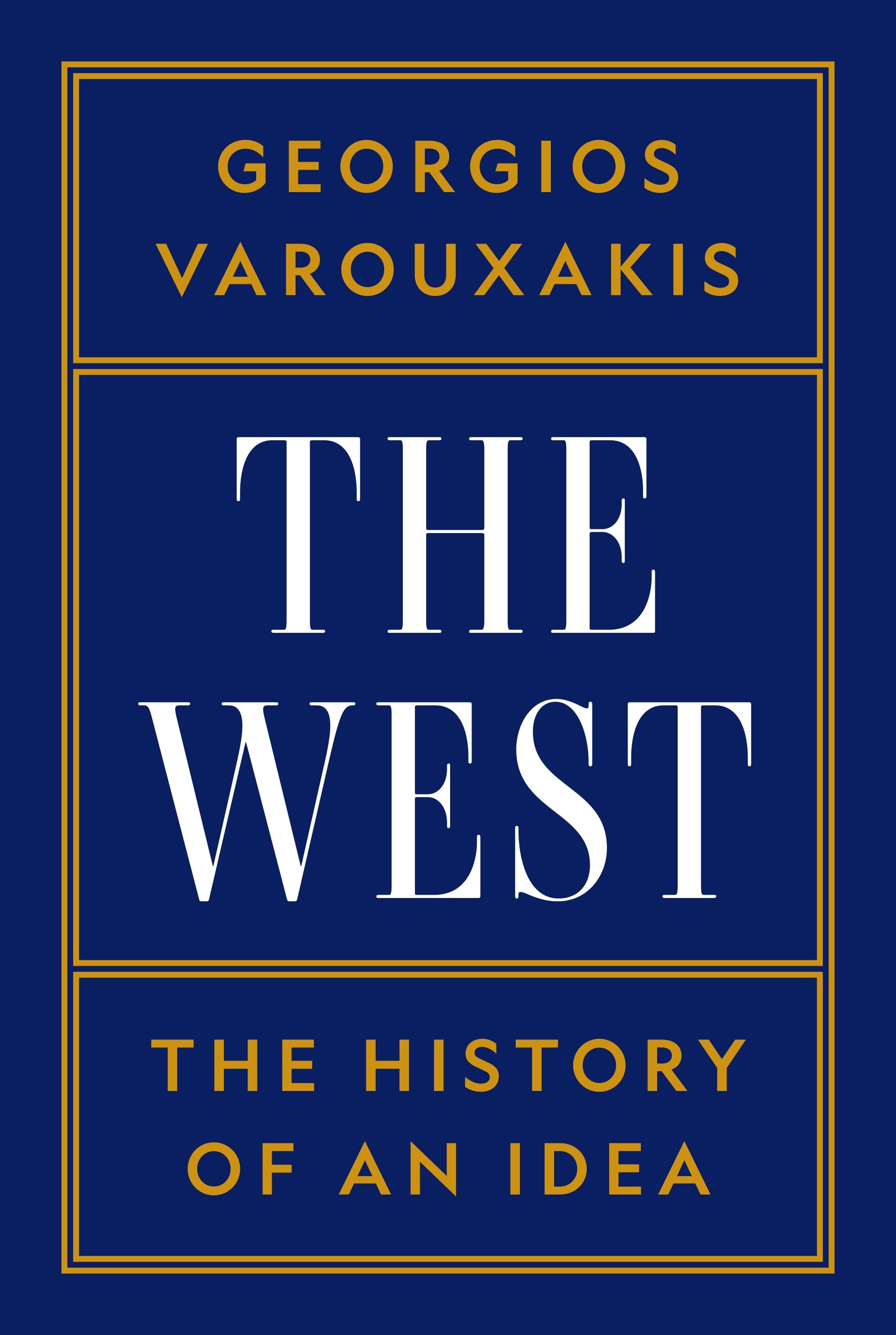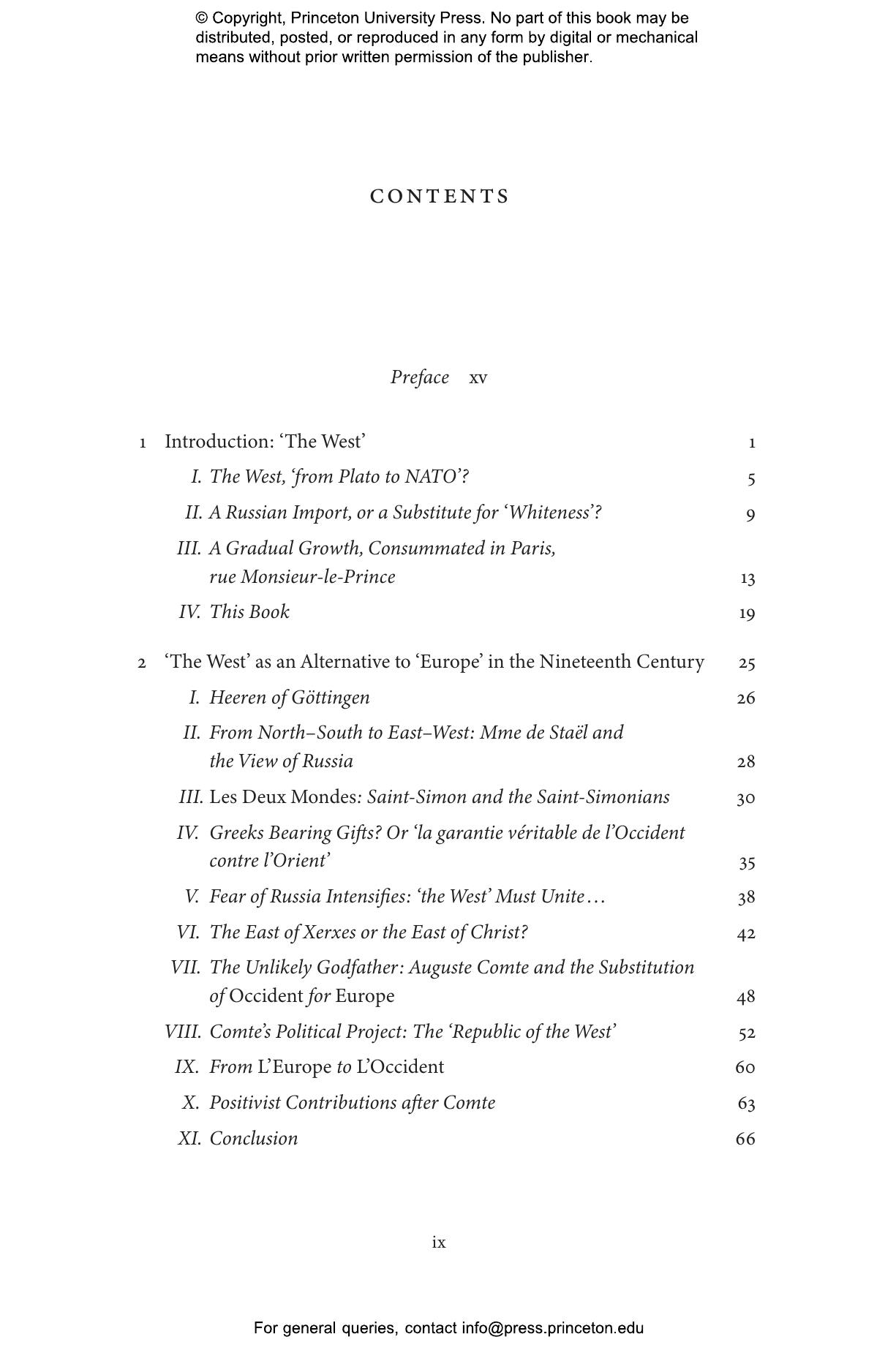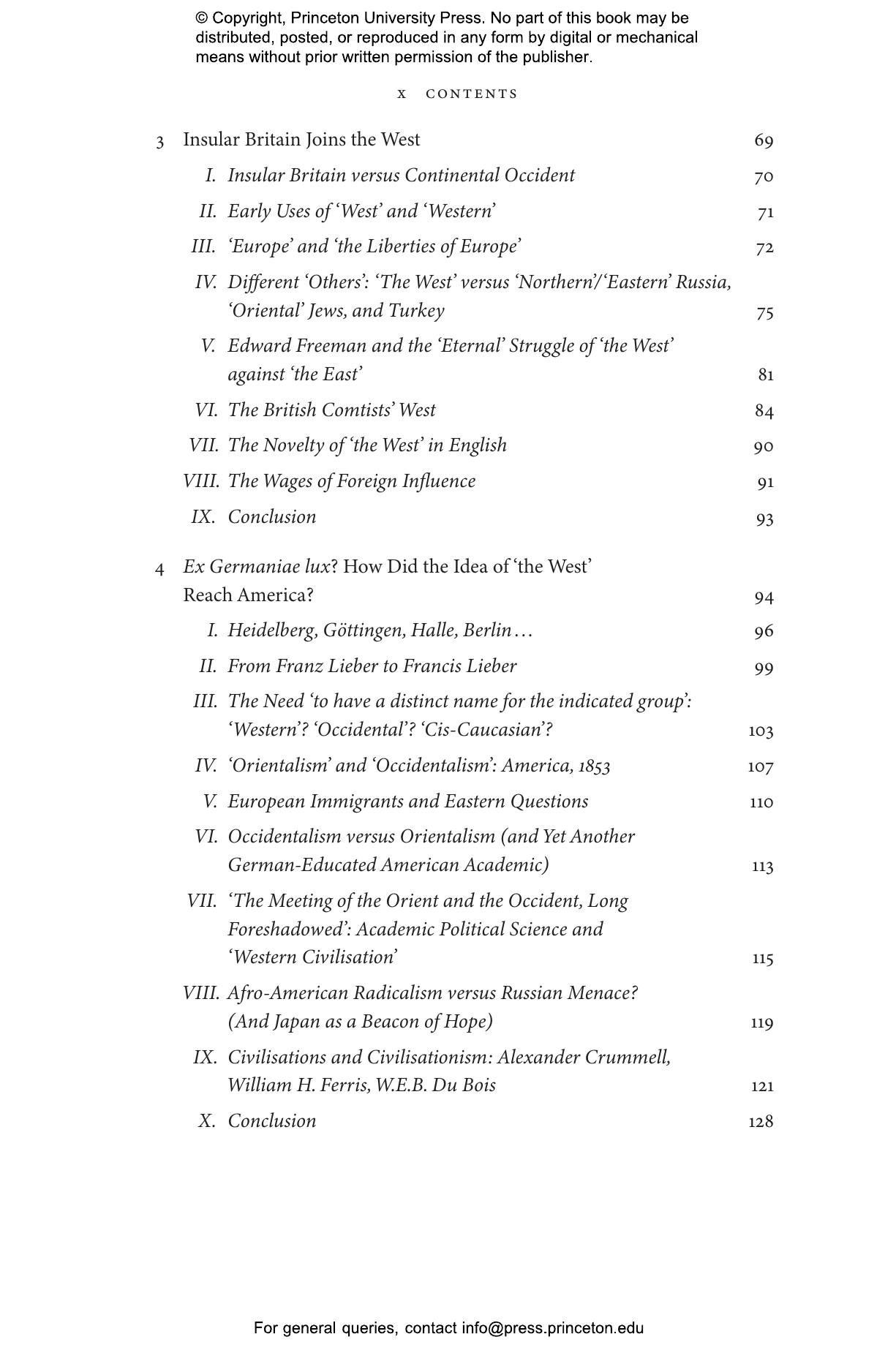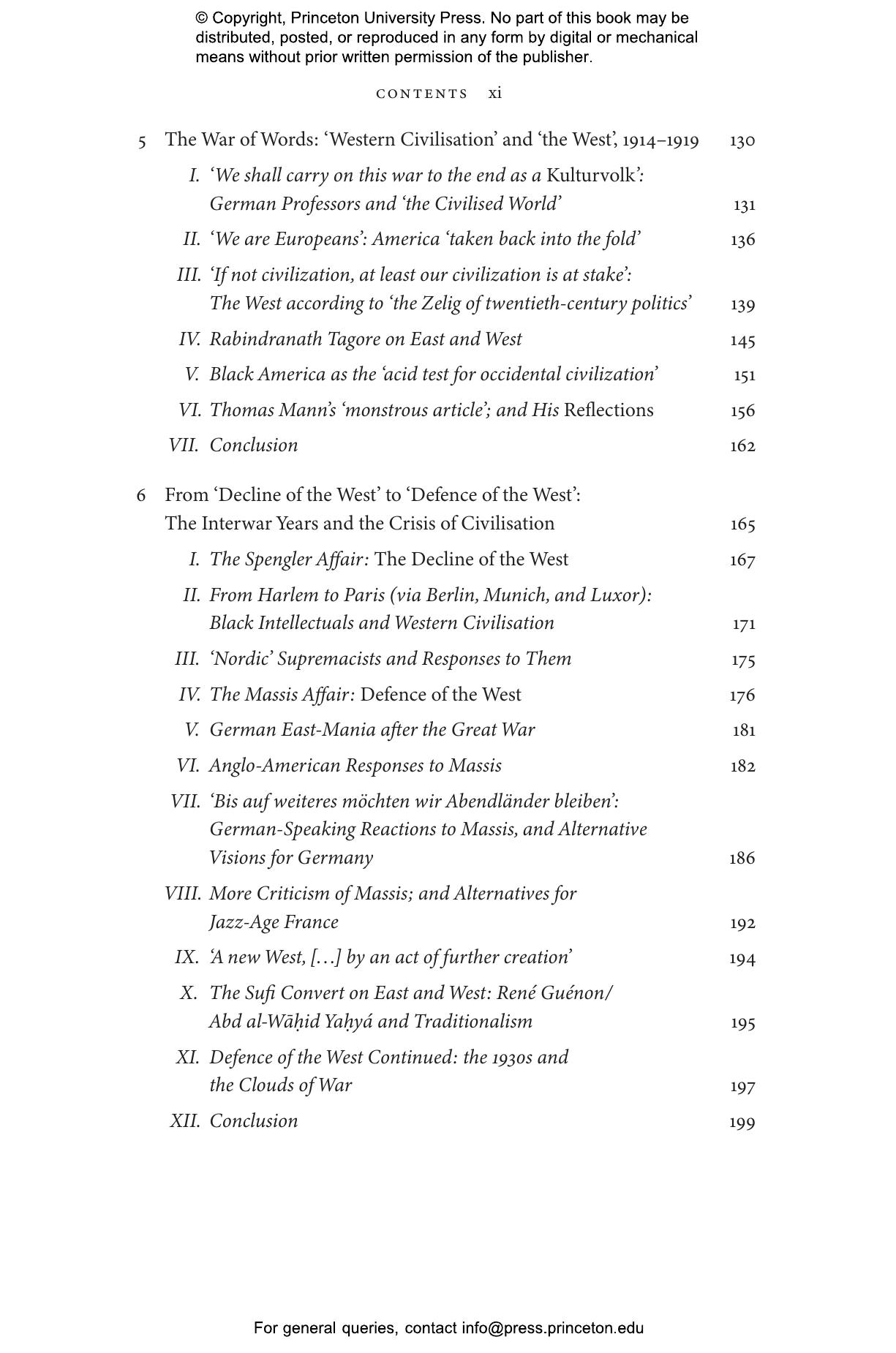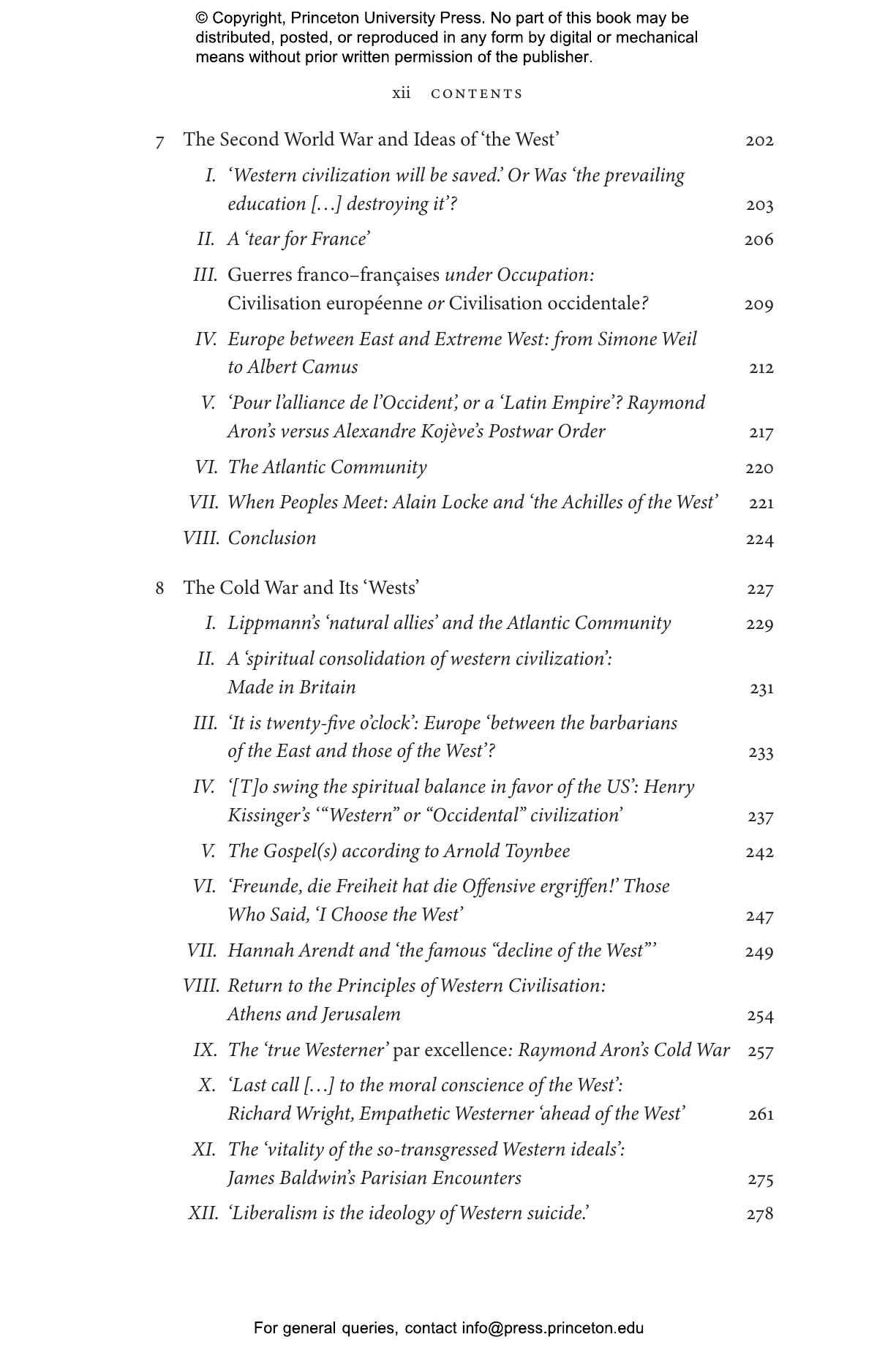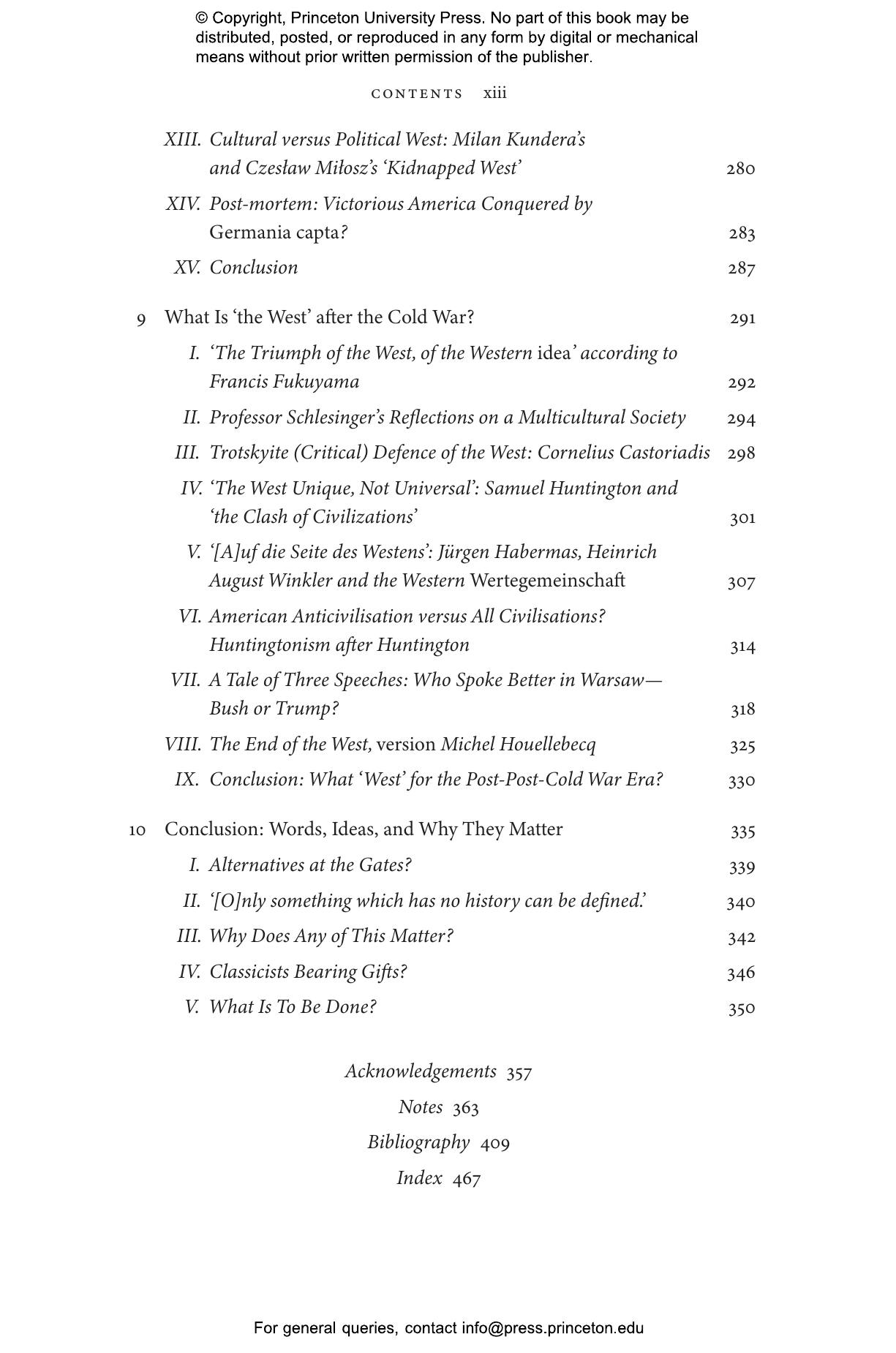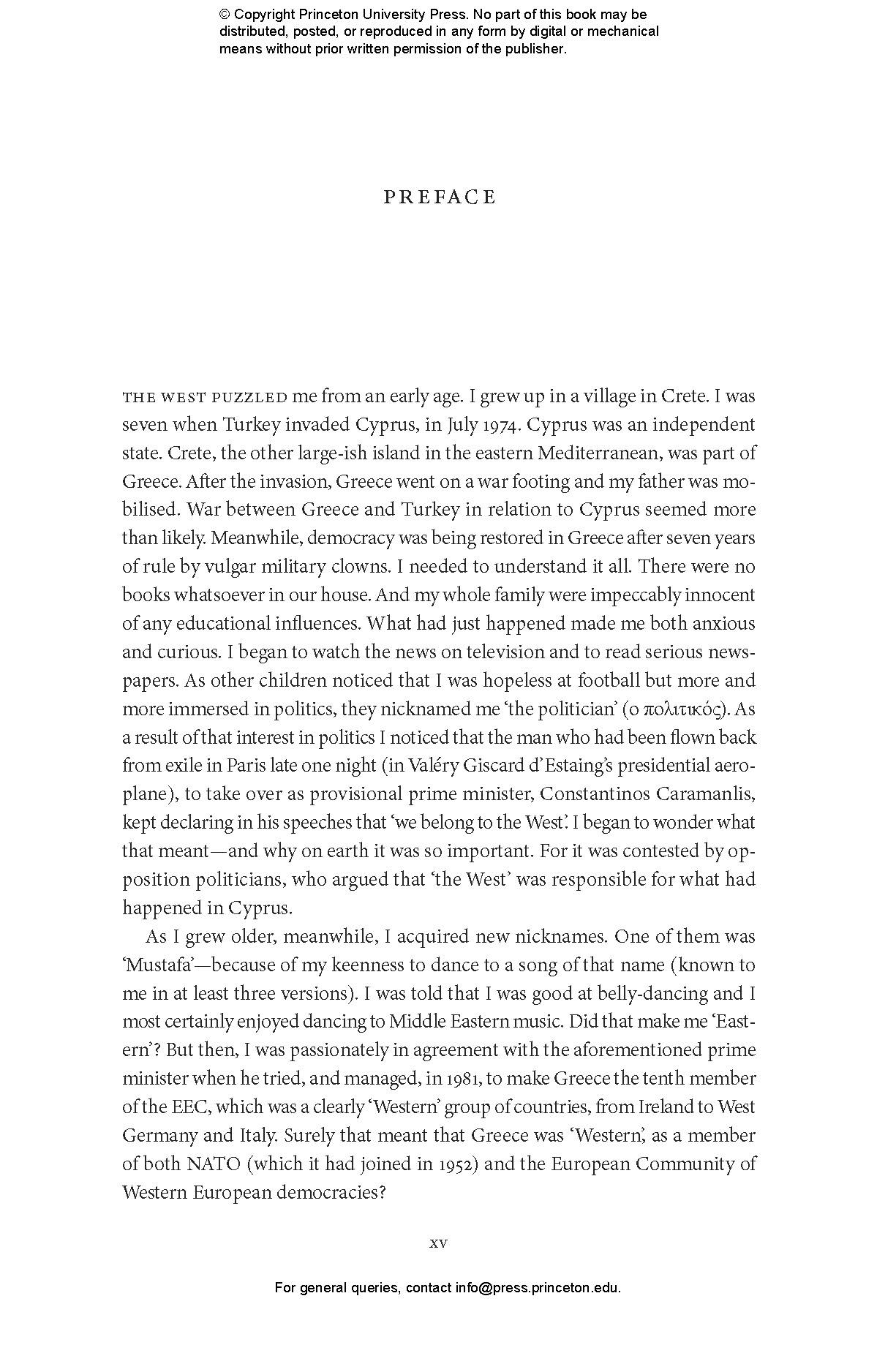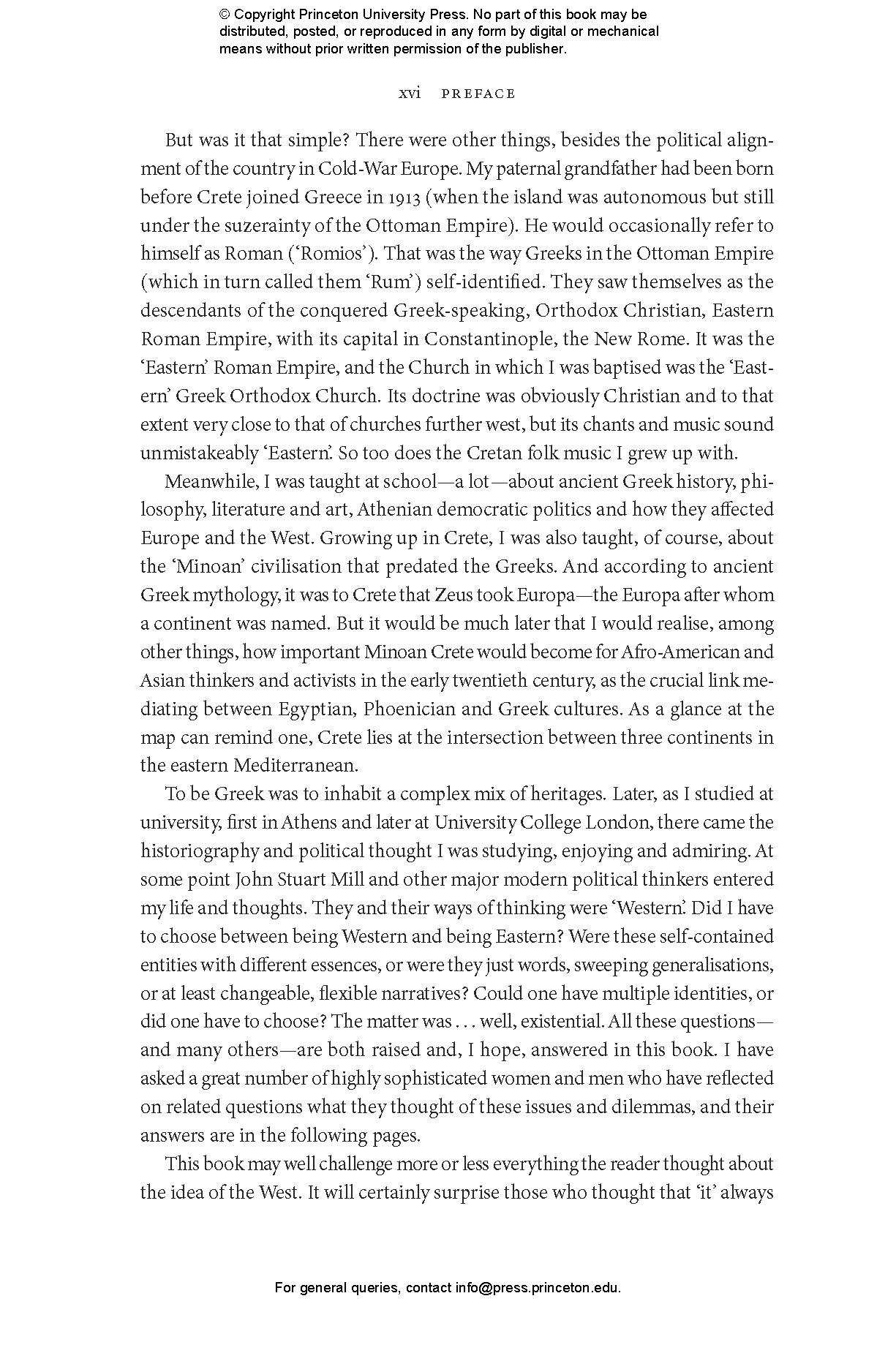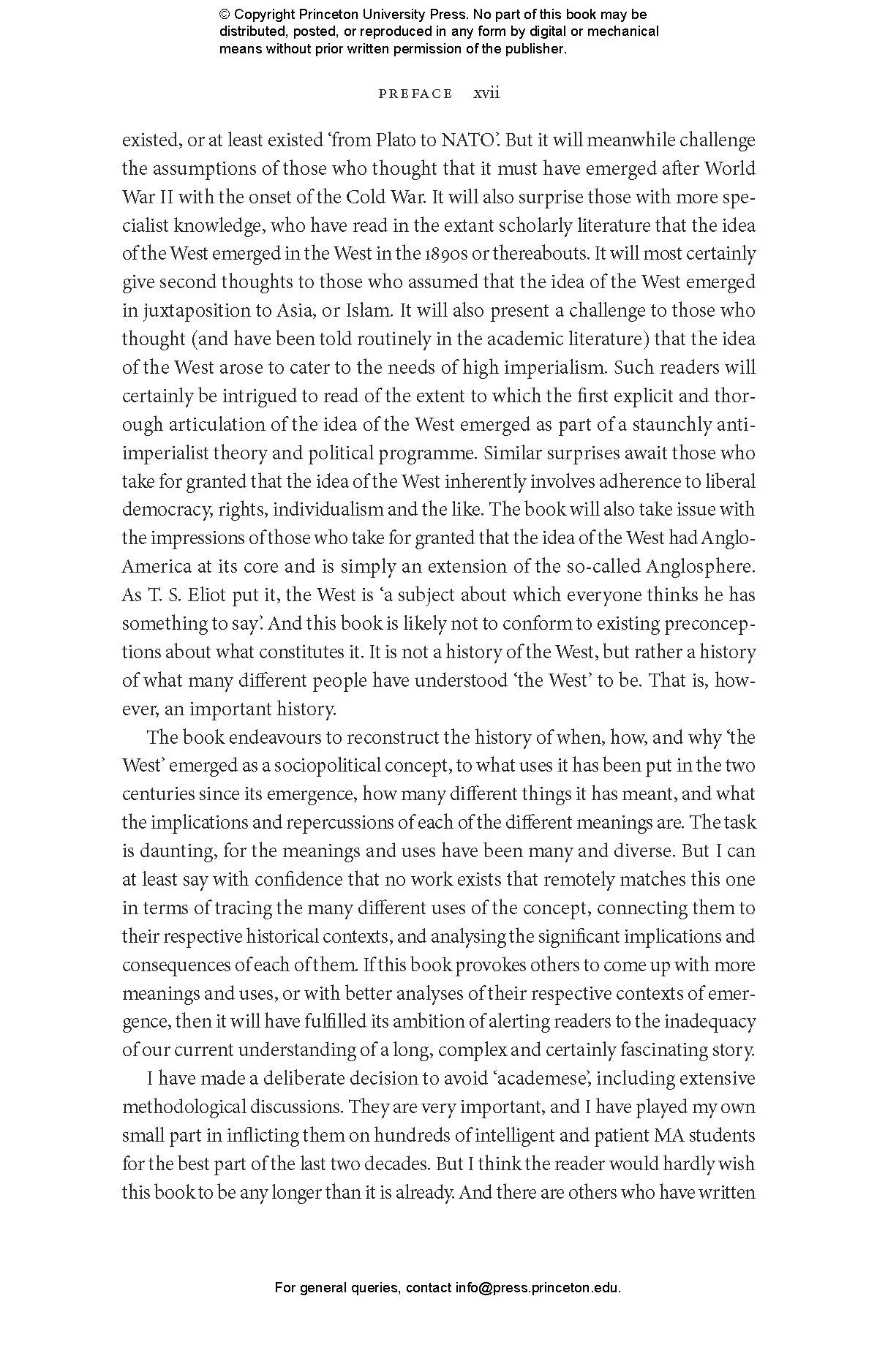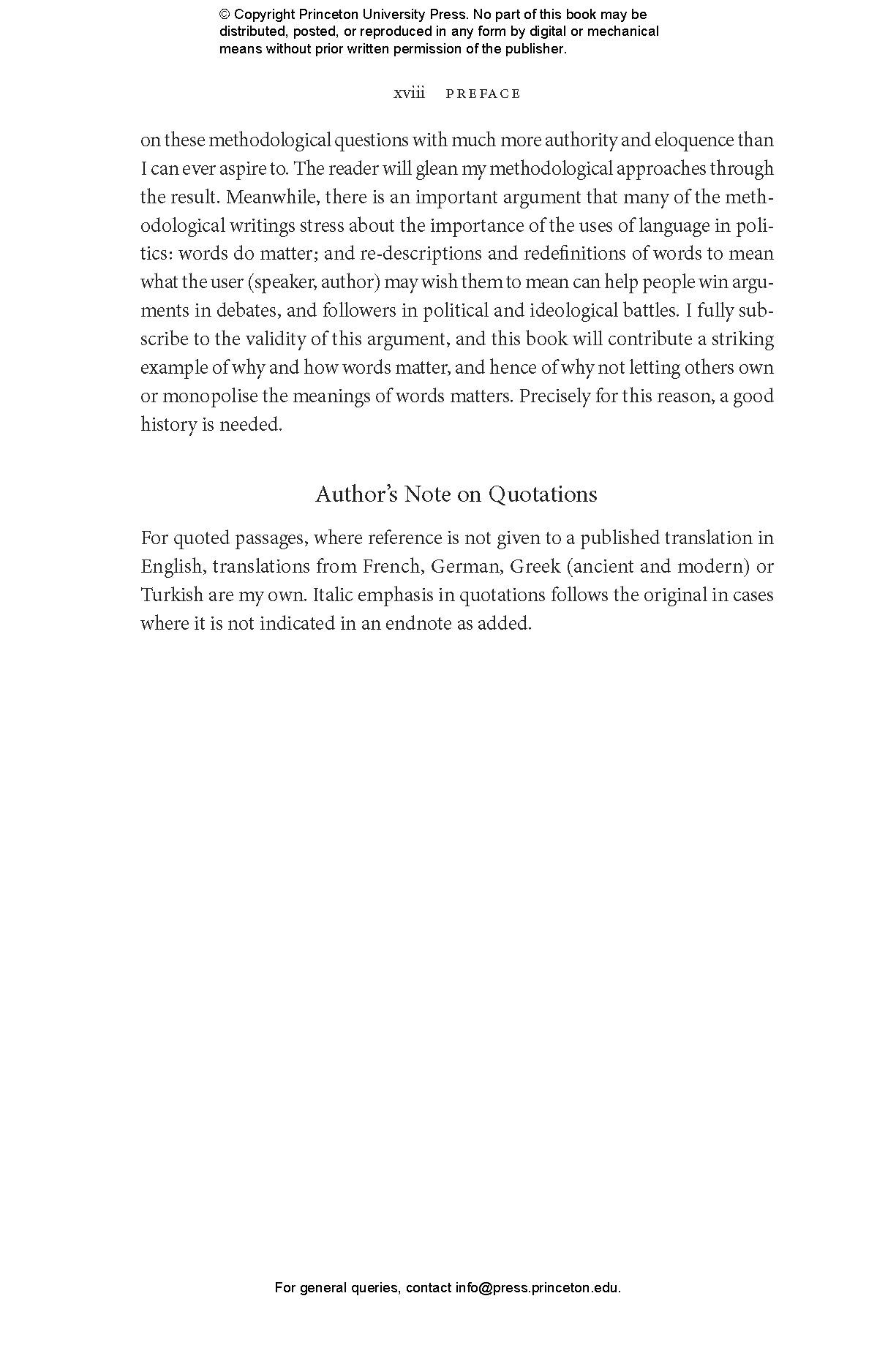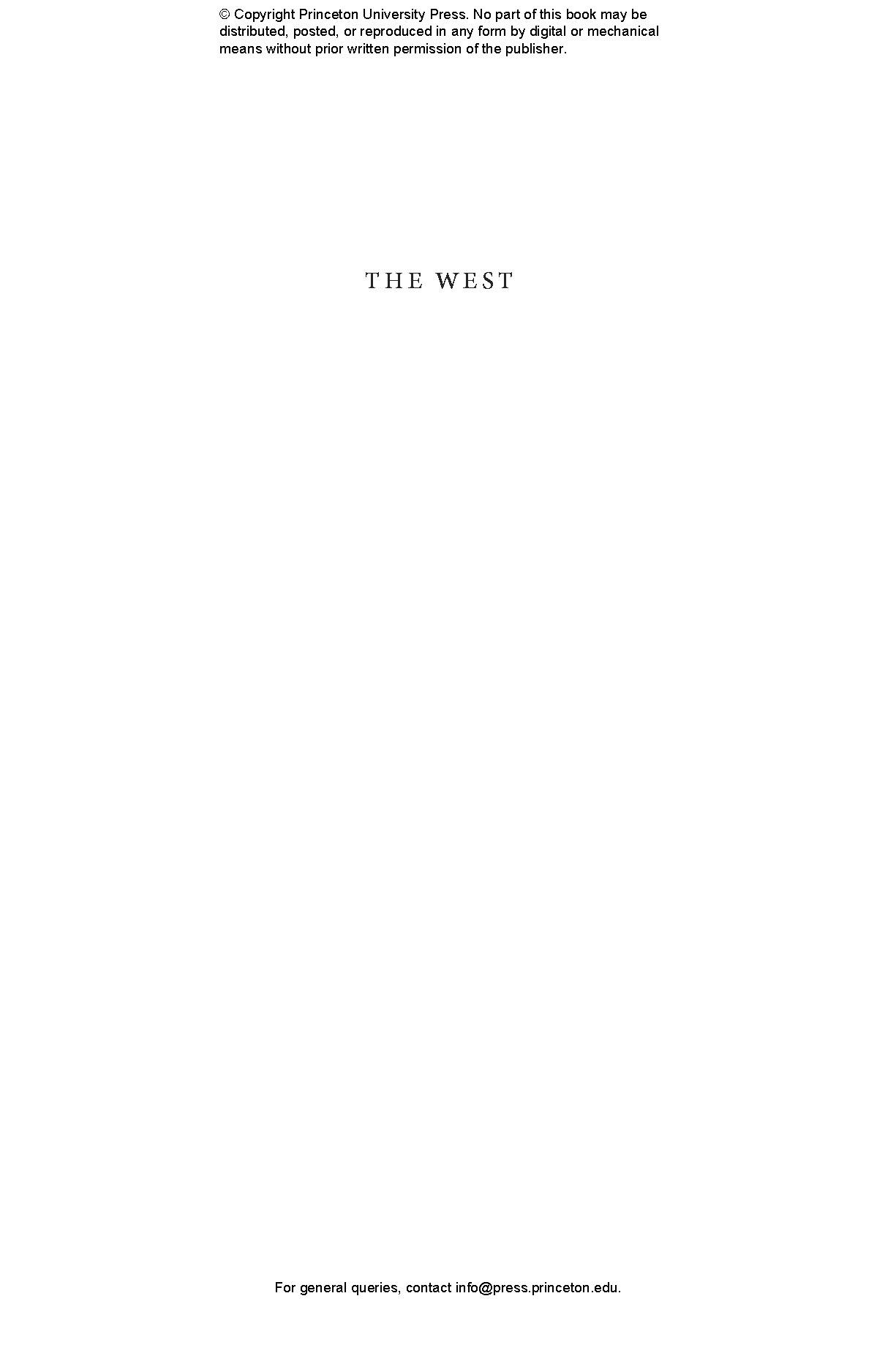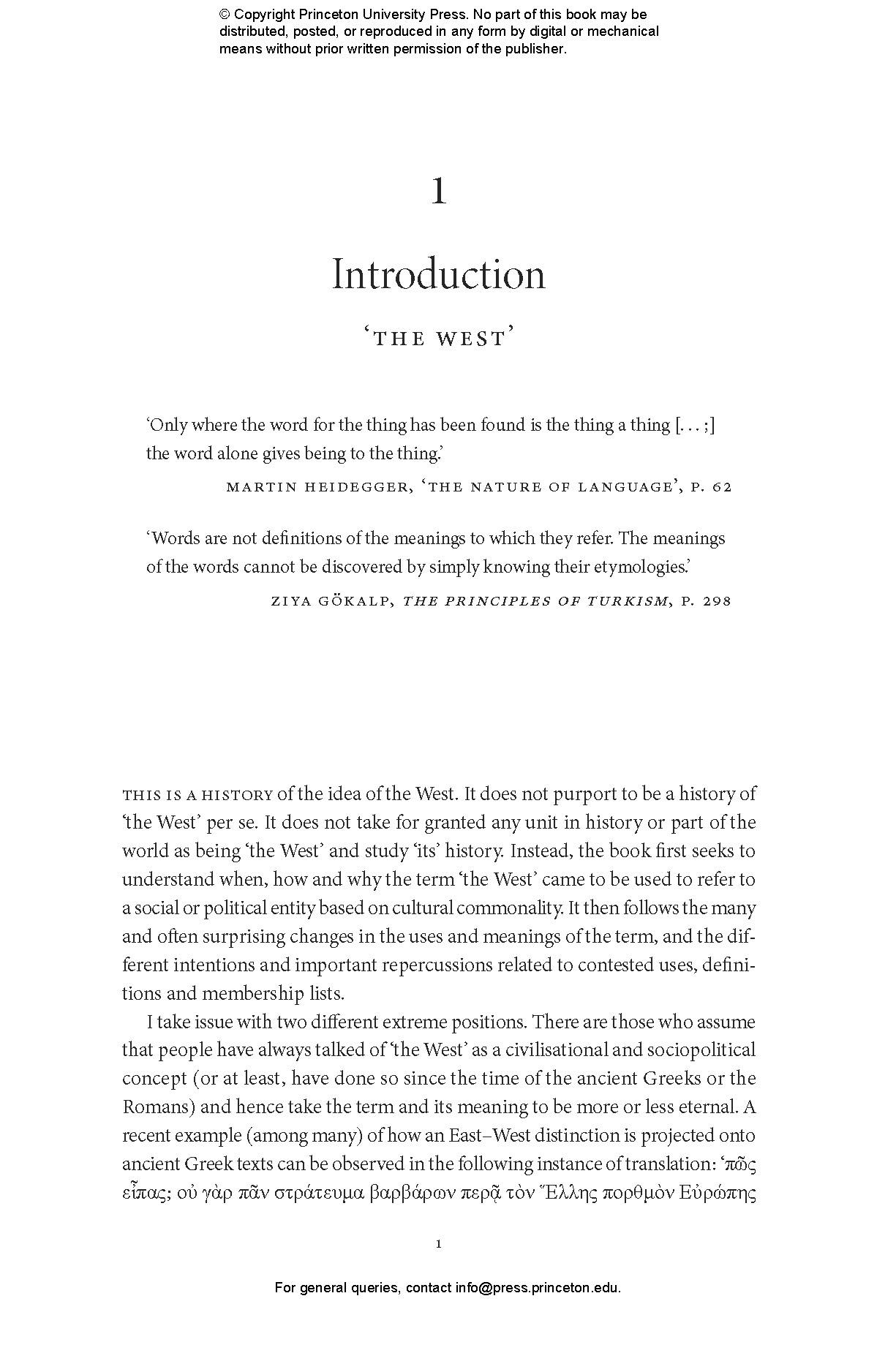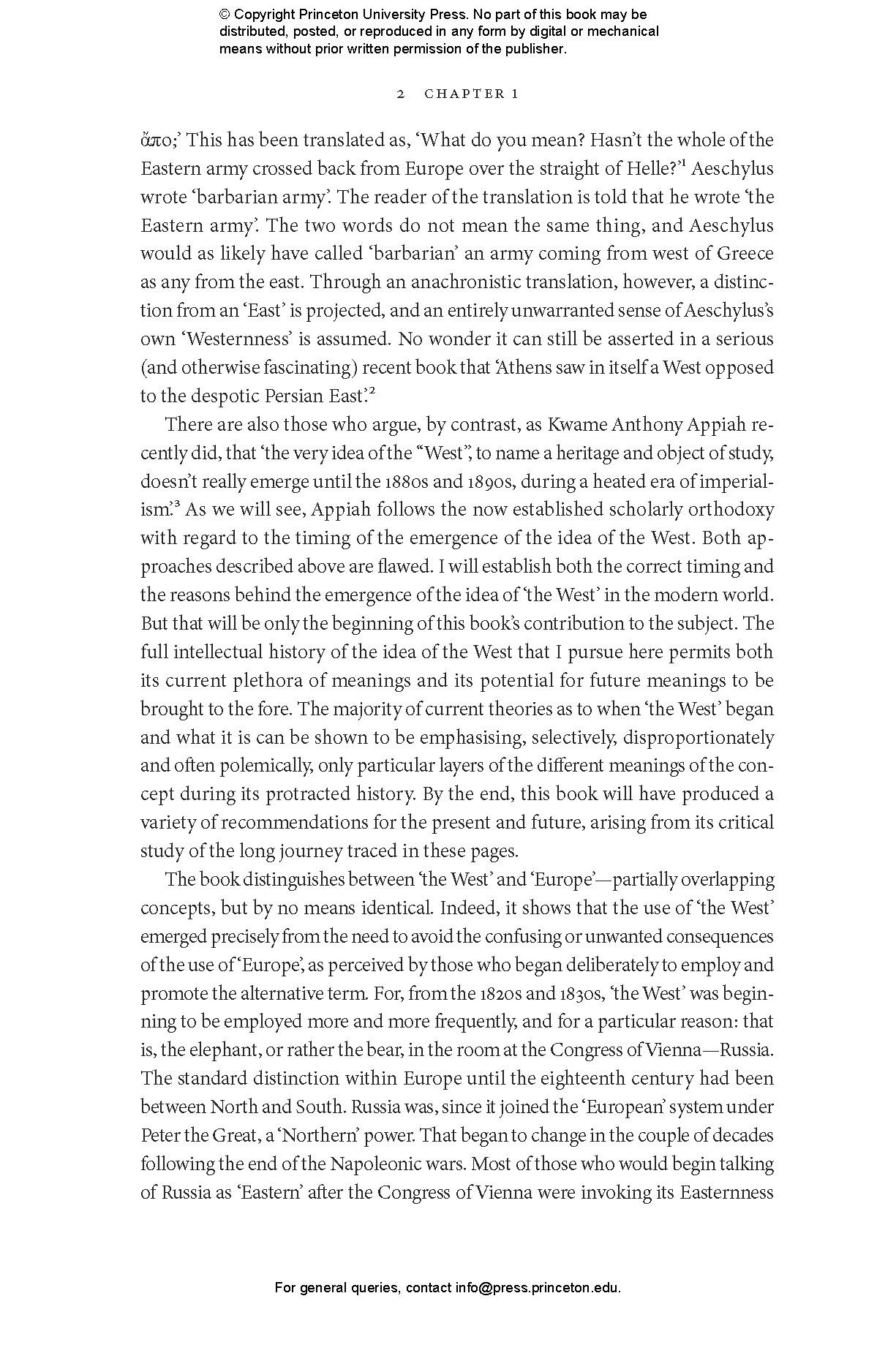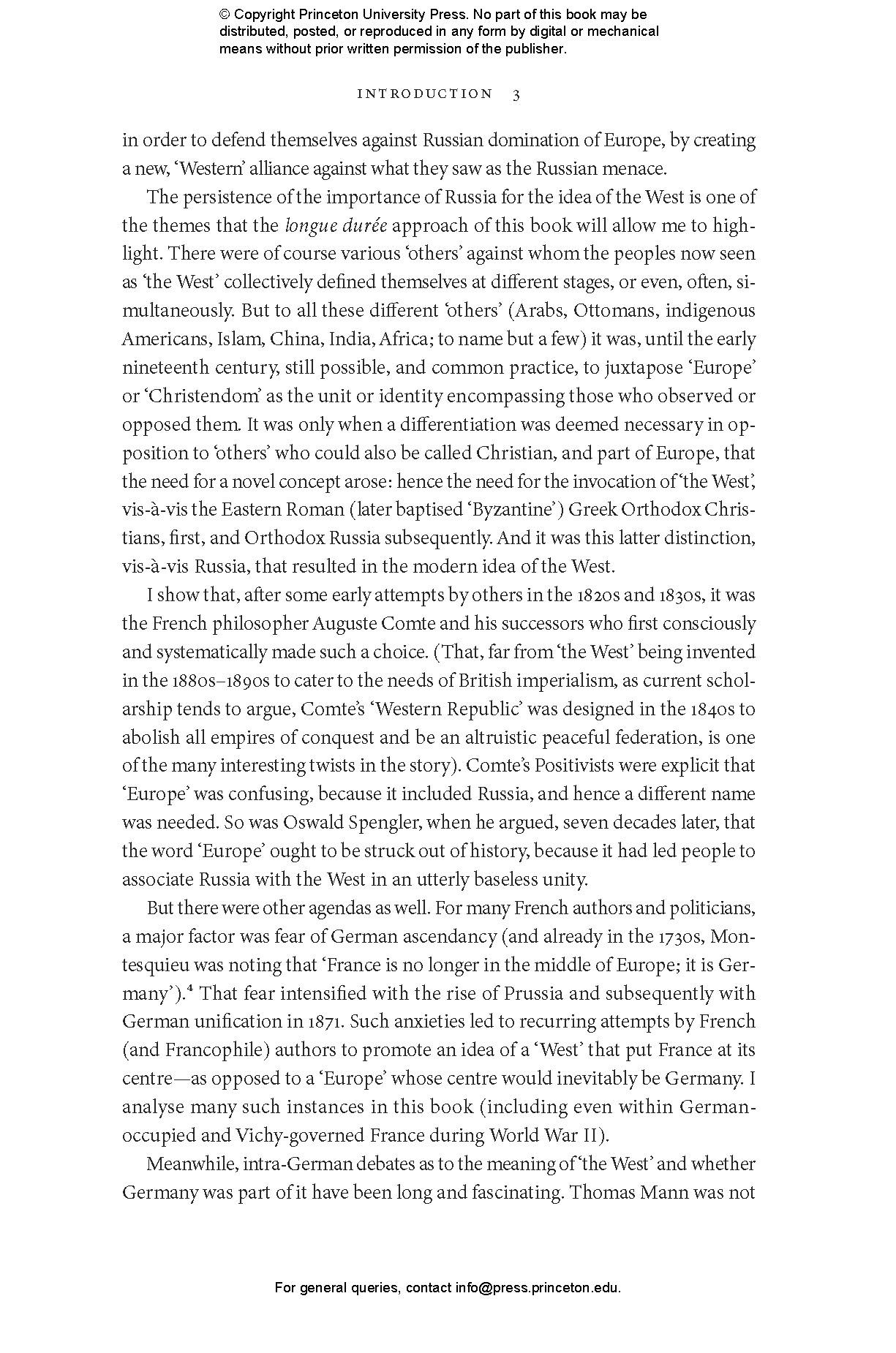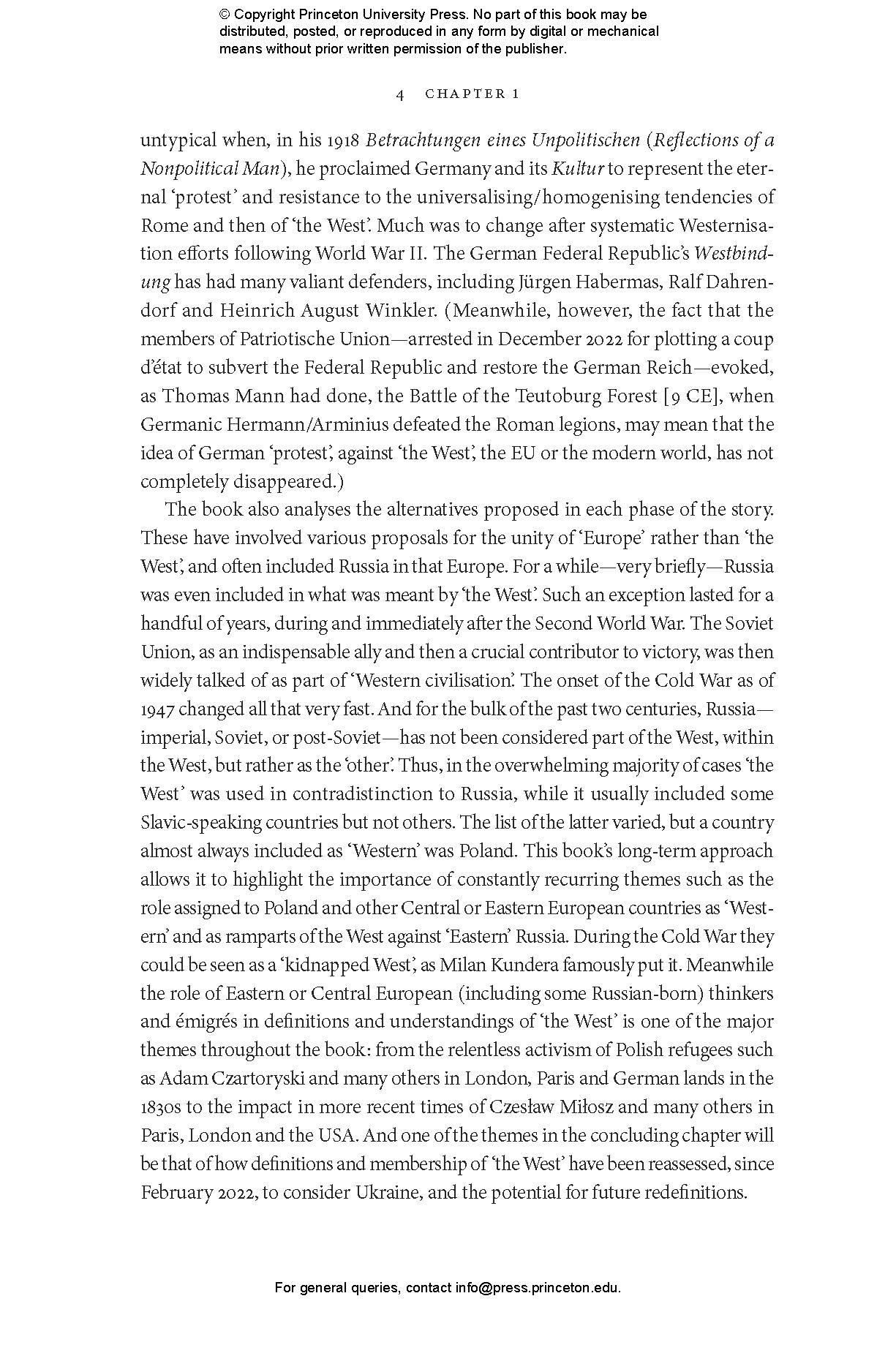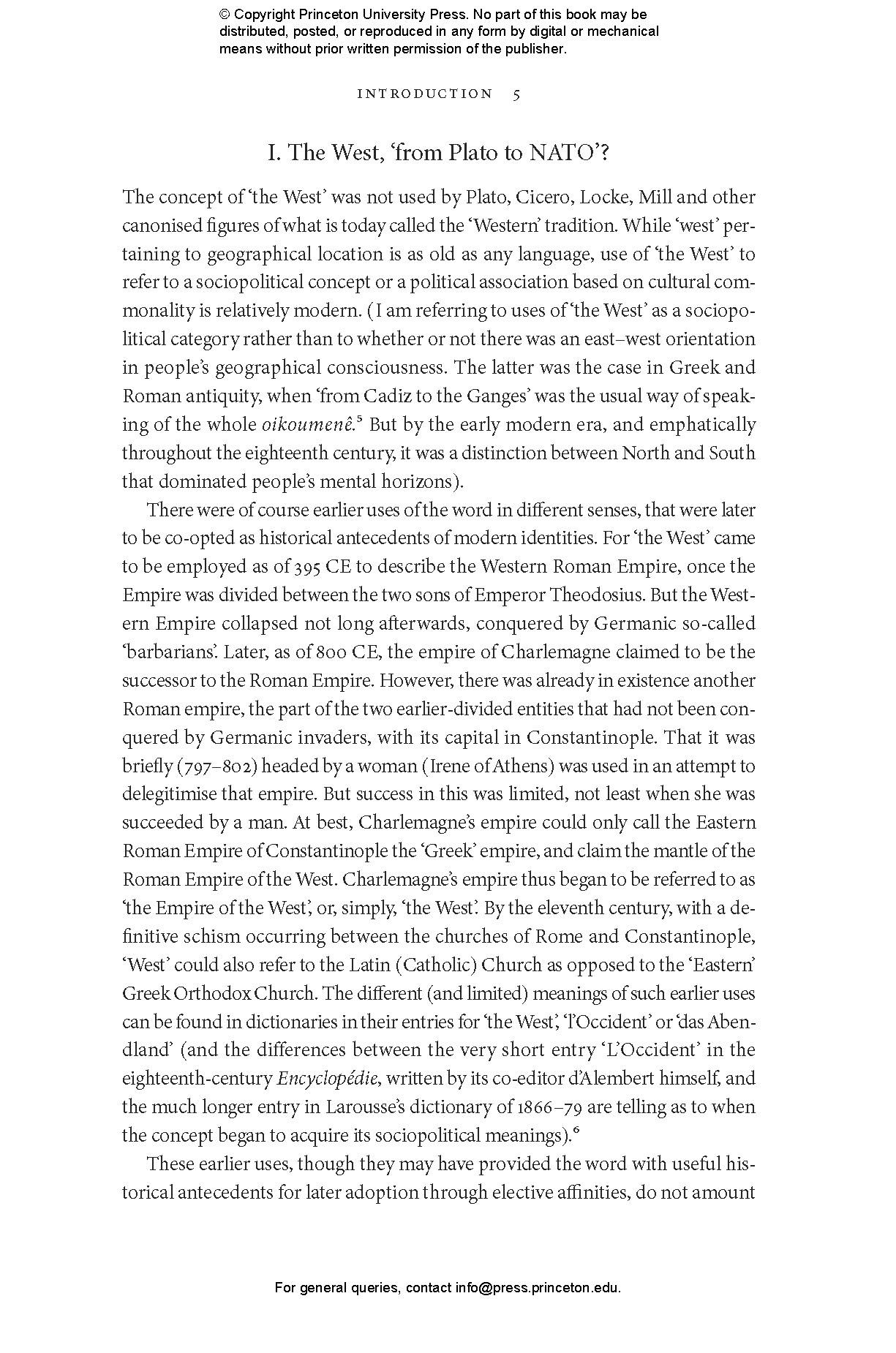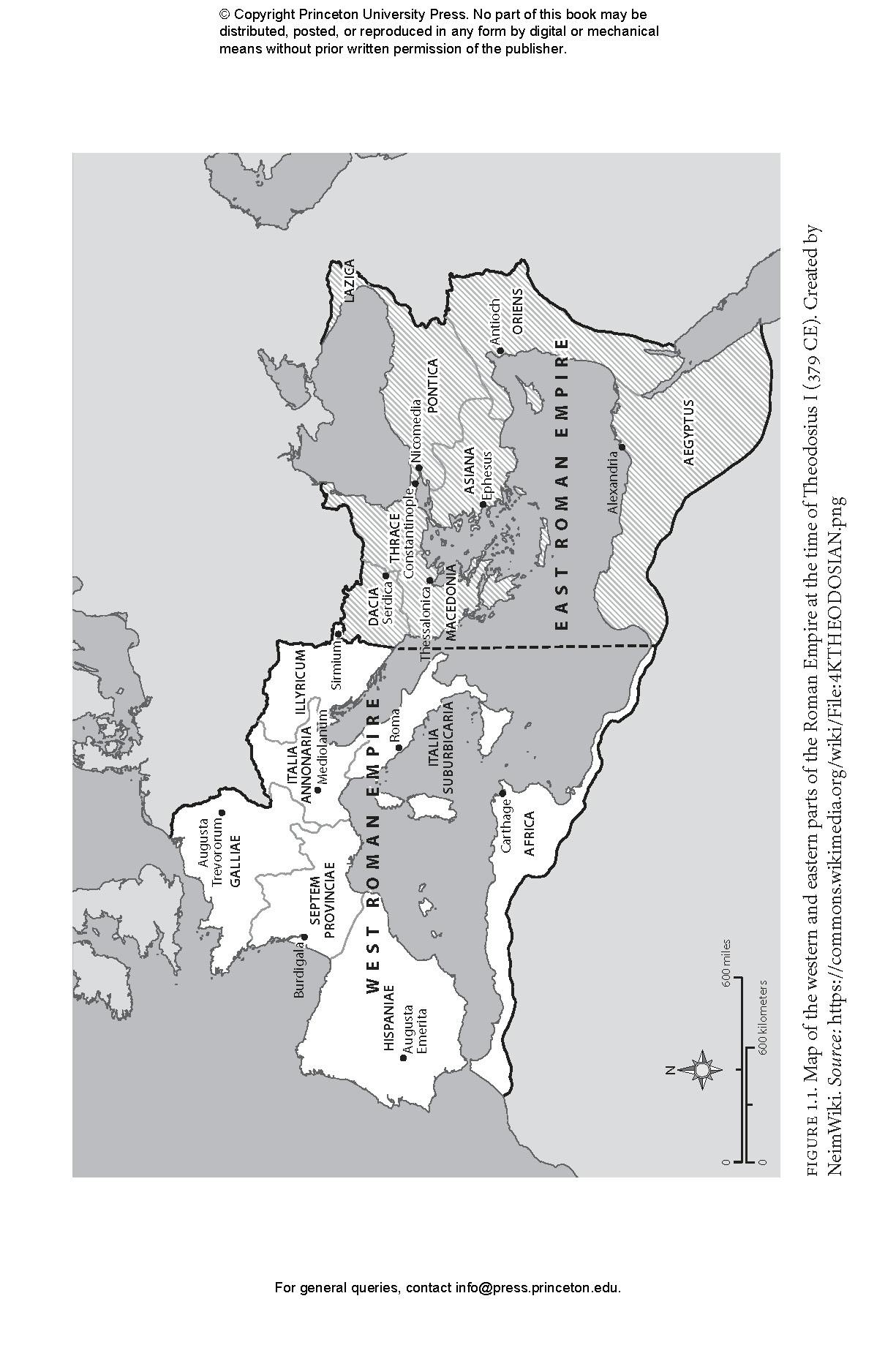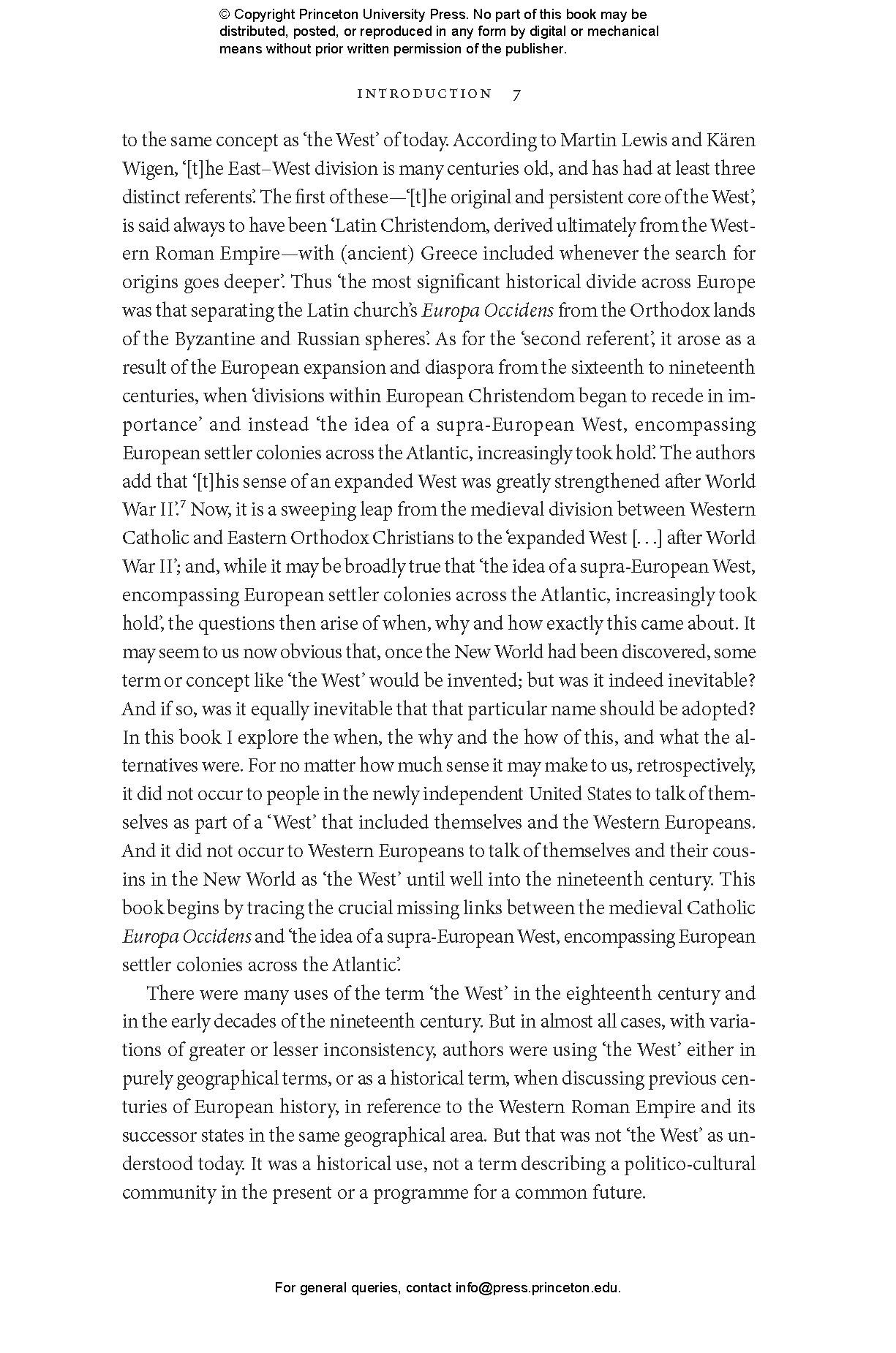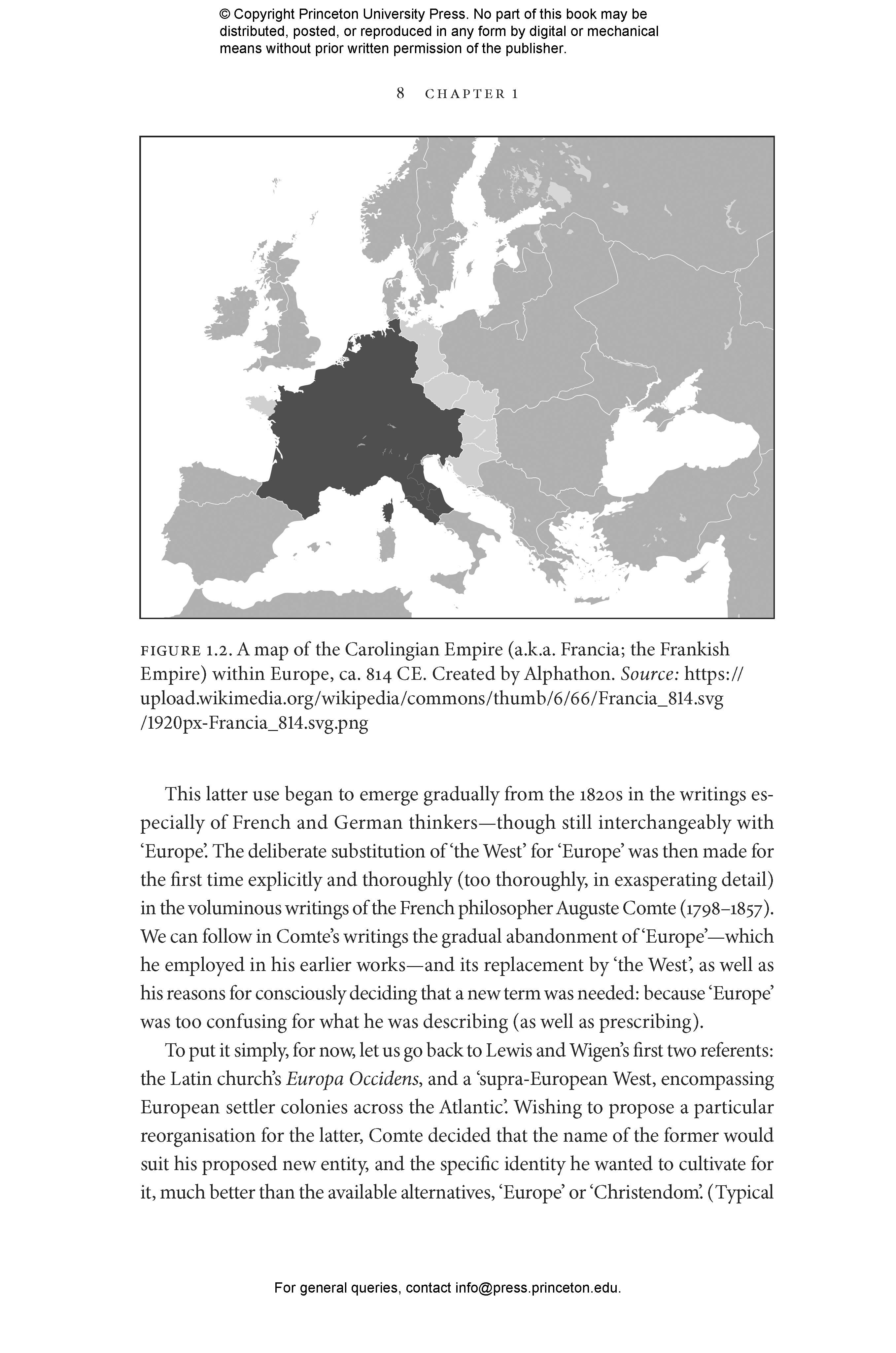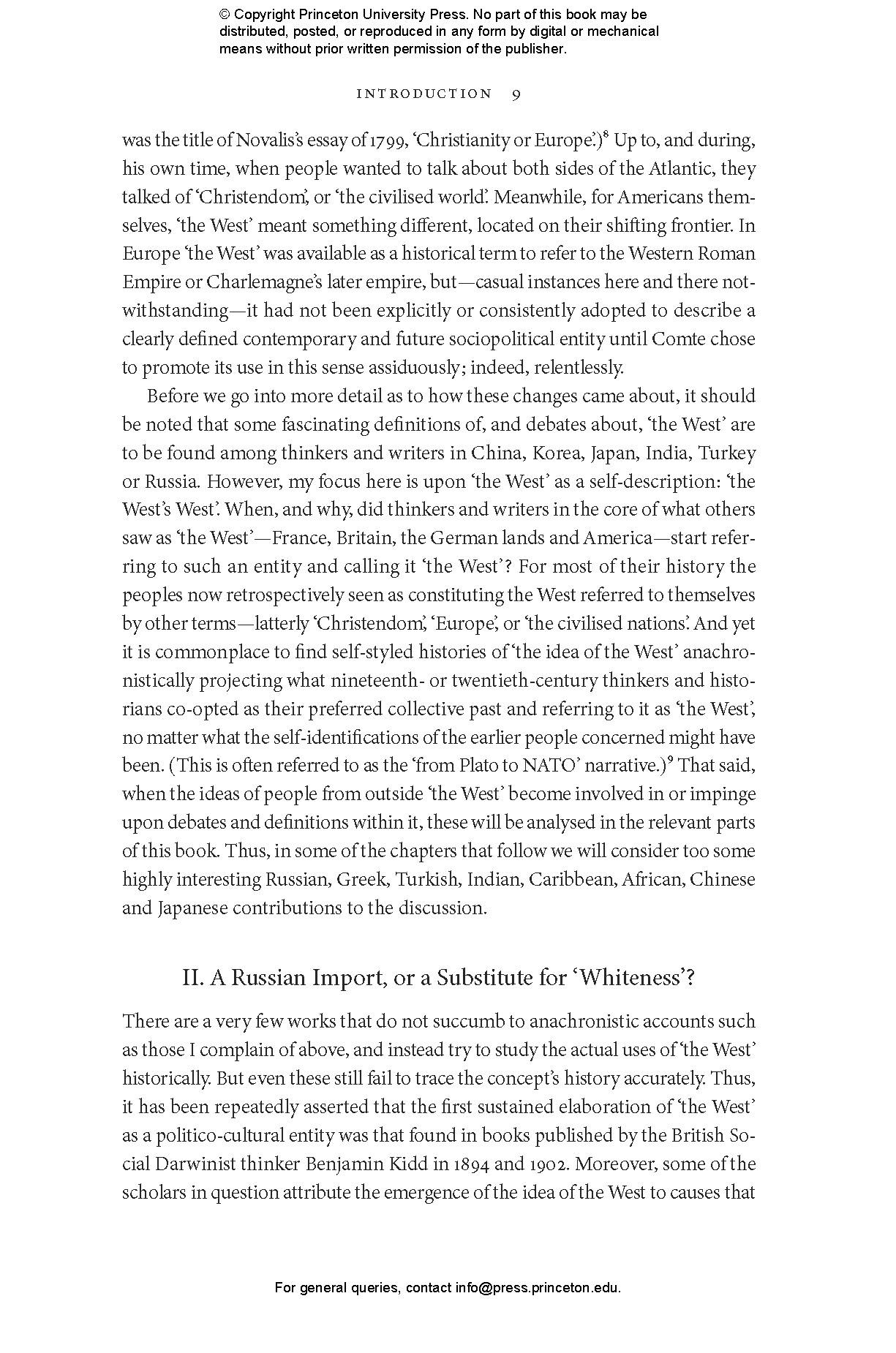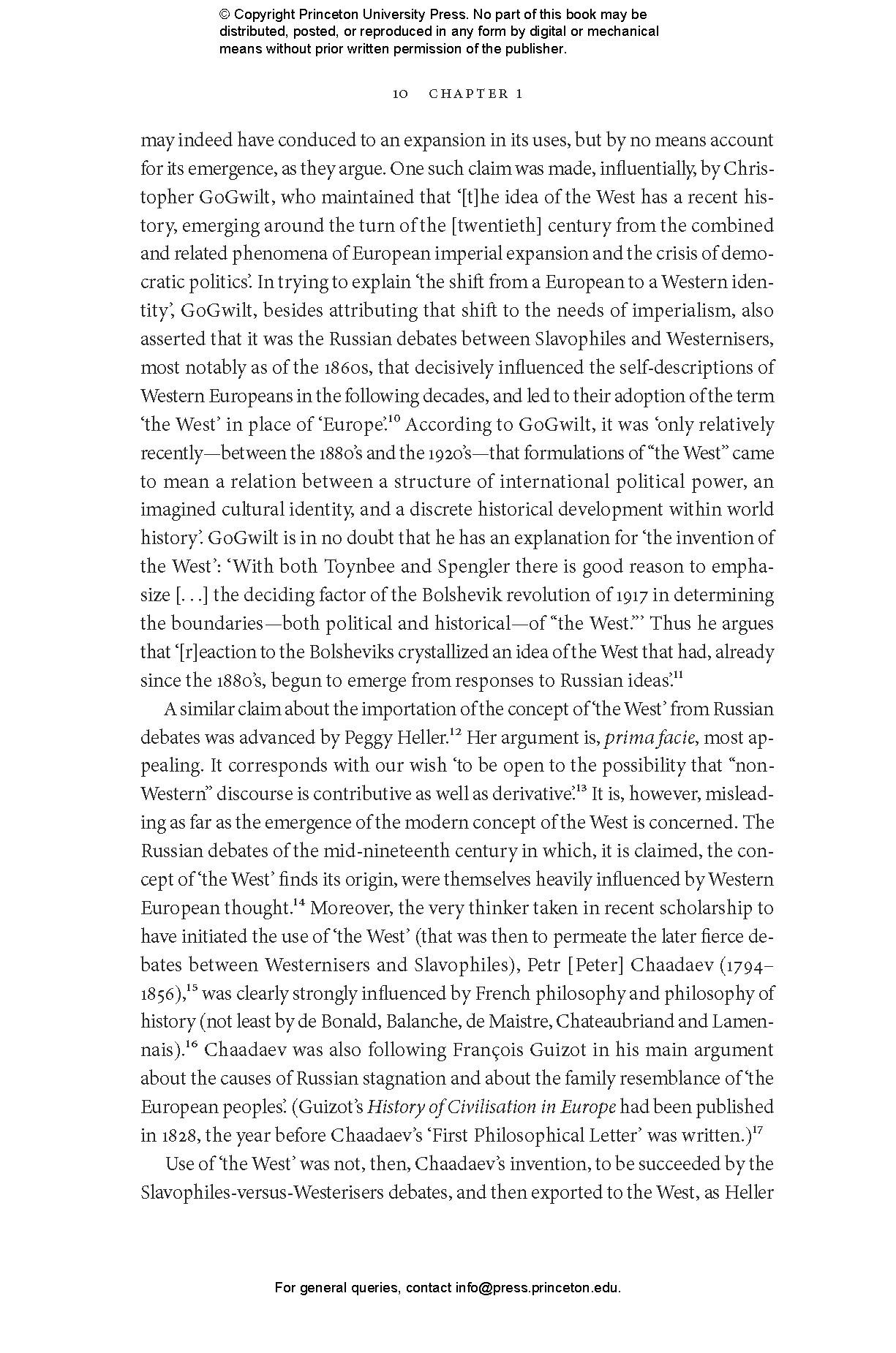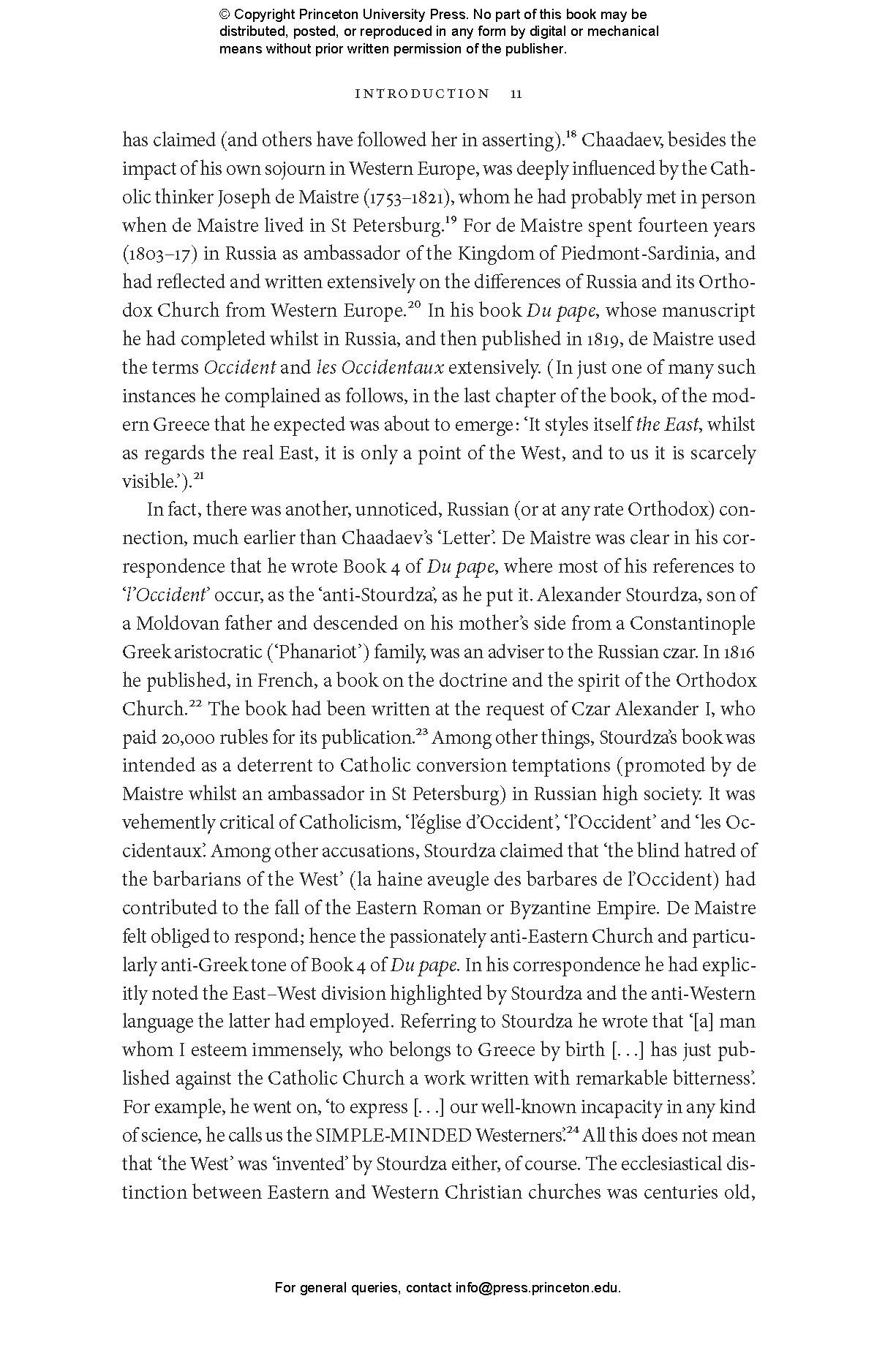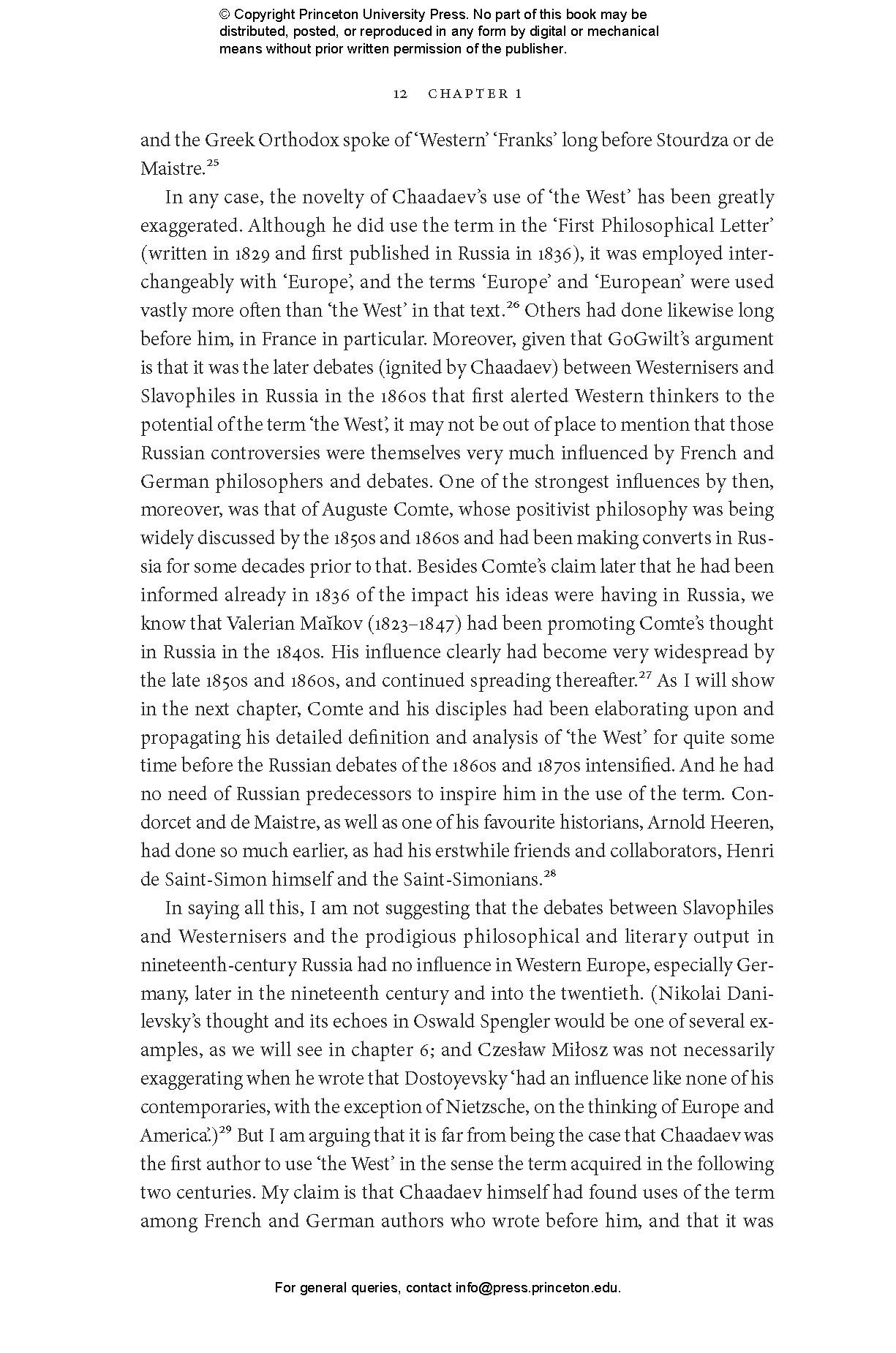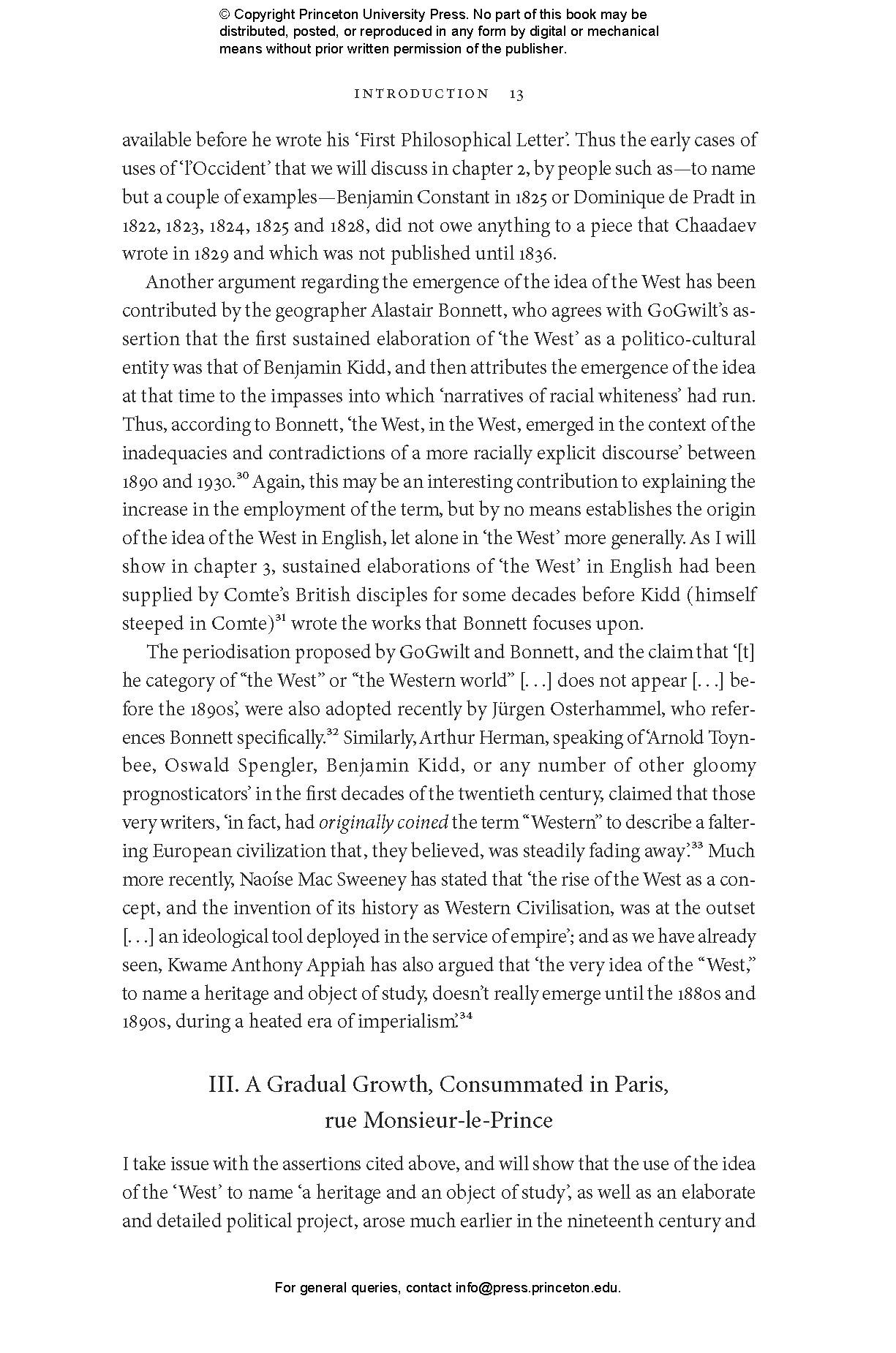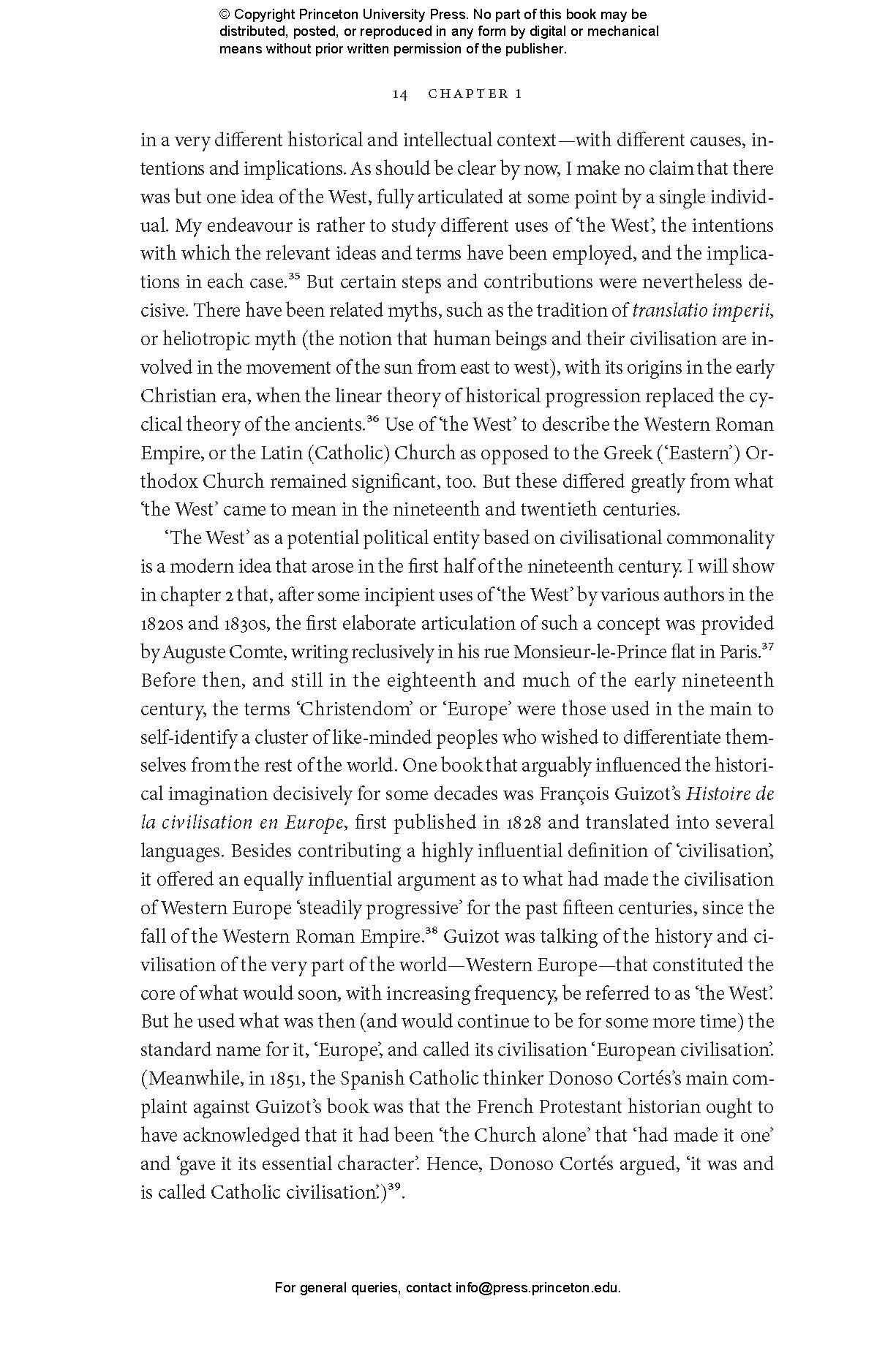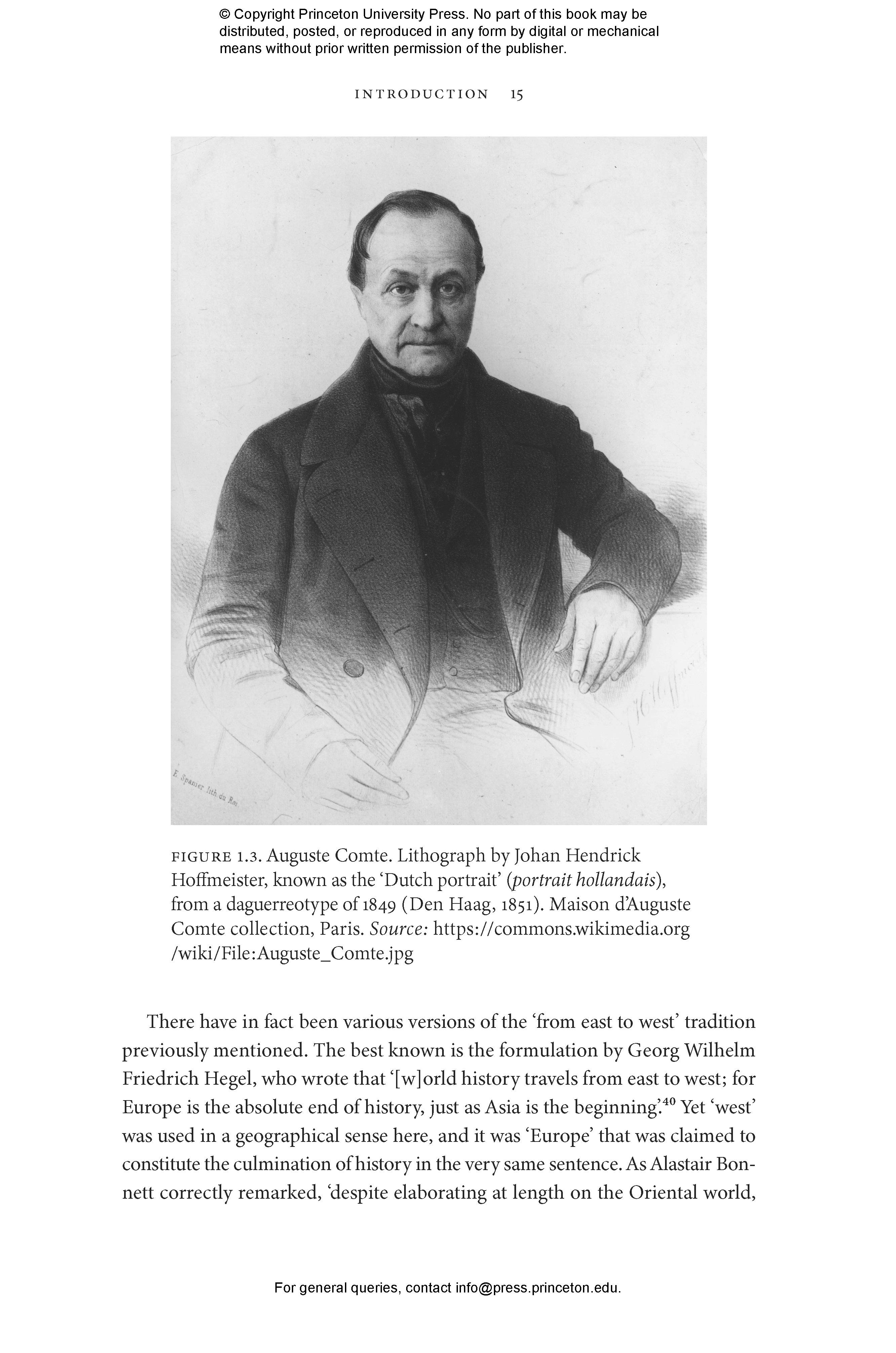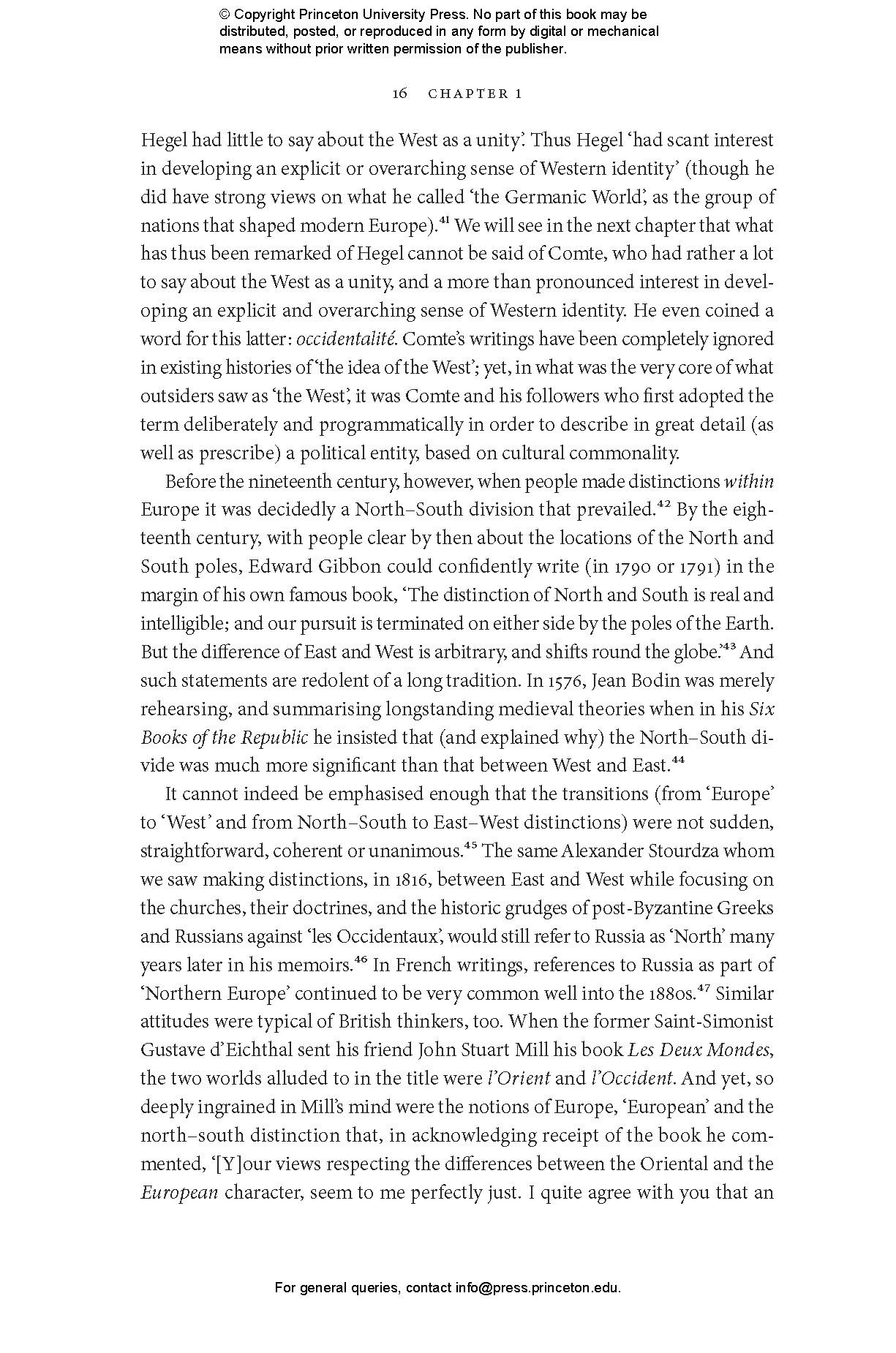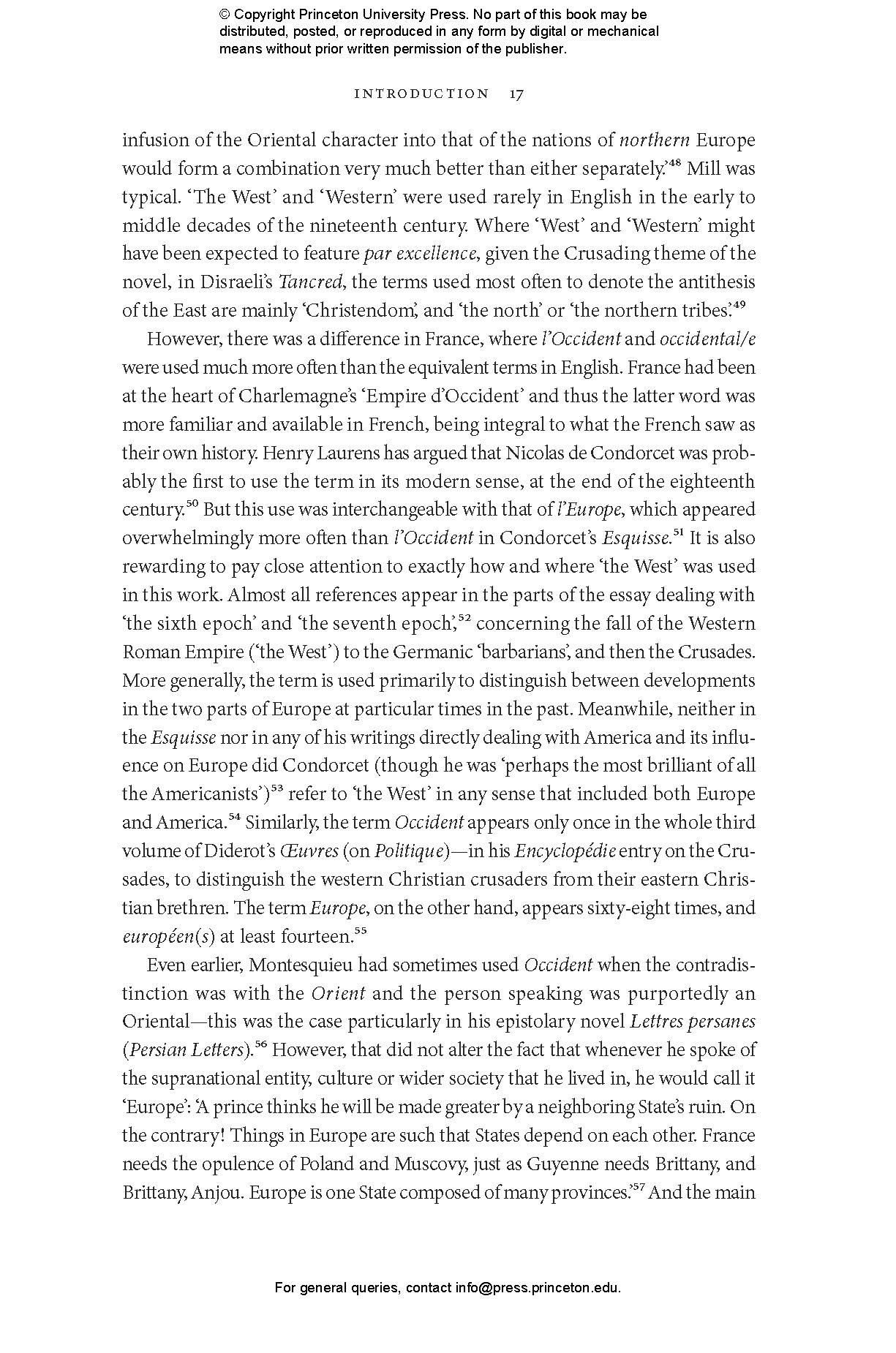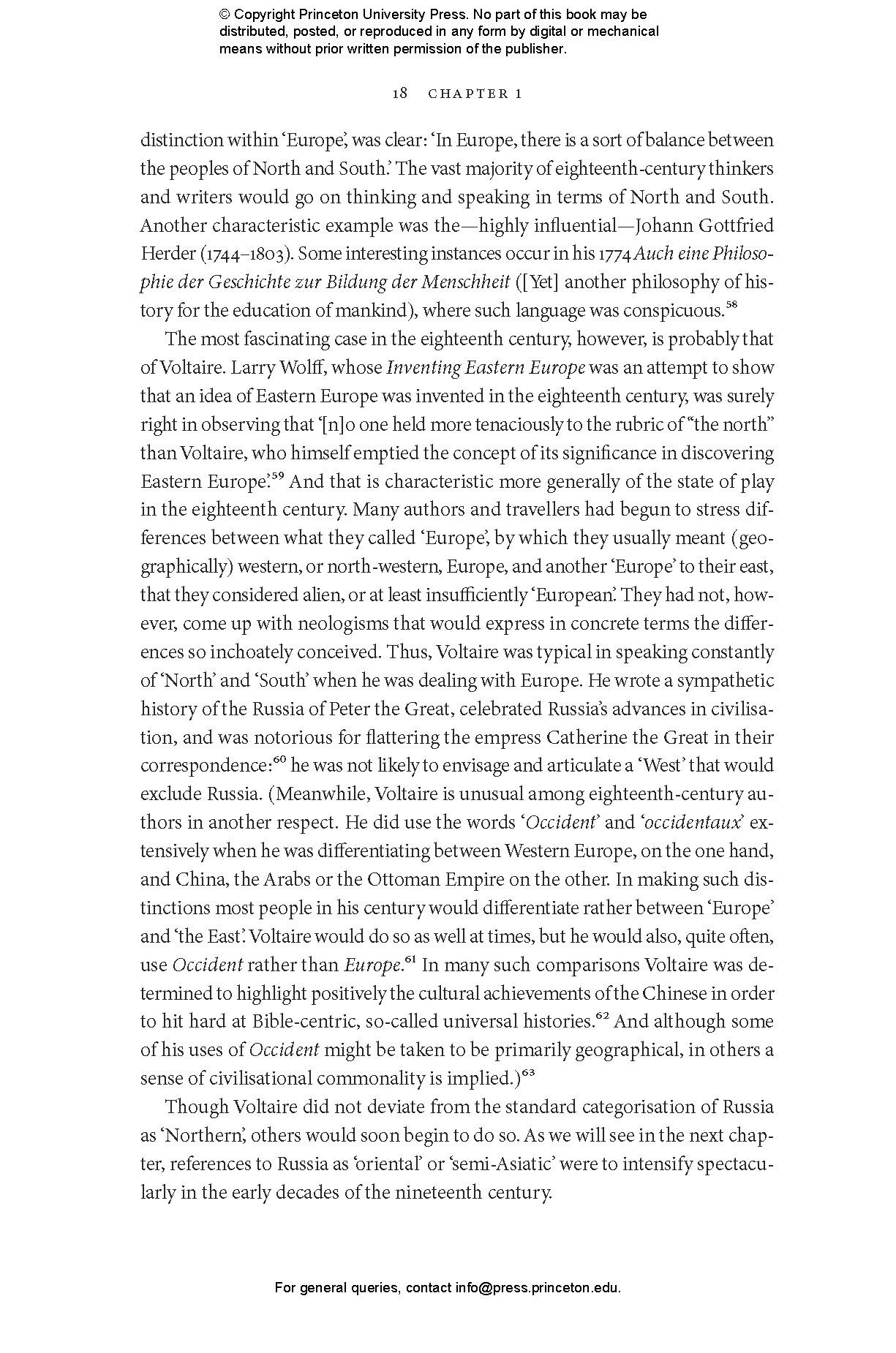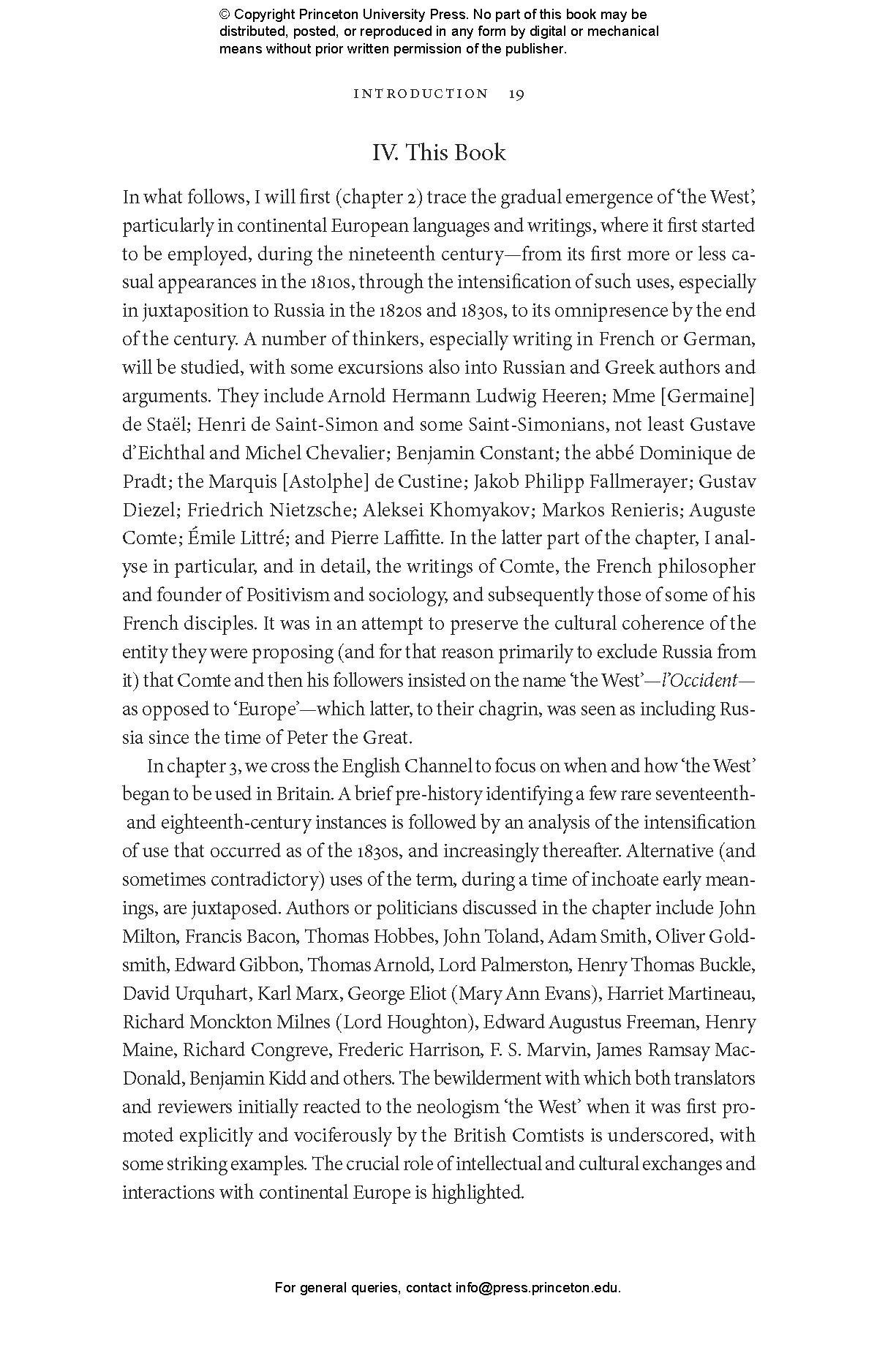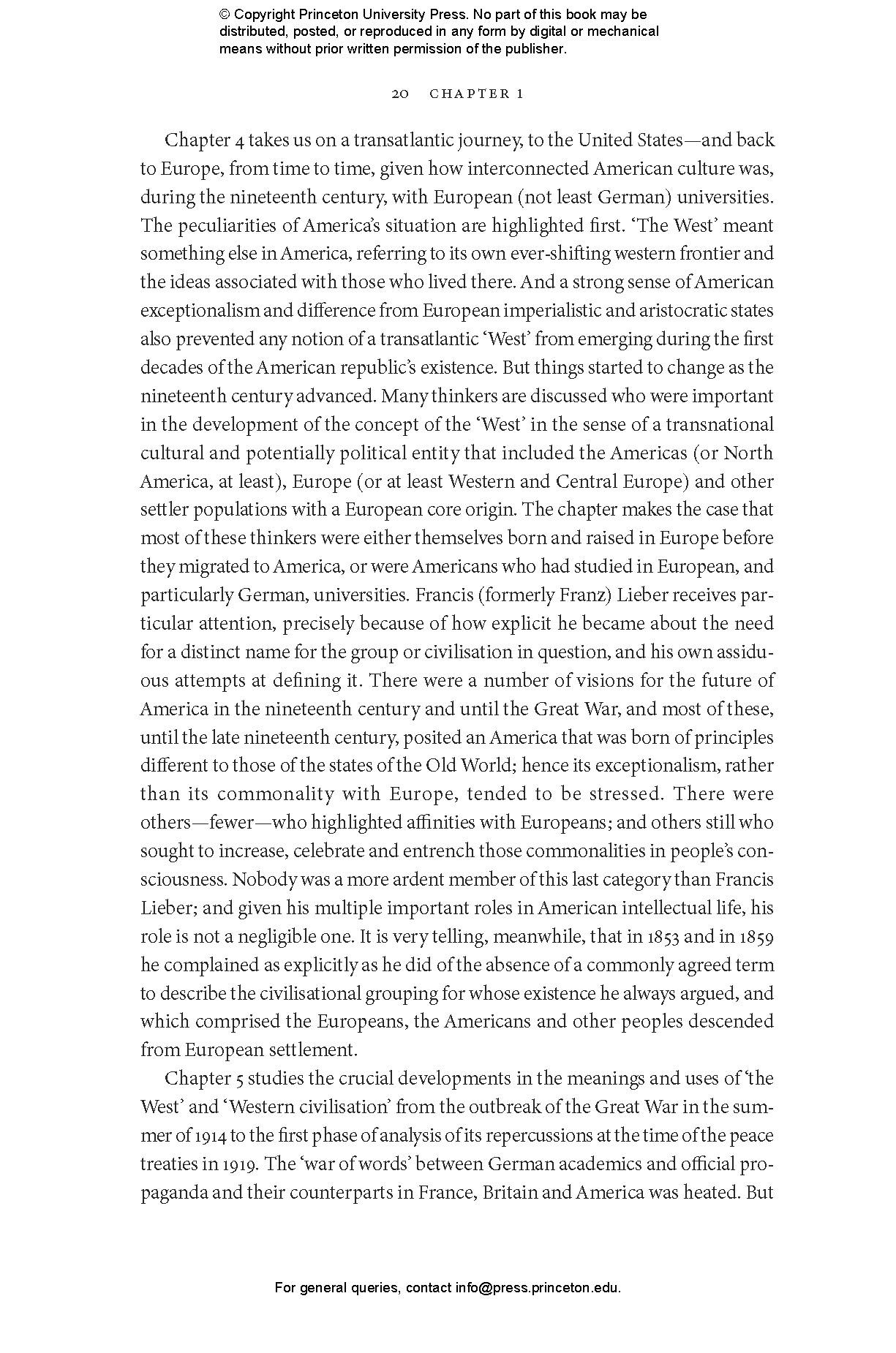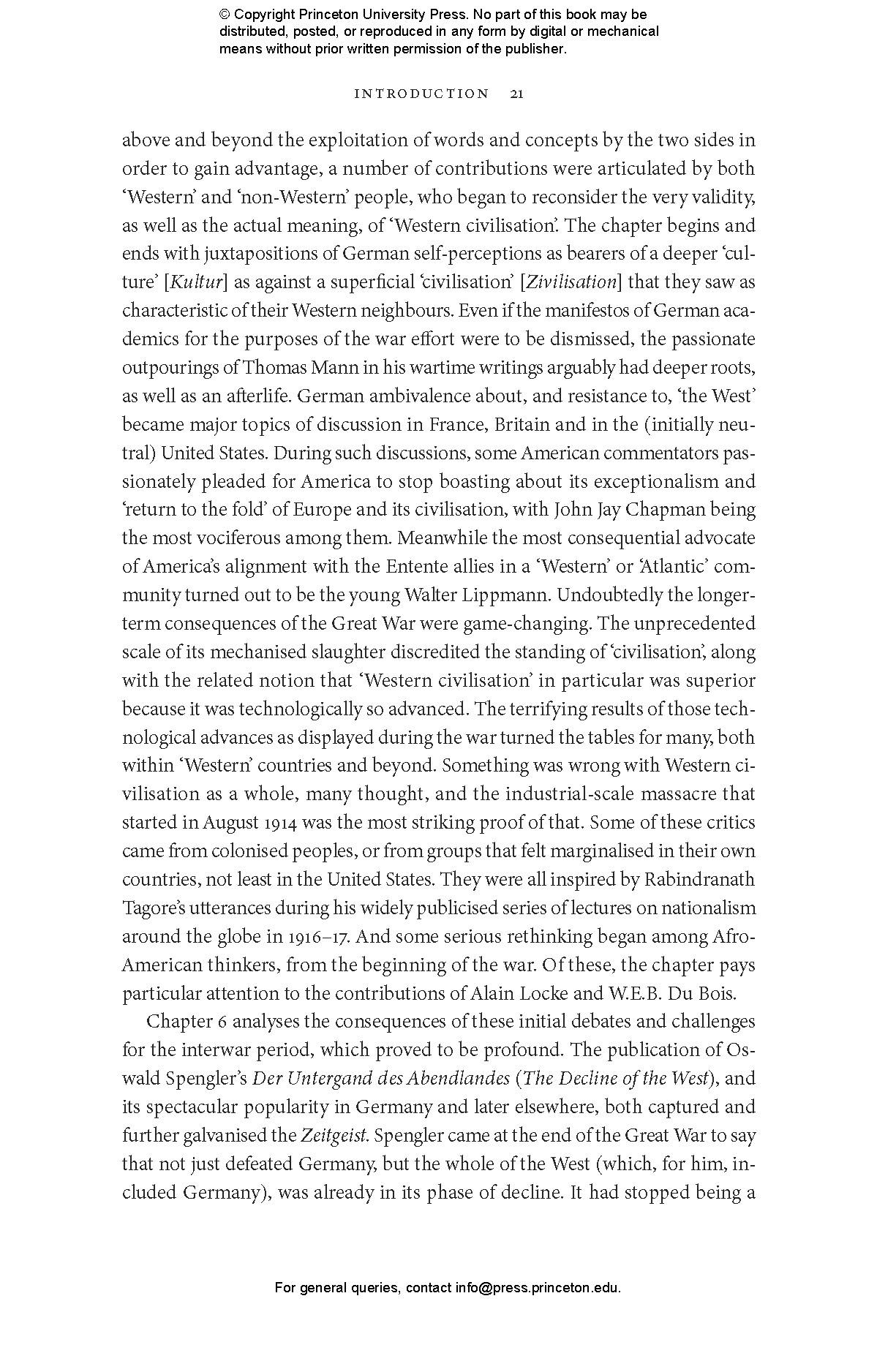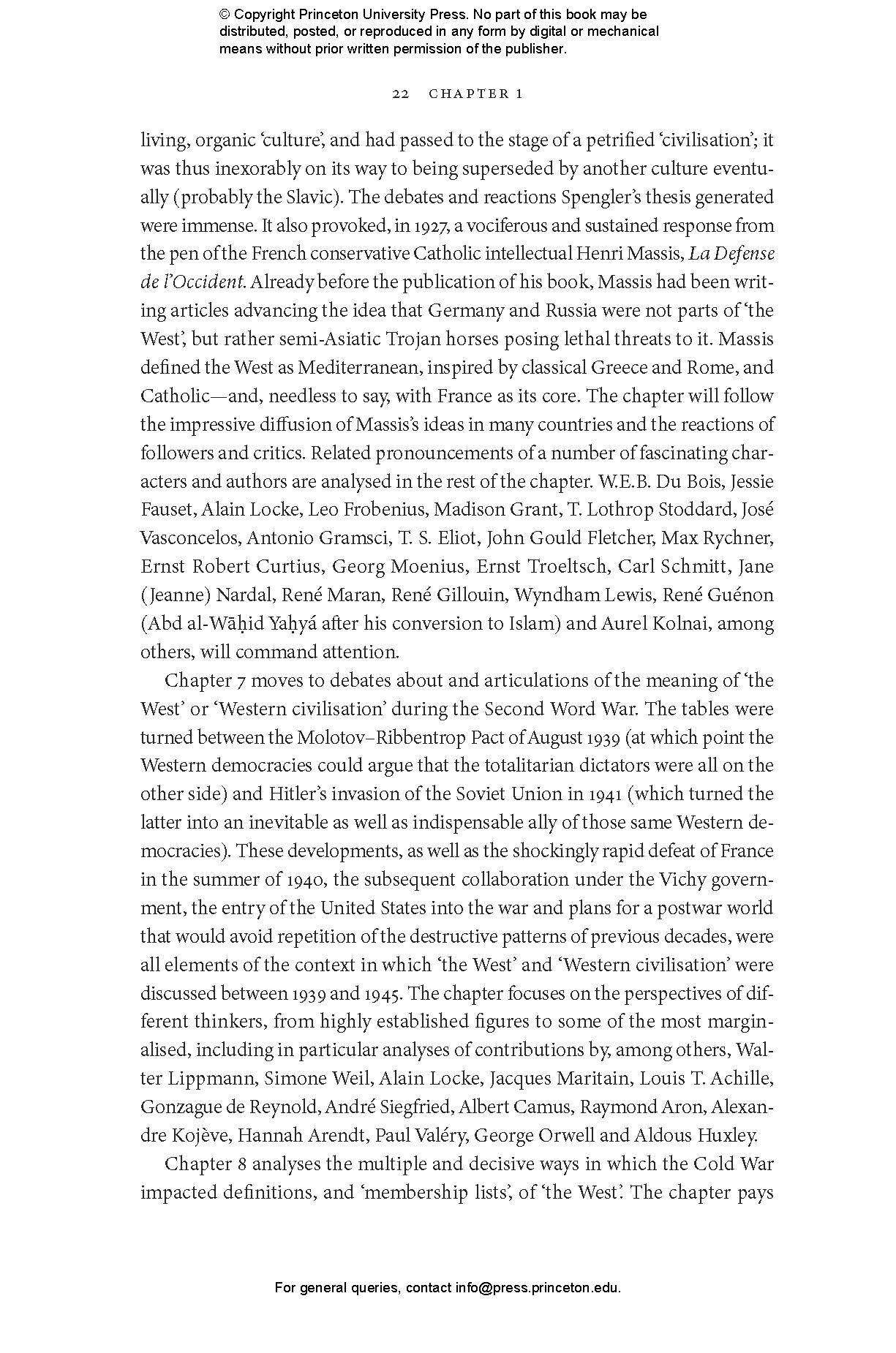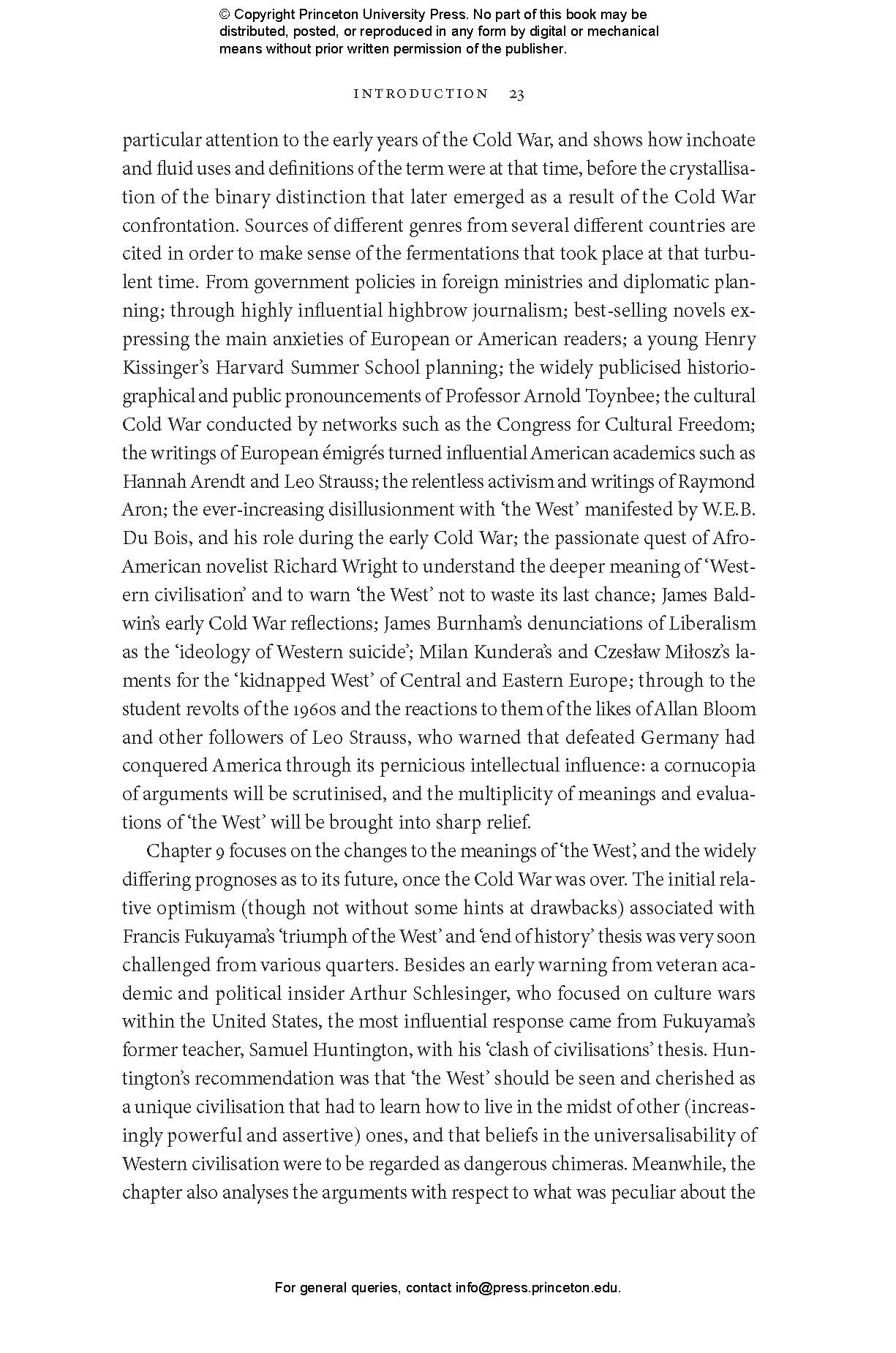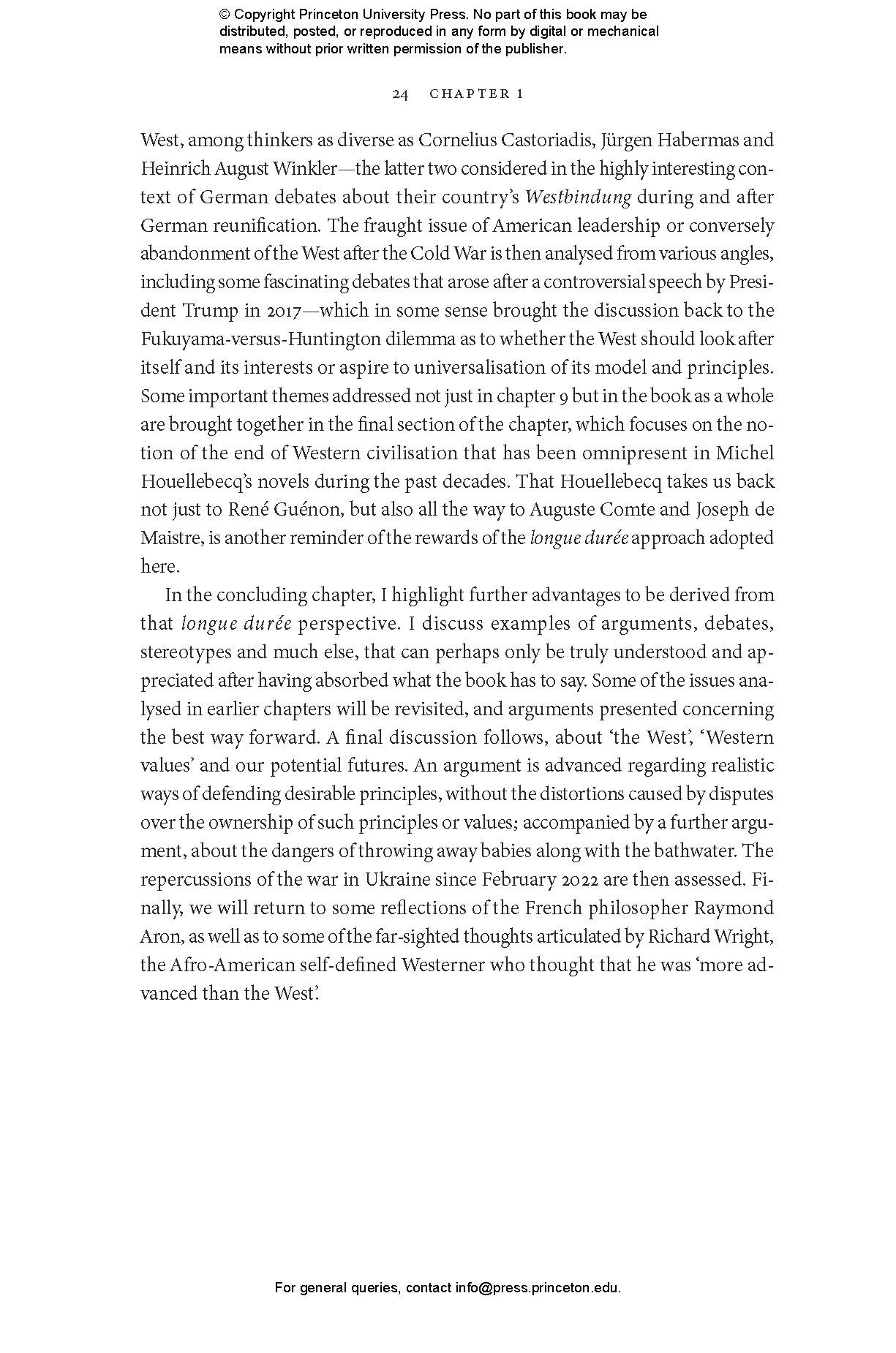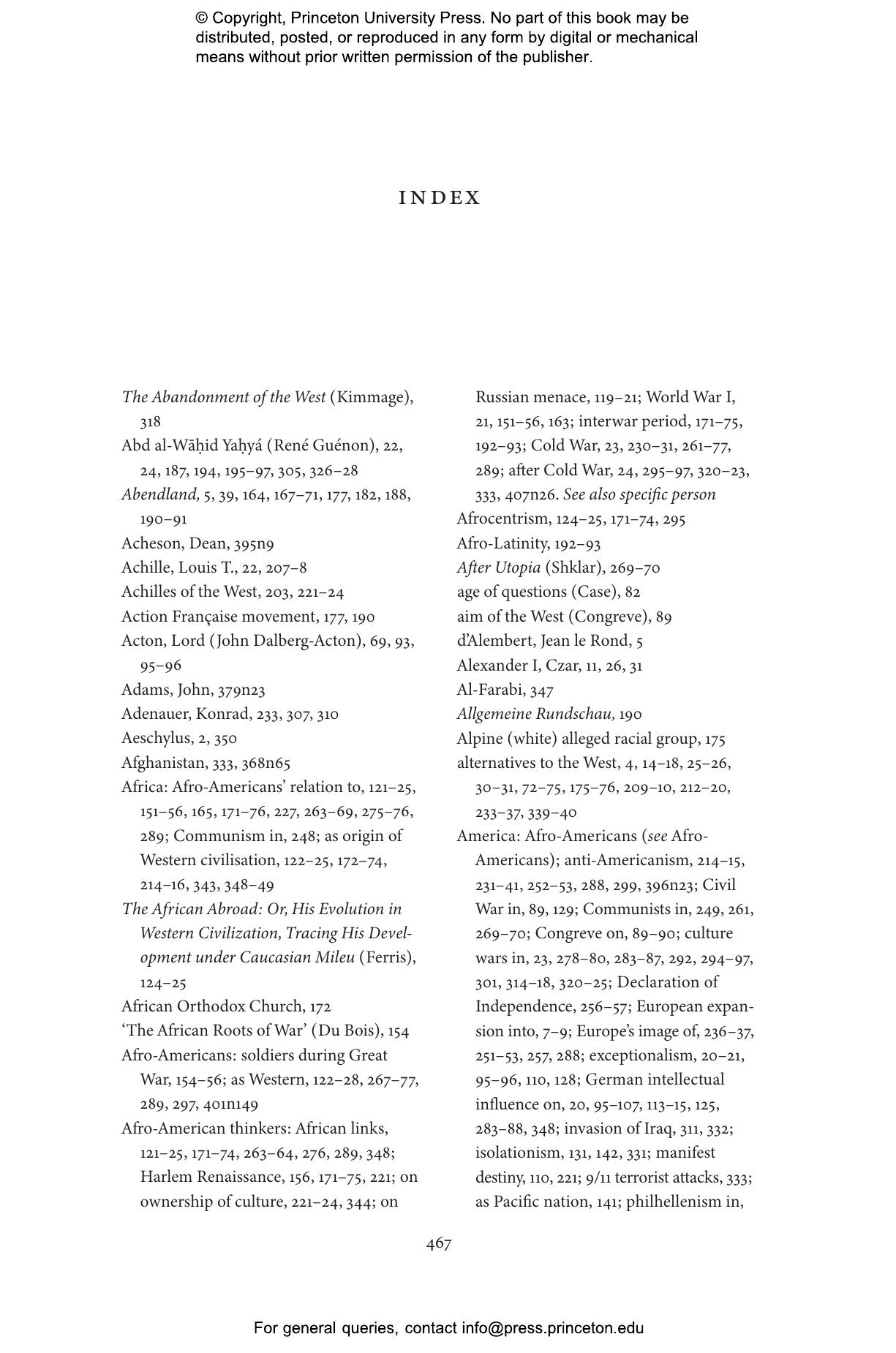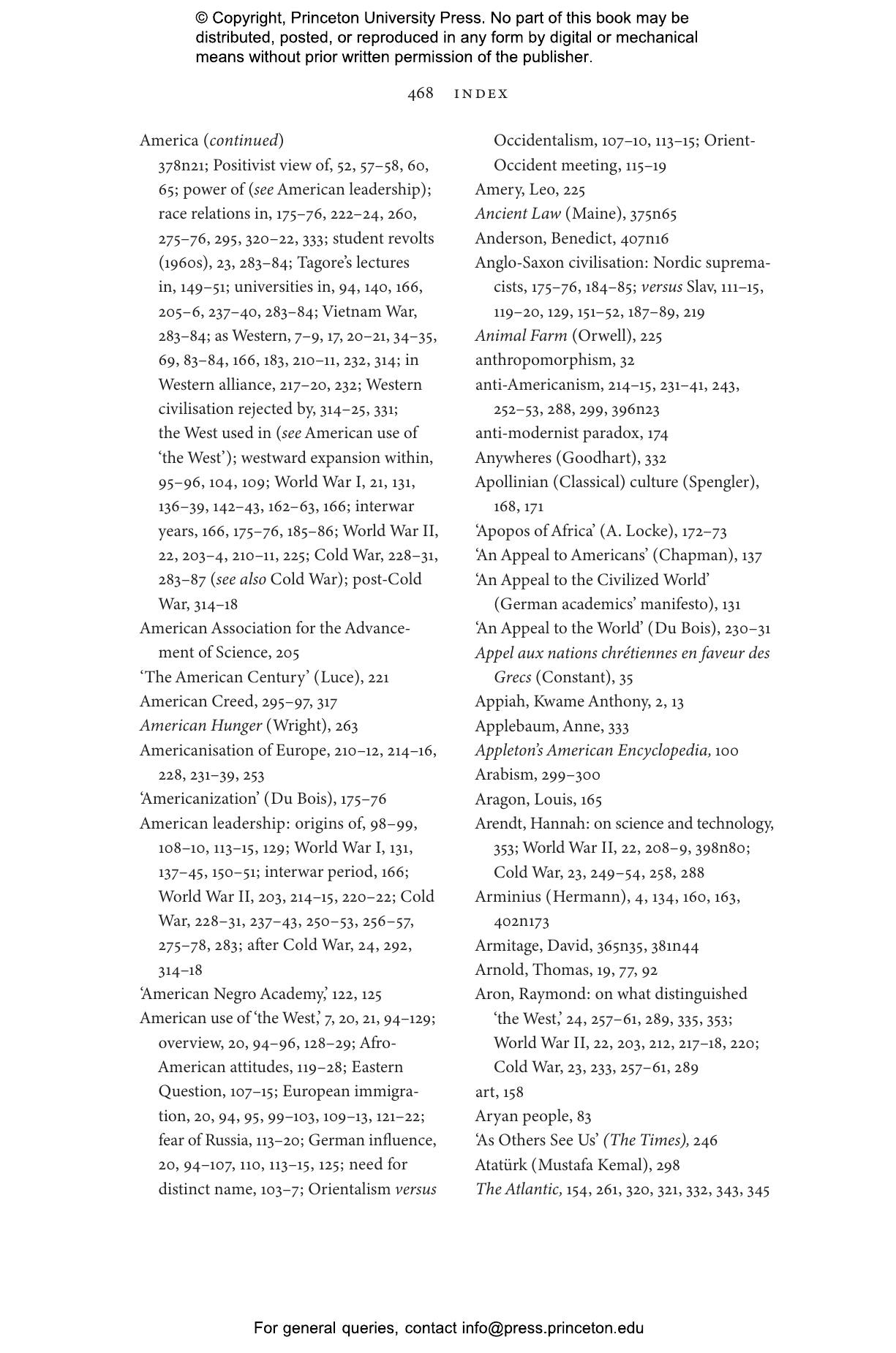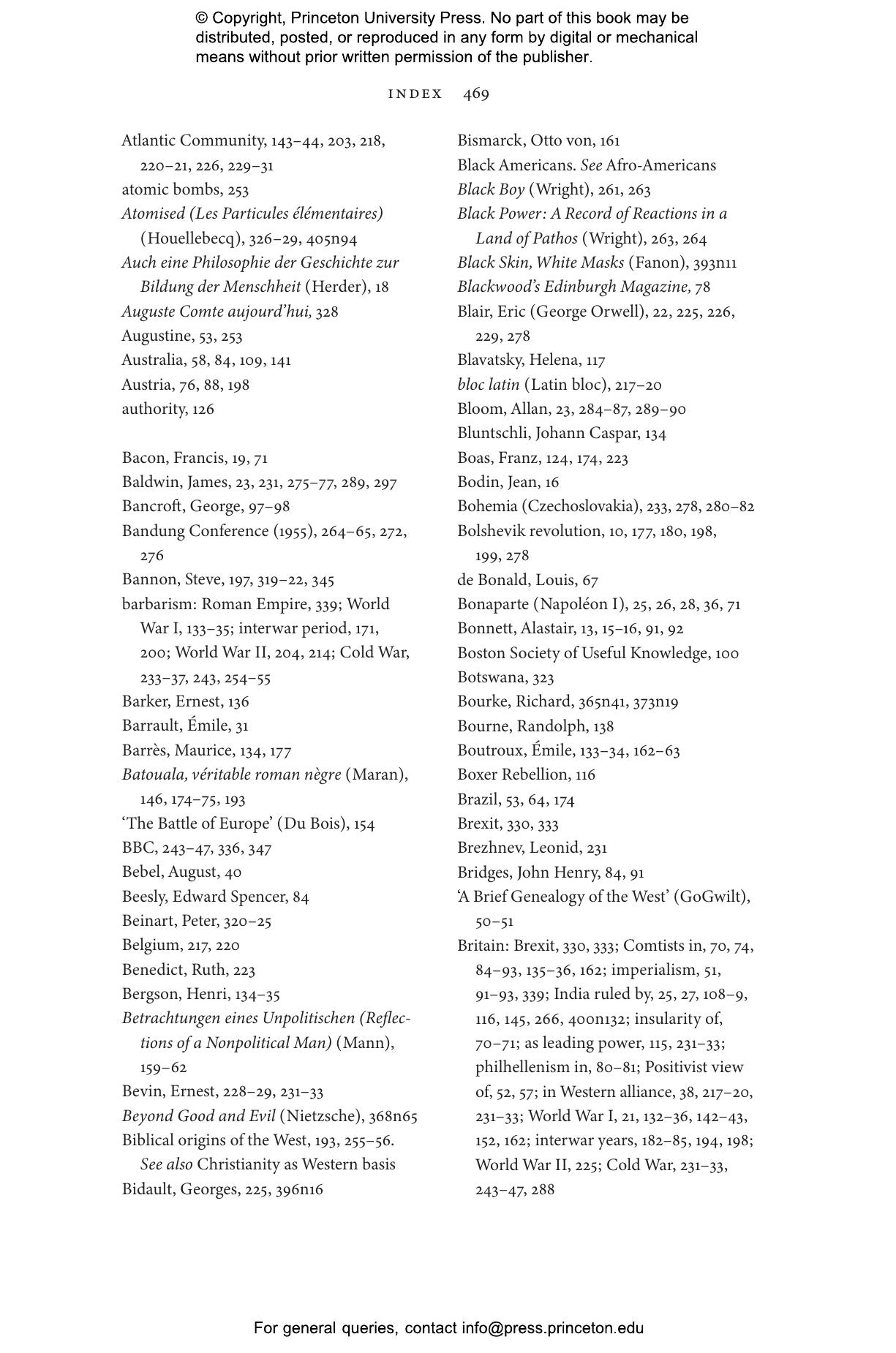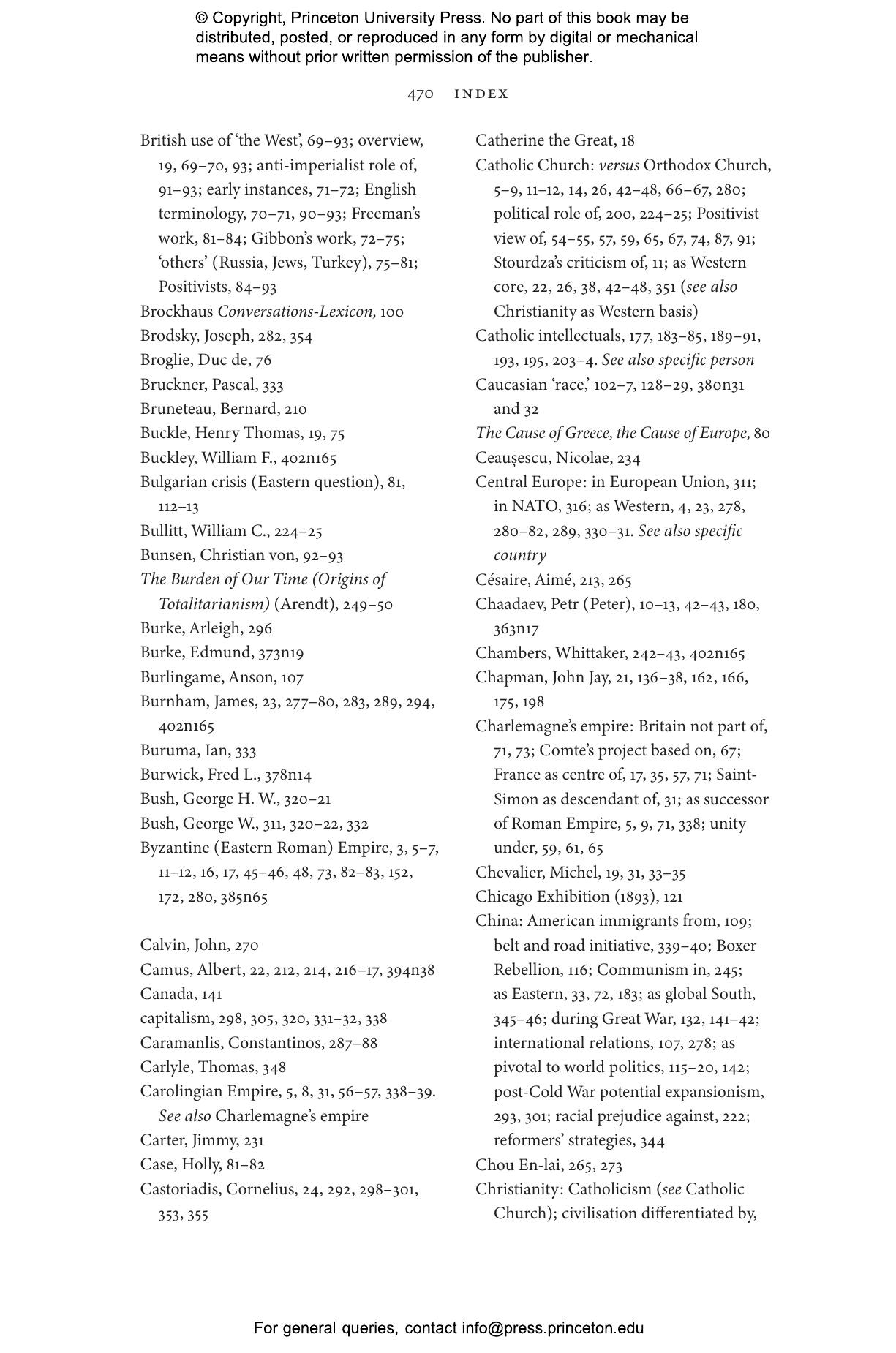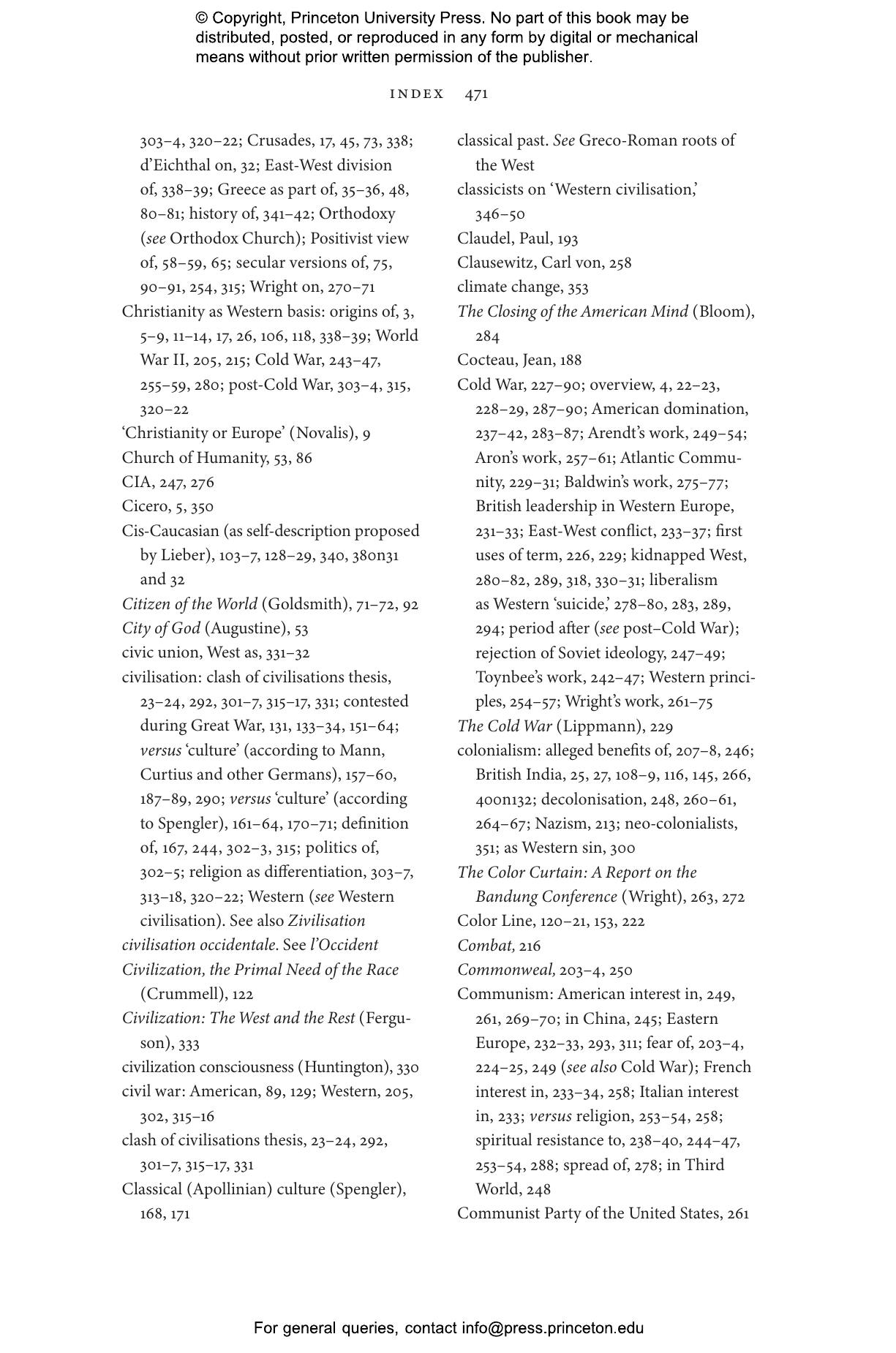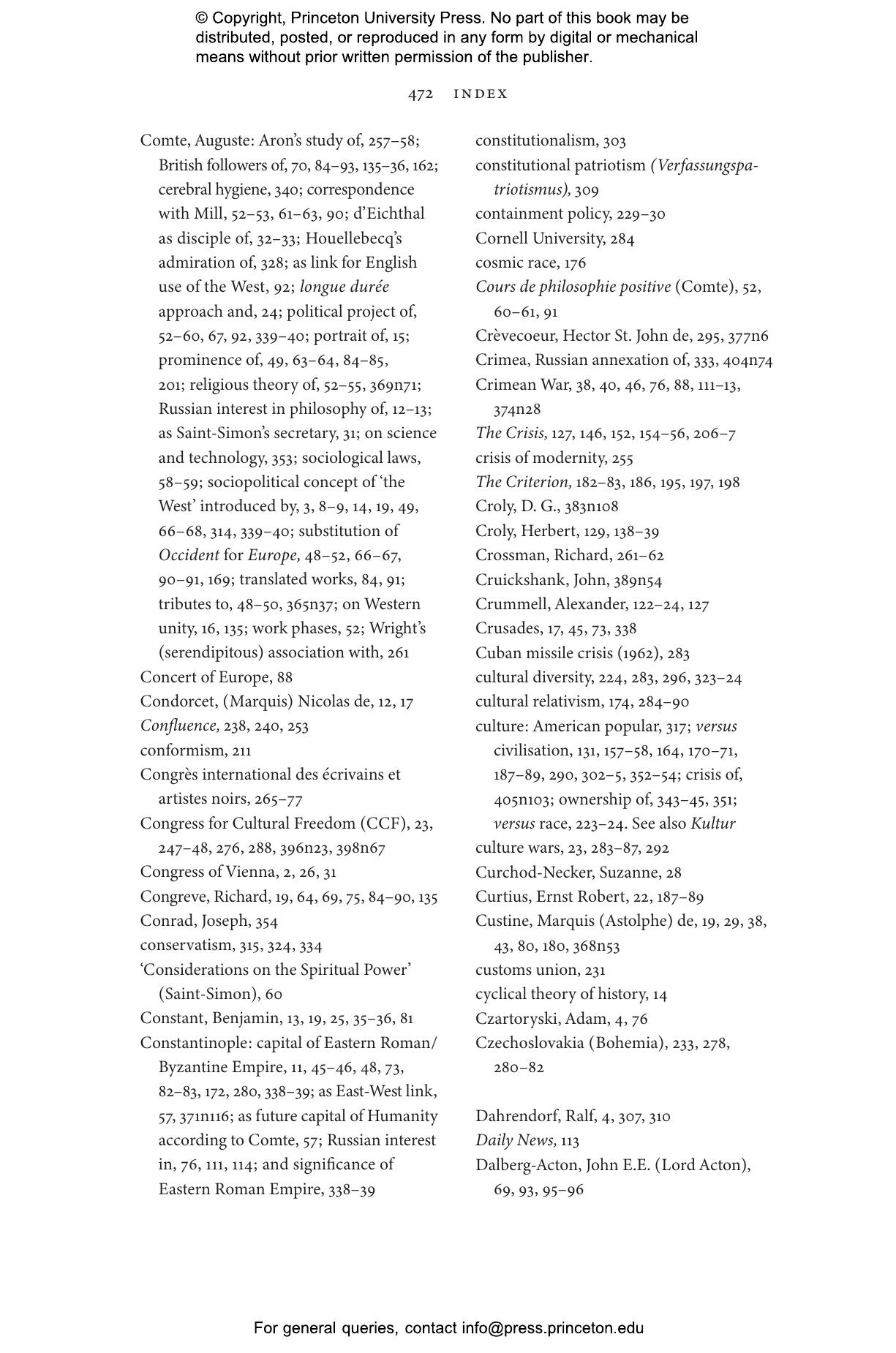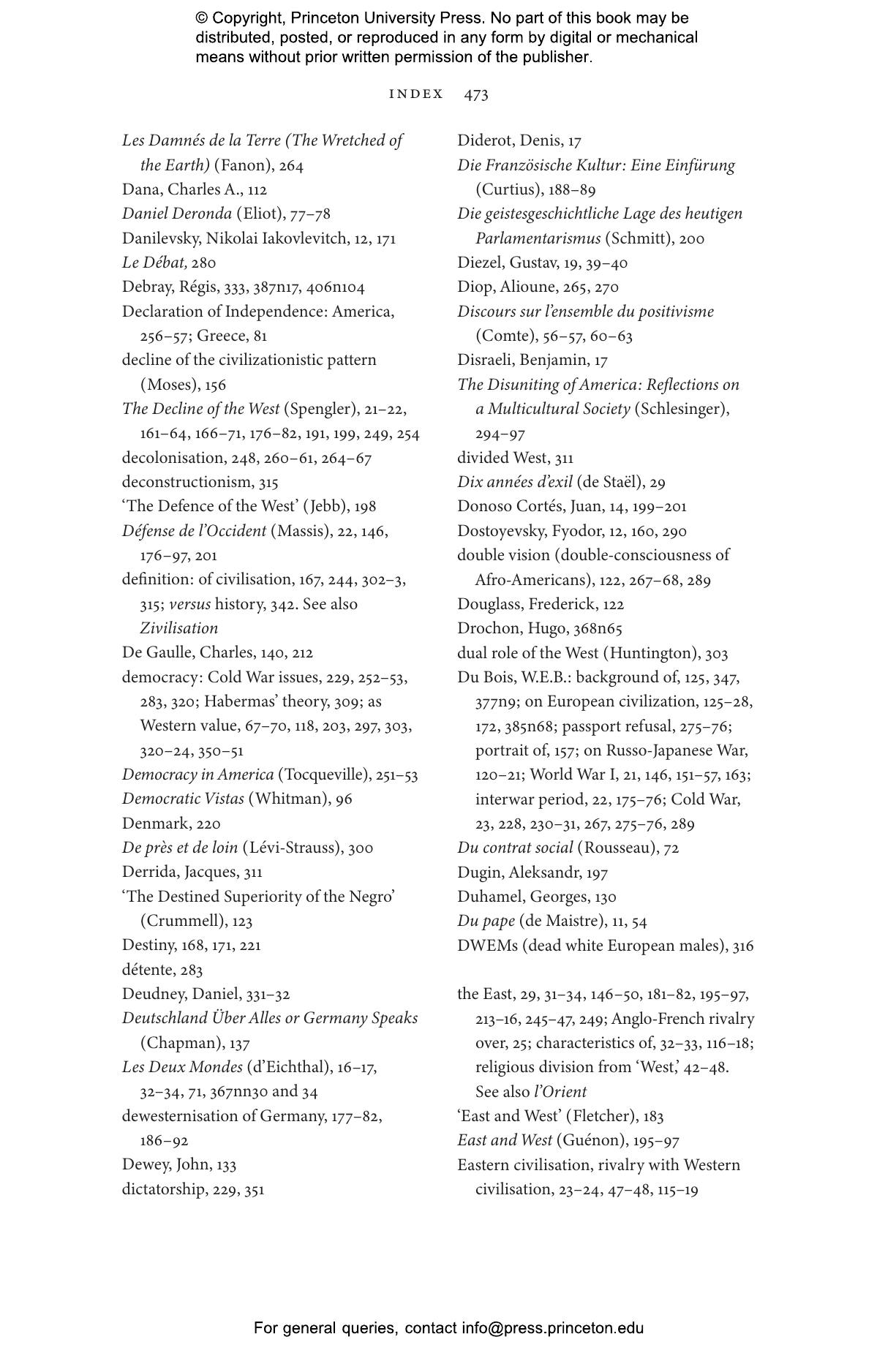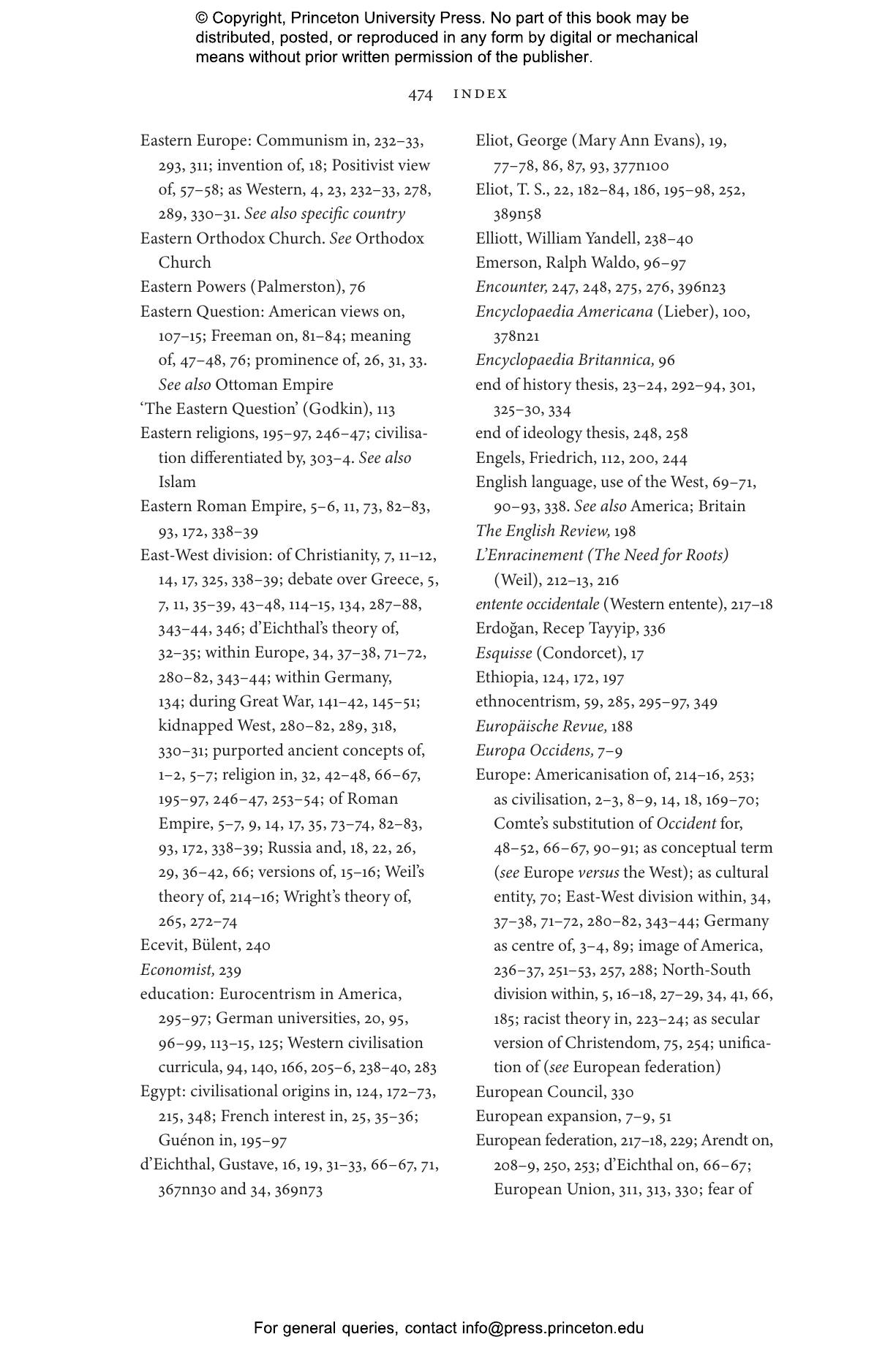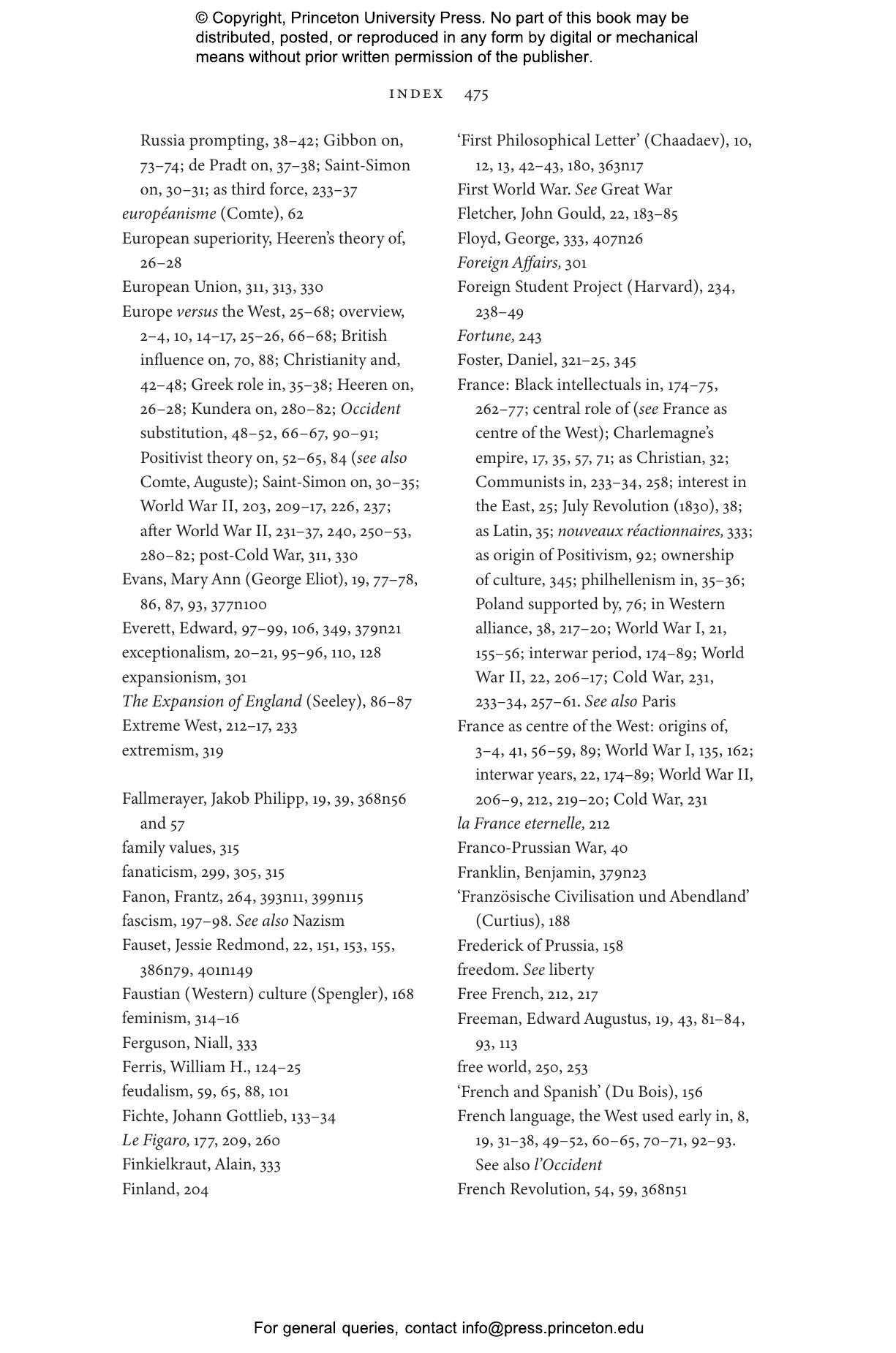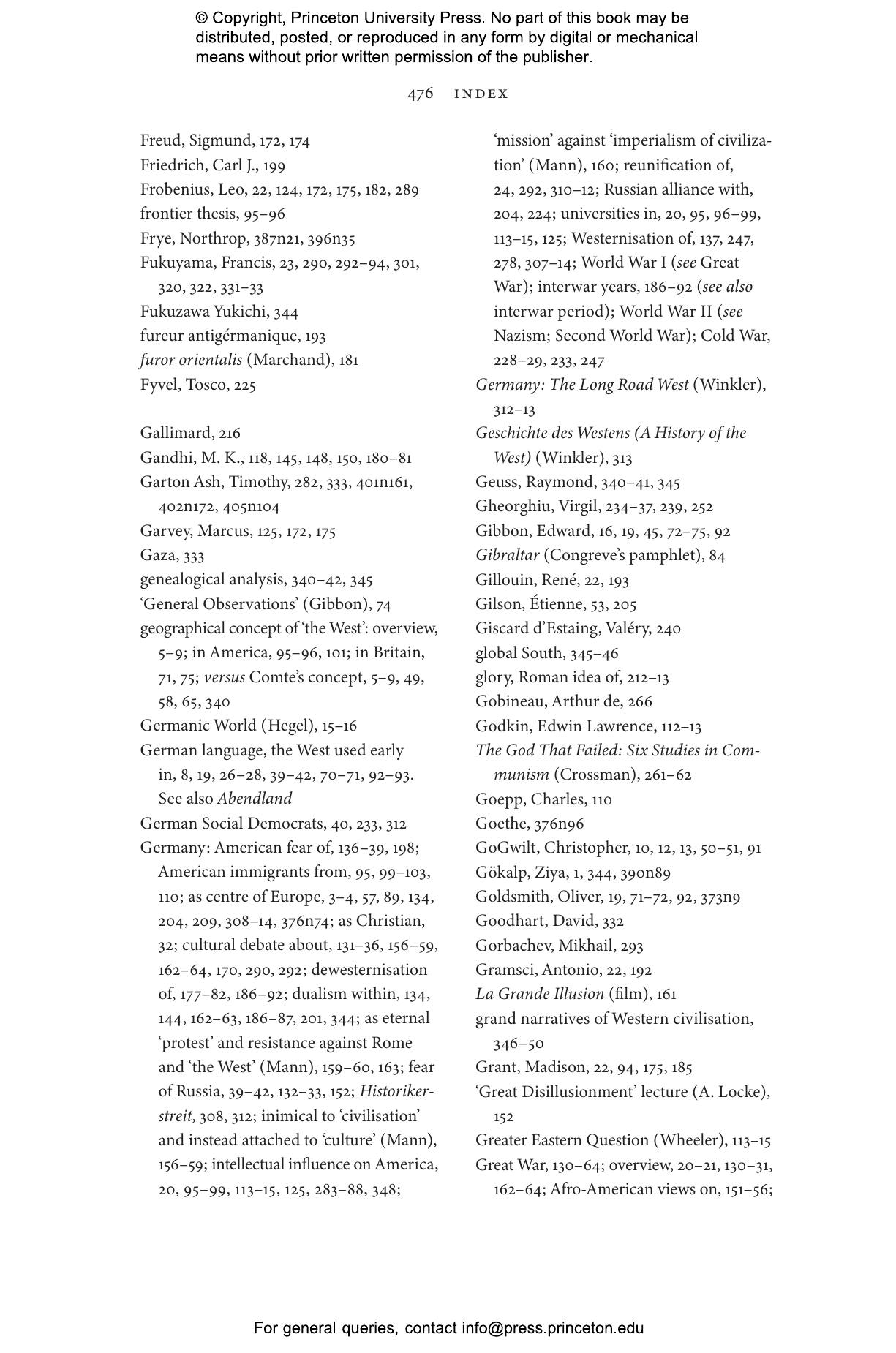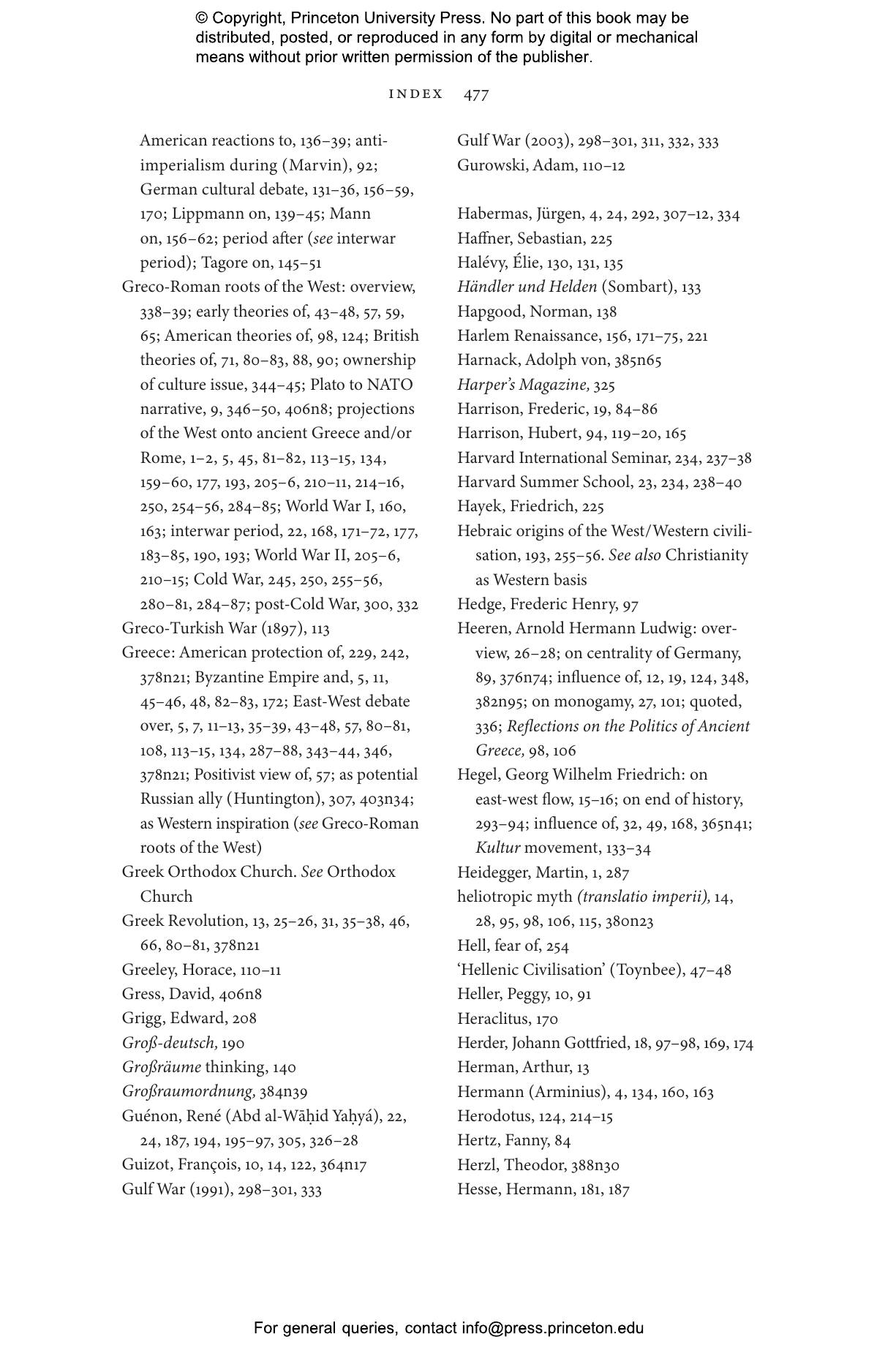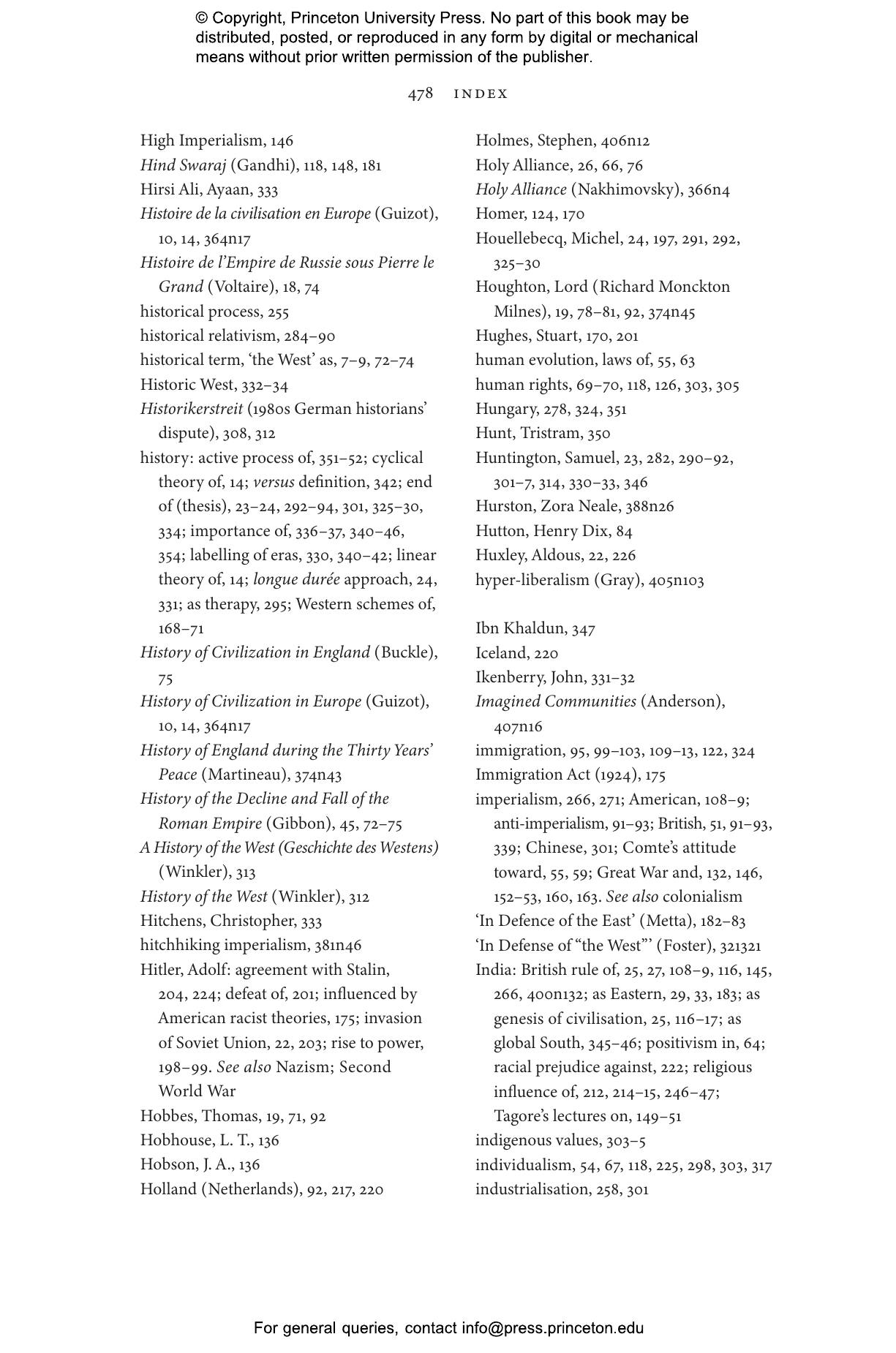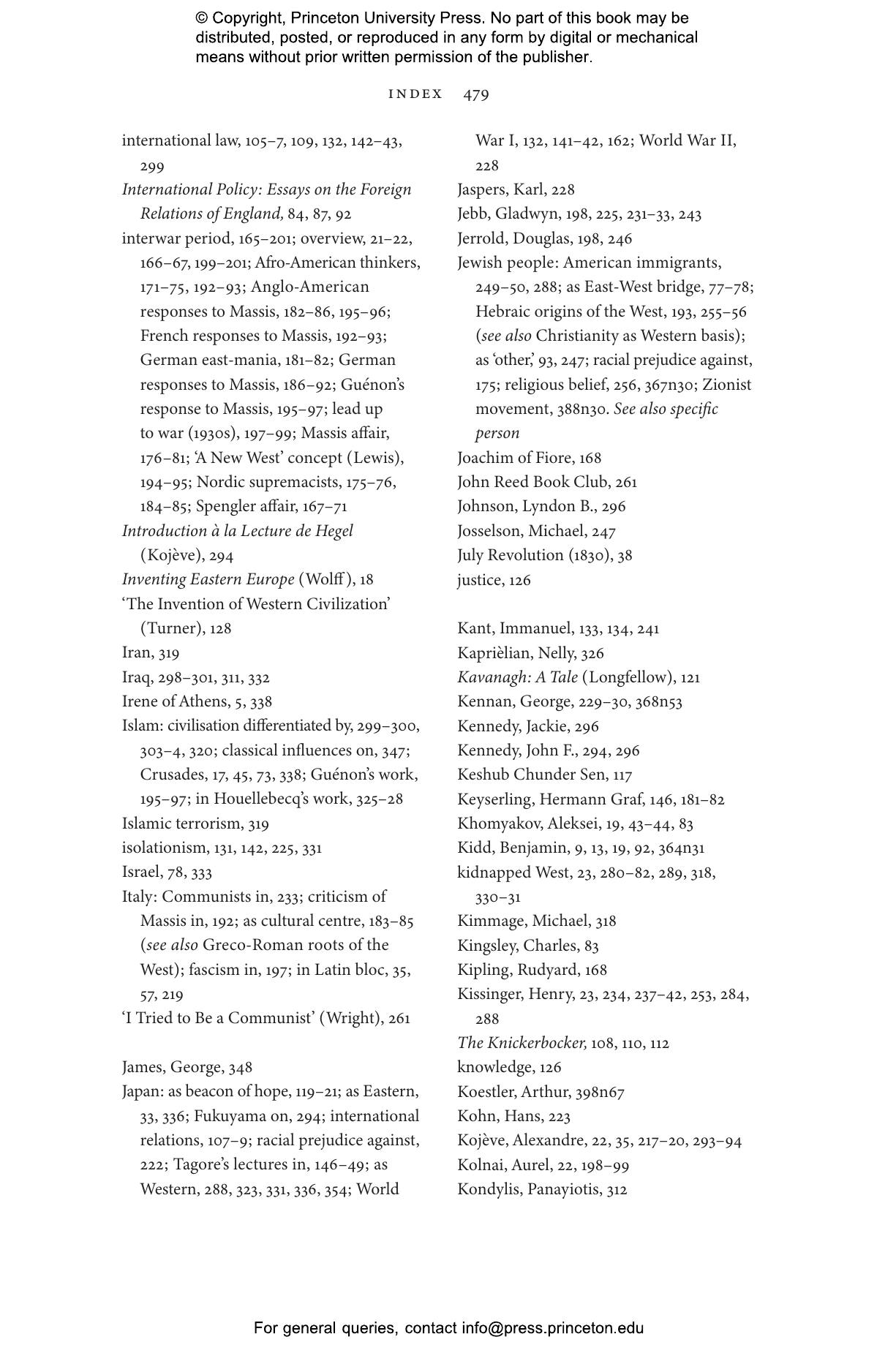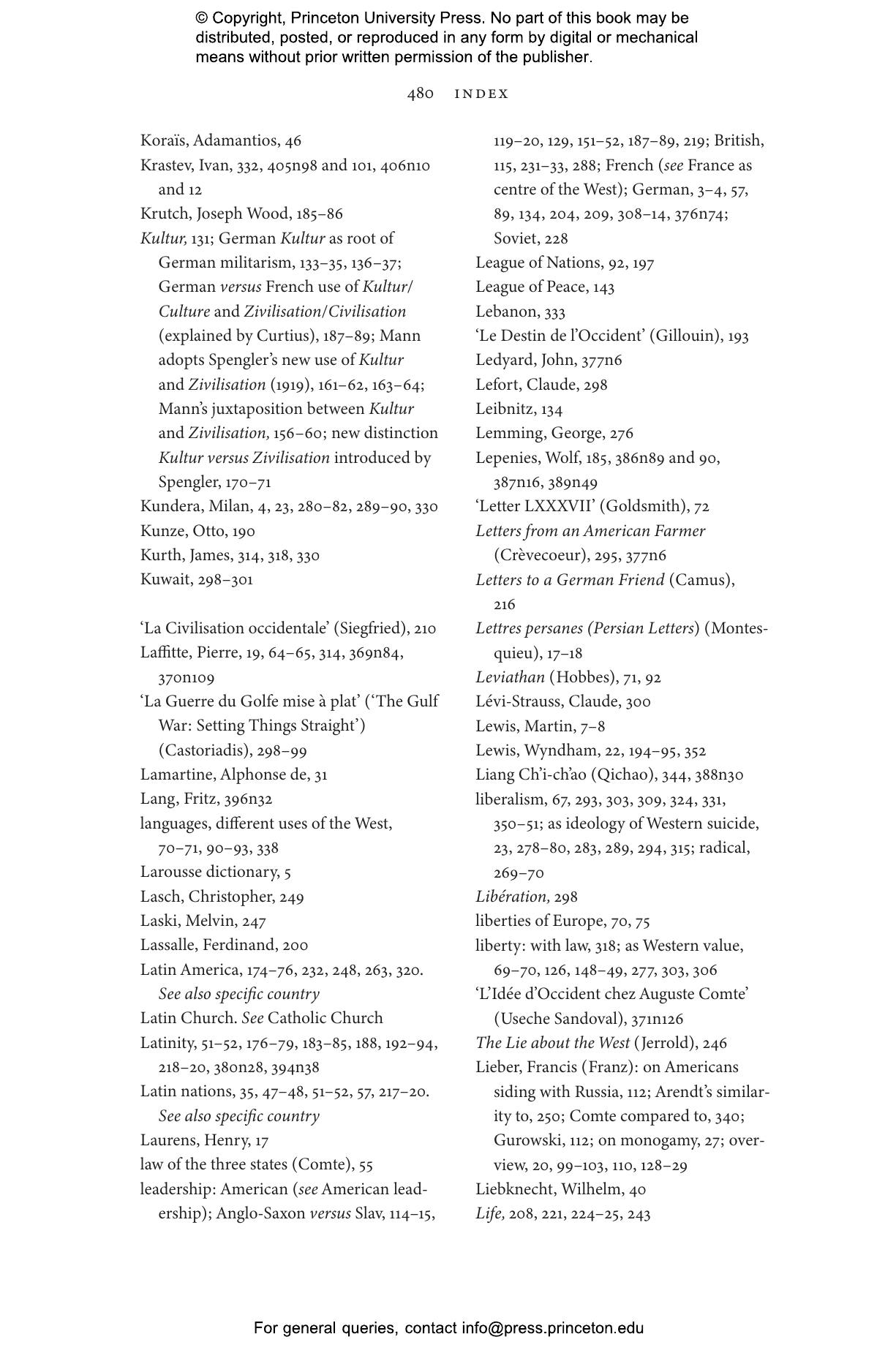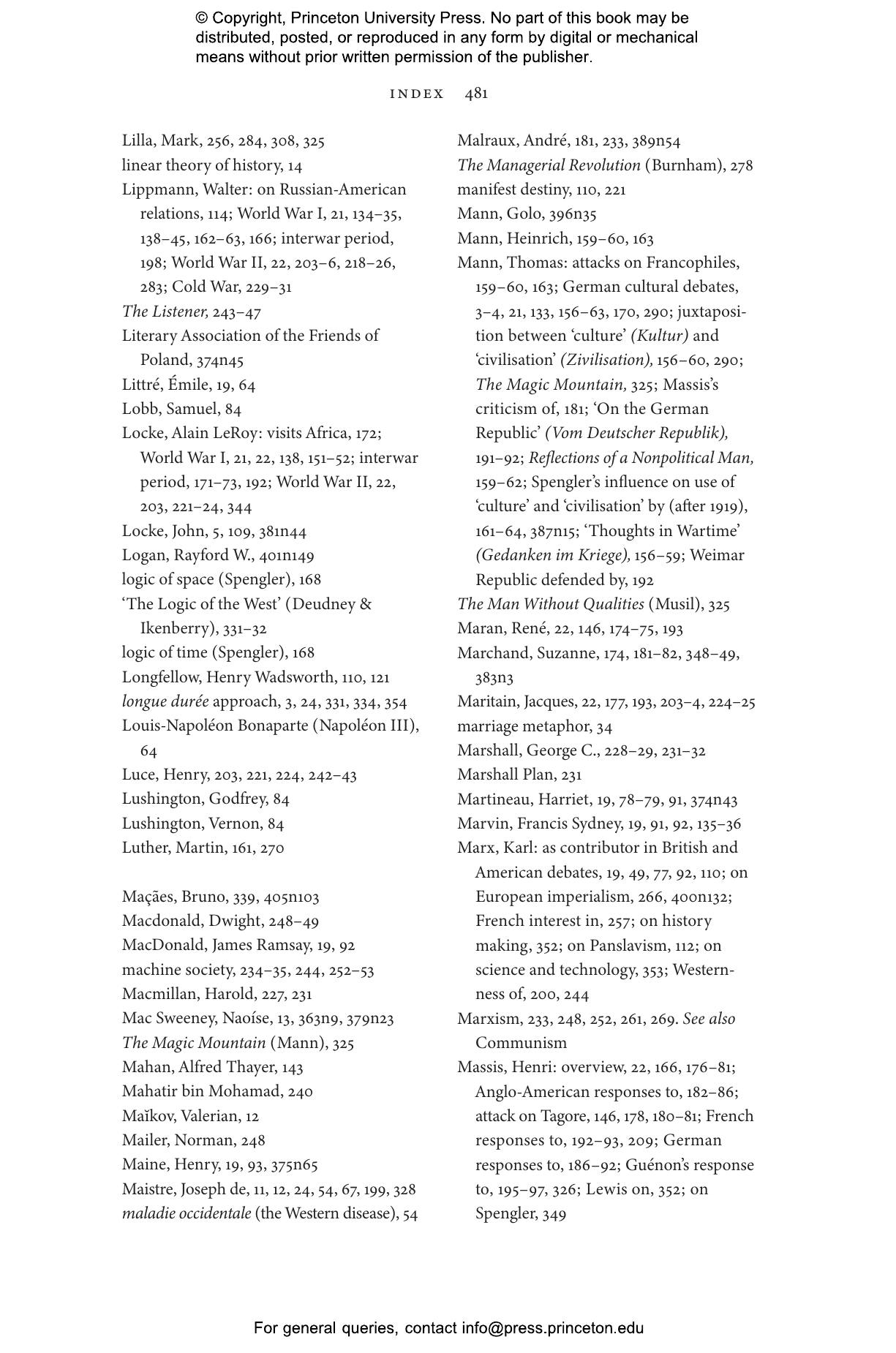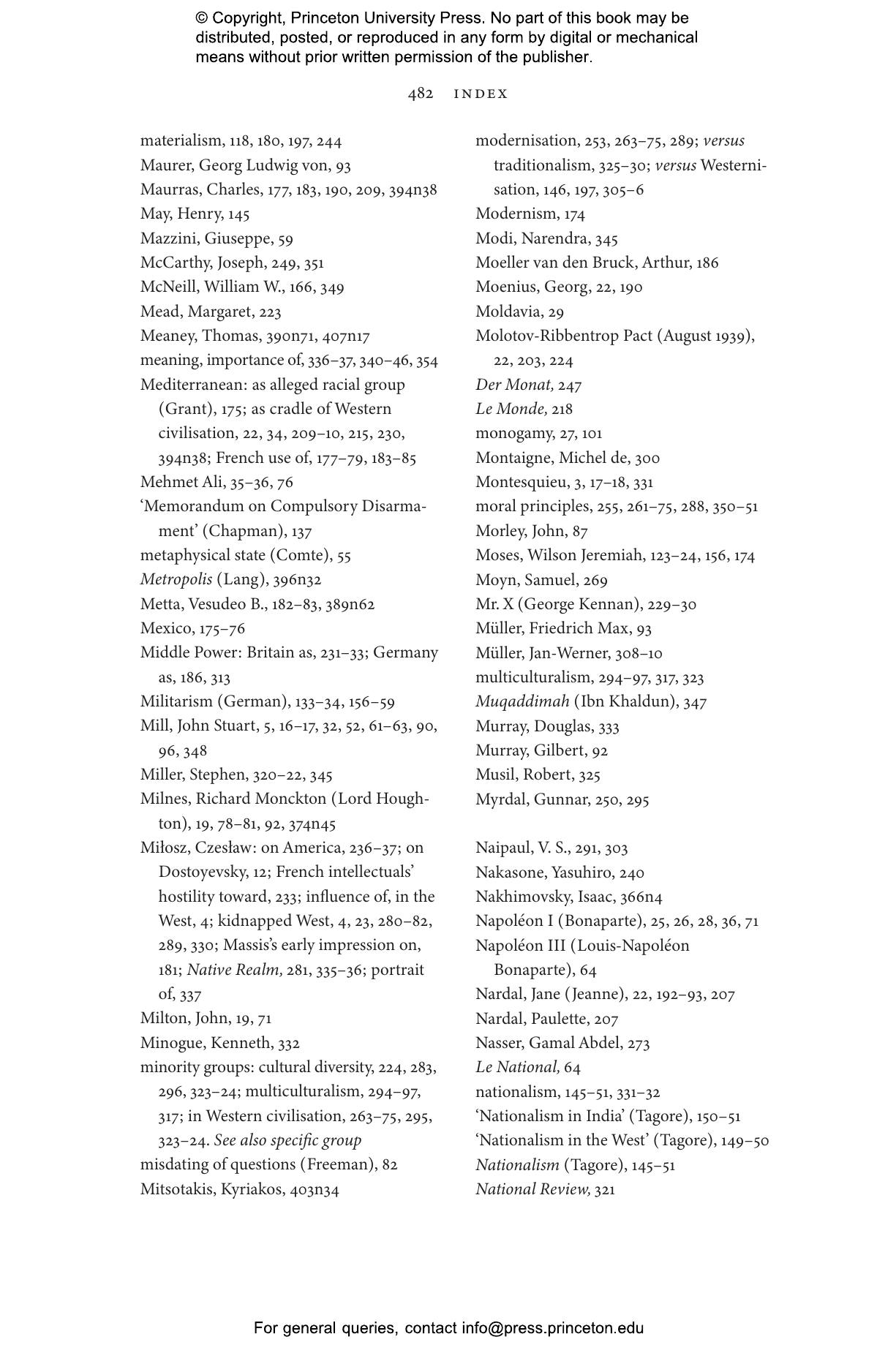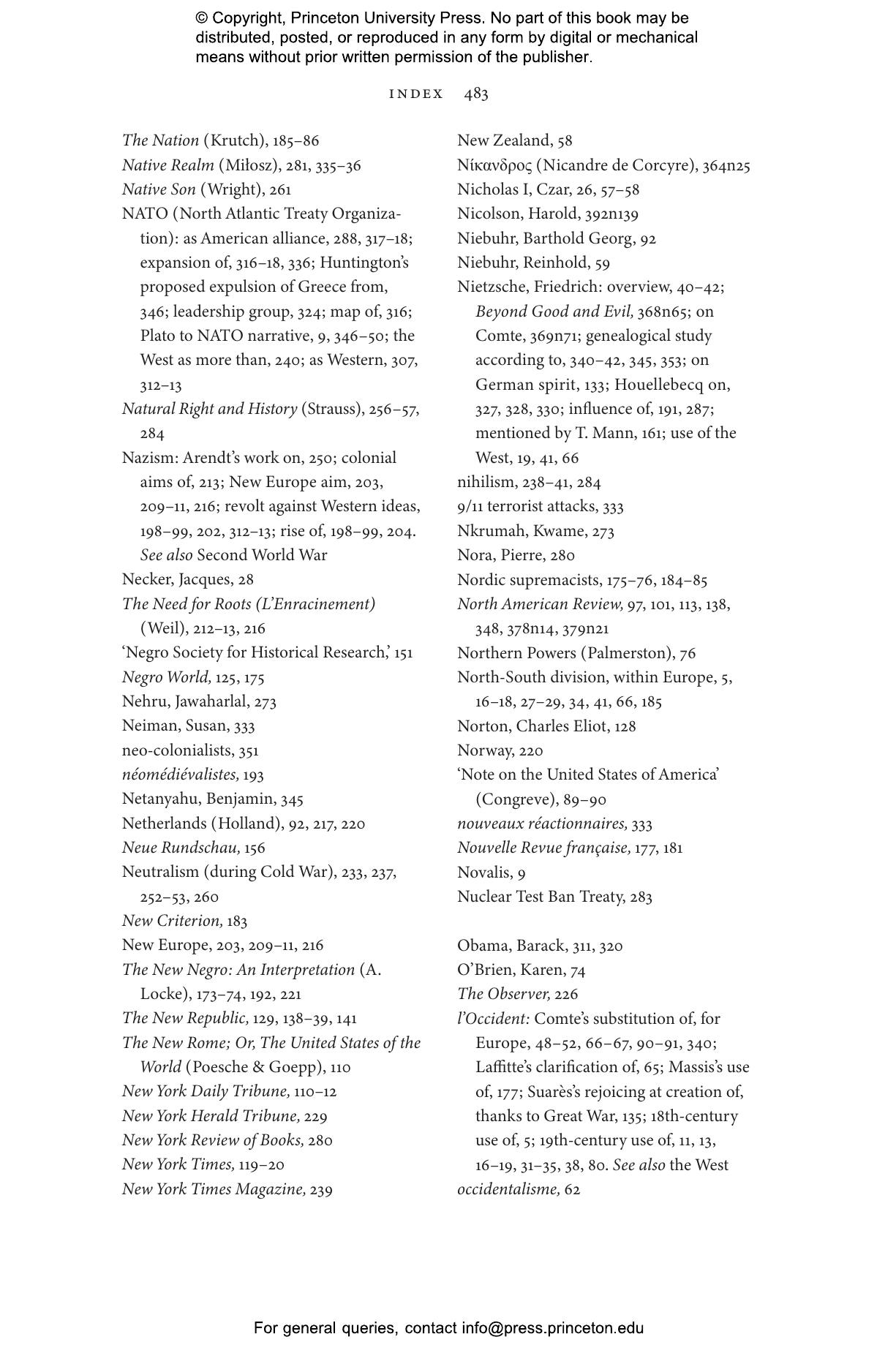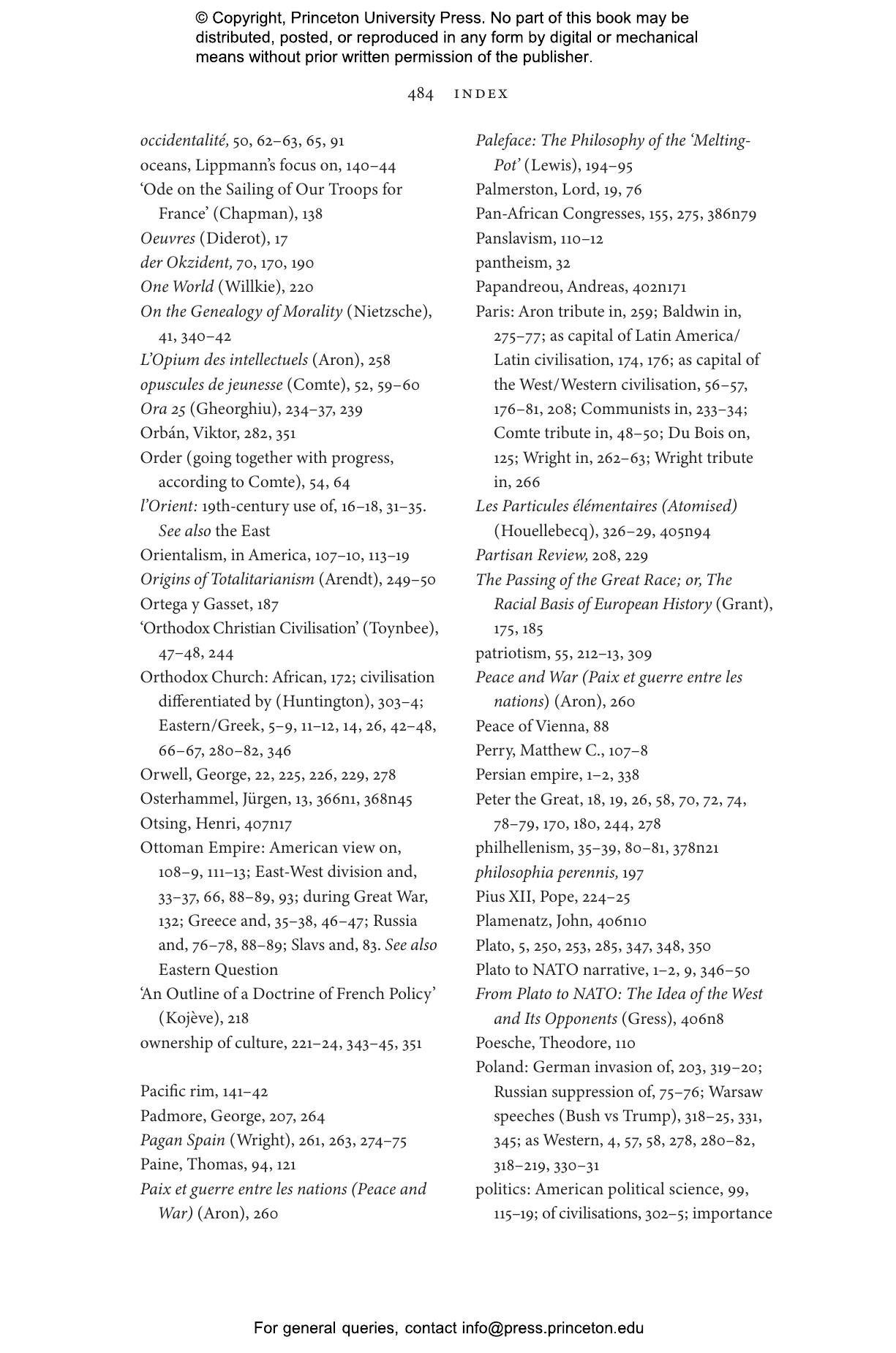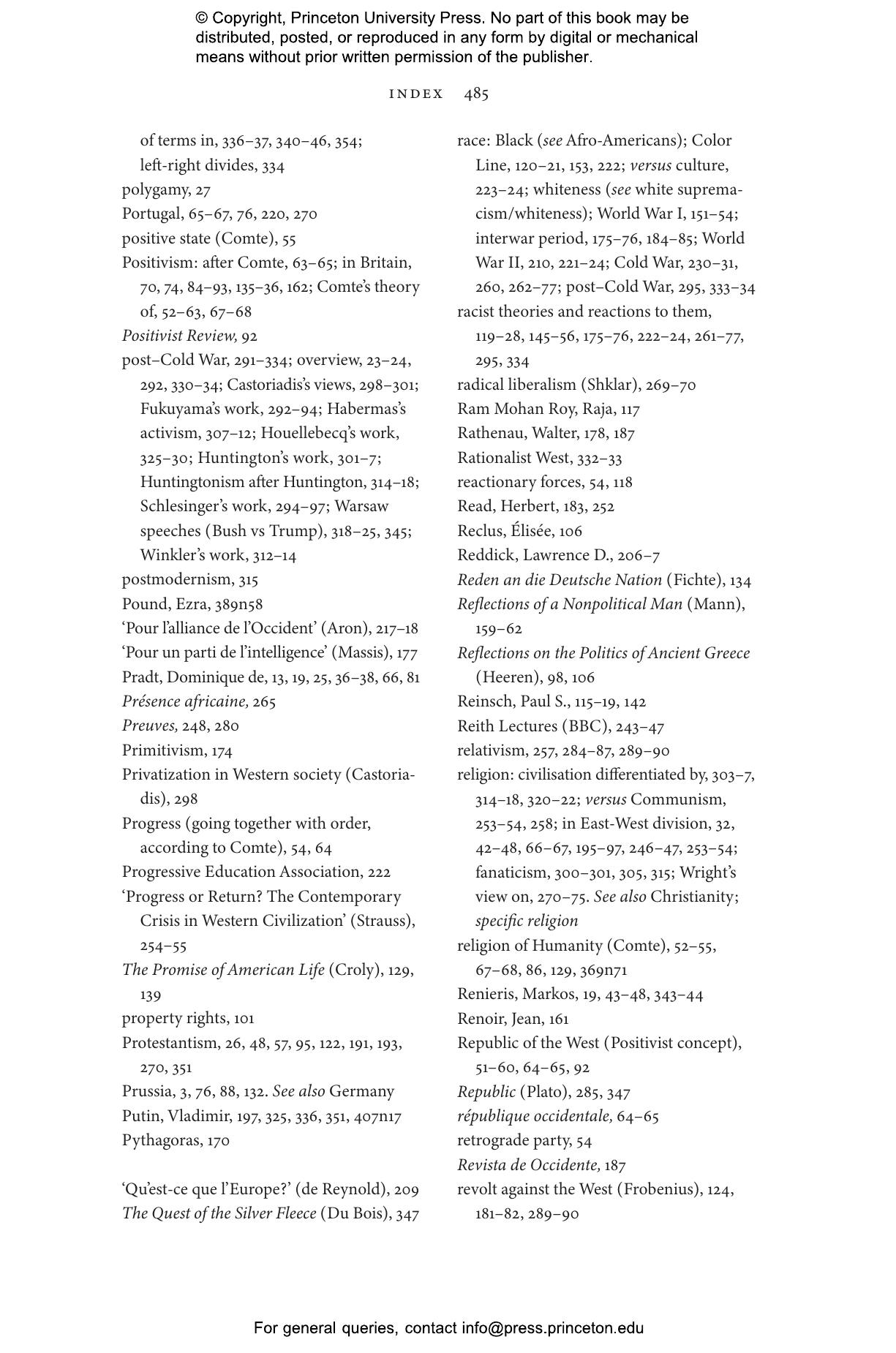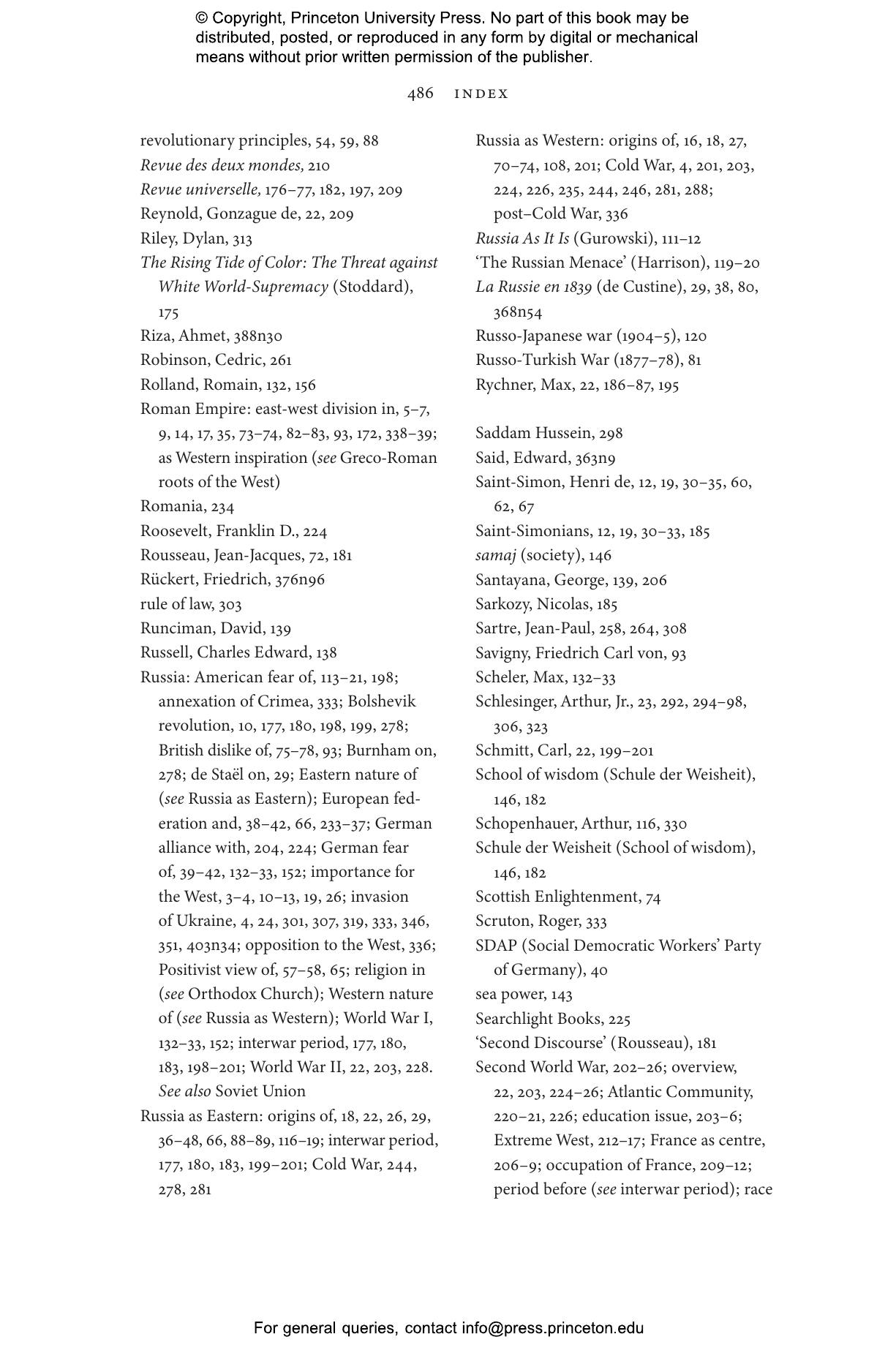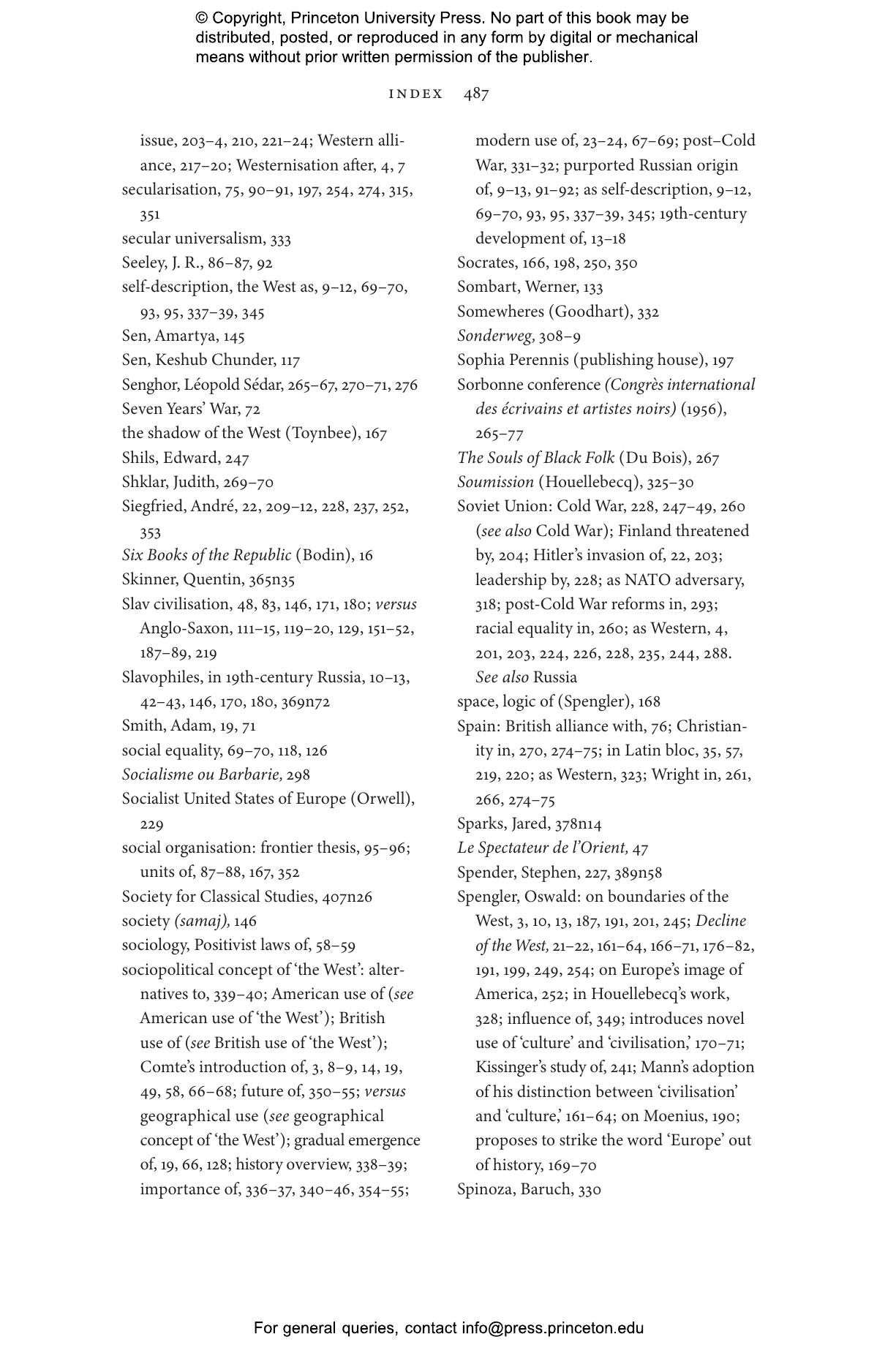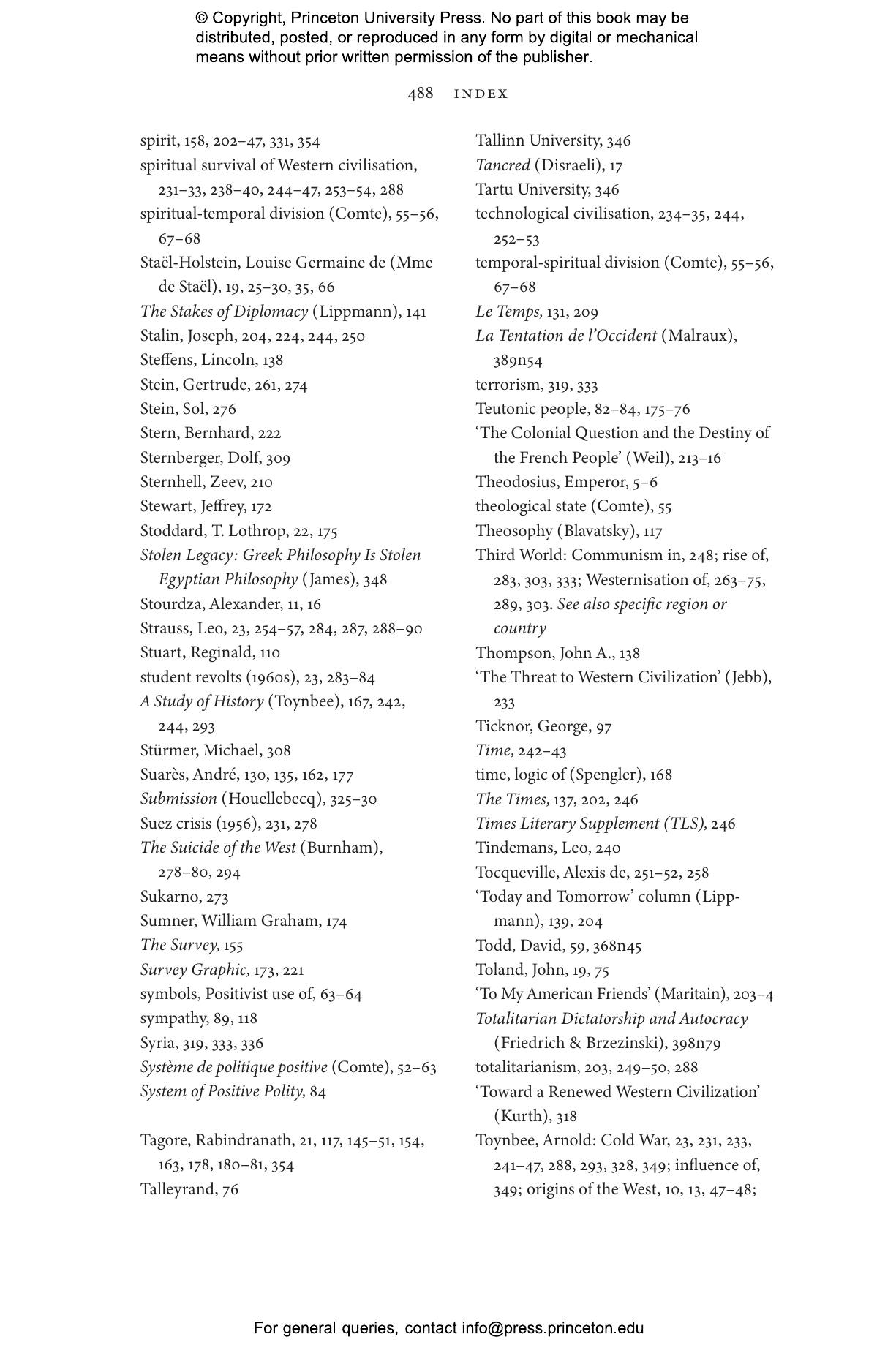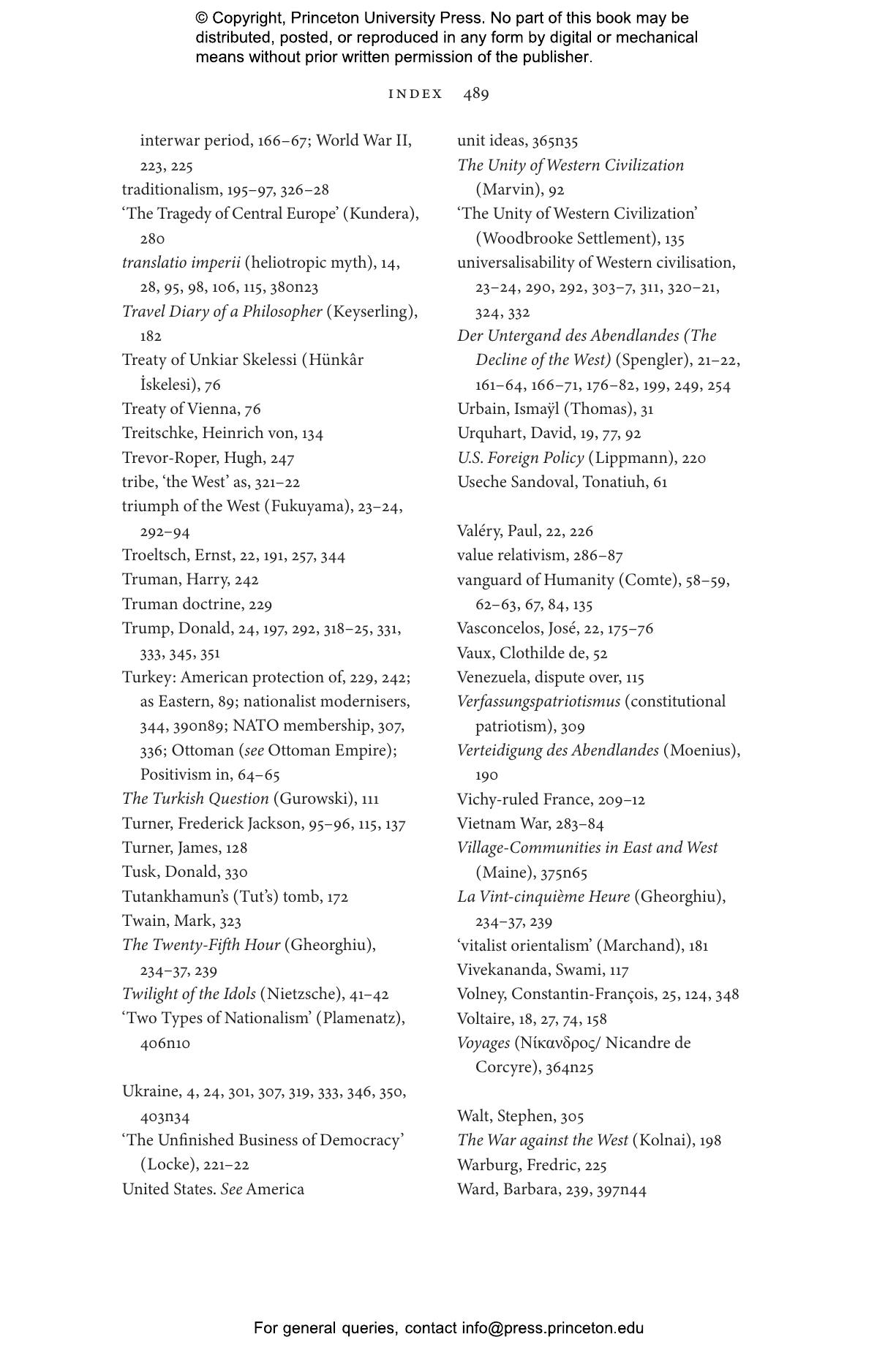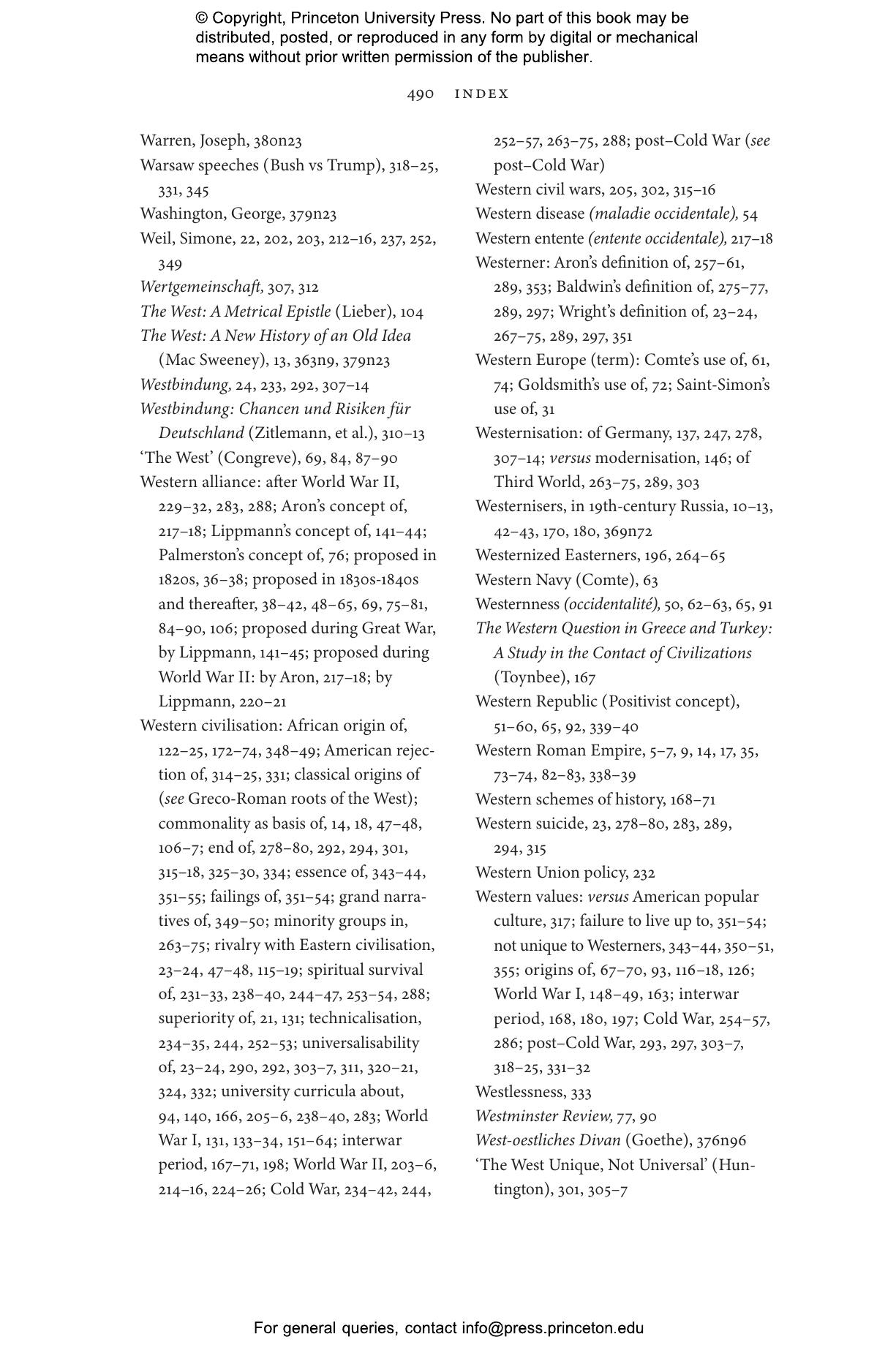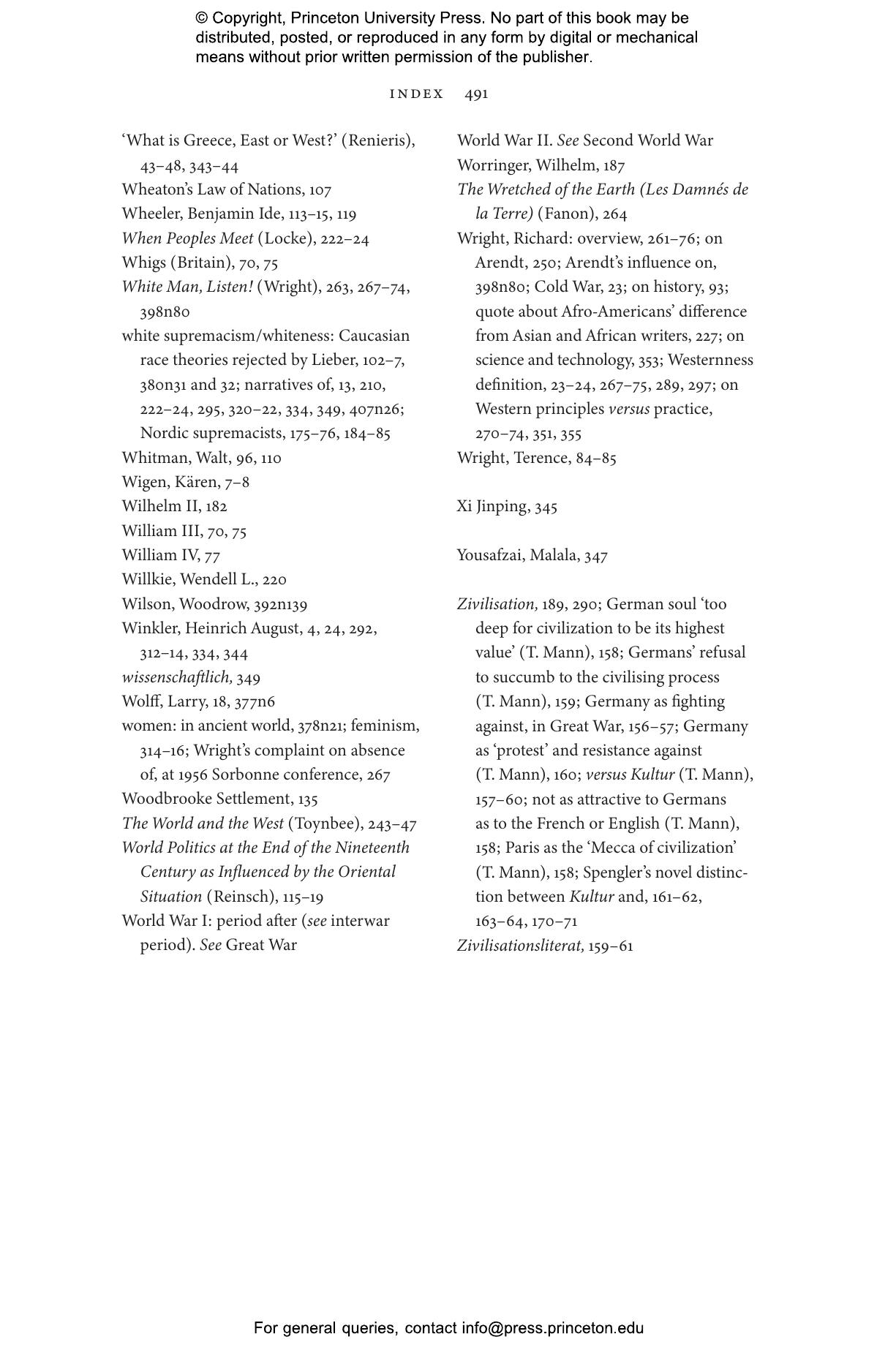How did âthe Westâ come to be used as a collective self-designation signaling political and cultural commonality? When did âWesternersâ begin to refer to themselves in this way? Was the idea handed down from the ancient Greeks, or coined by nineteenth-century imperialists? Neither, writes Georgios Varouxakis in The West, his ambitious and fascinating genealogy of the idea. âThe Westâ was not used by Plato, Cicero, Locke, Mill, or other canonized figures of what we today call the Western tradition. It was not first wielded by empire-builders. It gradually emerged as of the 1820s and was then, Varouxakis shows, decisively promoted in the 1840s by the French philosopher Auguste Comte (whose political project, incidentally, was passionately anti-imperialist). The need for the use of the term âthe Westâ emerged to avoid the confusing or unwanted consequences of the use of âEurope.â The two overlapped, but were not identical, with the West used to differentiate from certain âothersâ within Europe as well as to include the Americas.
After examining the origins, Varouxakis traces the many and often astonishingly surprising changes in the ways in which the West has been understood, and the different intentions and consequences related to a series of these contested definitions. While other theories of the West consider only particular aspects of the concept and its history (if only in order to take aim at its reputation), Varouxakisâs analysis offers a comprehensive account that reaches to the present day, exploring the multiplicity of current, and not least, prospective future meanings. He concludes with an examination of how, since 2022, definitions and membership of the West have been reworked to consider Ukraine, as the evolution and redefinitions continue.
Georgios Varouxakis is professor of the history of political thought in the School of History at Queen Mary University of London and Codirector of the Centre for the Study of the History of Political Thought. He is the author of Mill on Nationality, Victorian Political Thought on France and the French, and Liberty Abroad: J. S. Mill on International Relations and the coauthor of Contemporary France.
13955
"The West is a monumental achievement of scholarship. Its chief contribution is its decentering of imperial and racial paradigms, which have become politicized and turned into stale orthodoxies that have led to distortions in historical understanding."âMax Skjönsberg, Law & Liberty
“Georgios Varouxakis’s rich tapestry of a book draws on a vast array of thinkers—including Greeks, Russians and African Americans—to show that even since the 1820s, the concept of ‘the West’ has never been stable. From policymakers to teachers of ‘Western civ,’ anyone tempted to use this term ought to read this beautifully-written and remarkably learned volume.”—Suzanne Marchand, author of Porcelain: A History from the Heart of Europe
“Georgios Varouxakis’s fascinating study is a brilliant intervention into an urgent debate. With subtlety, eloquence and historical rigour, the author recovers the meaning and value of ‘the West,’ spanning the period from the 1820s to the present. Written with passion and authority, it is a field-defining piece of scholarship.”—Richard Bourke, author of Hegel’s World Revolutions
“Georgios Varouxakis has written a formidable book on a politically significant and an emotionally charged idea. In writing, as he rightfully claims, the full intellectual history of the idea of the West, he has produced a classic that will be difficult to match, replicate or surpass.”—Jyotirmaya Sharma, author of Elusive Nonviolence: The Making and Unmaking of Gandhi's Religion of Ahimsa
“Think ‘the West’ was invented to defend empire or whiteness? That it came from Britain or the wider Anglosphere in the 1890s? Think again. With erudition and originality, Georgios Varouxakis’s revisionist conceptual genealogy of ‘the West’ surprises and persuades in equal measure.”—David Armitage, author of Civil Wars: A History in Ideas
The West: A History of an Idea -
This publication has been produced to meet accepted Accessibility standards and contains various accessibility features including concise image descriptions, a table of contents, a page list to navigate to pages corresponding to the print source version, and elements such as headings for structured navigation. Appearance of the text and page layout can be modified according to the capabilities of the reading system.
Accessibility Features
-
WCAG v2.2
-
WCAG level AA
-
Table of contents navigation
-
Single logical reading order
-
Short alternative textual descriptions
-
Print-equivalent page numbering
-
Landmark navigation
-
Index navigation
-
Epub Accessibility Specification 1.1
-
ARIA roles provided
-
All non-decorative content supports reading without sight
-
No known hazards or warnings


